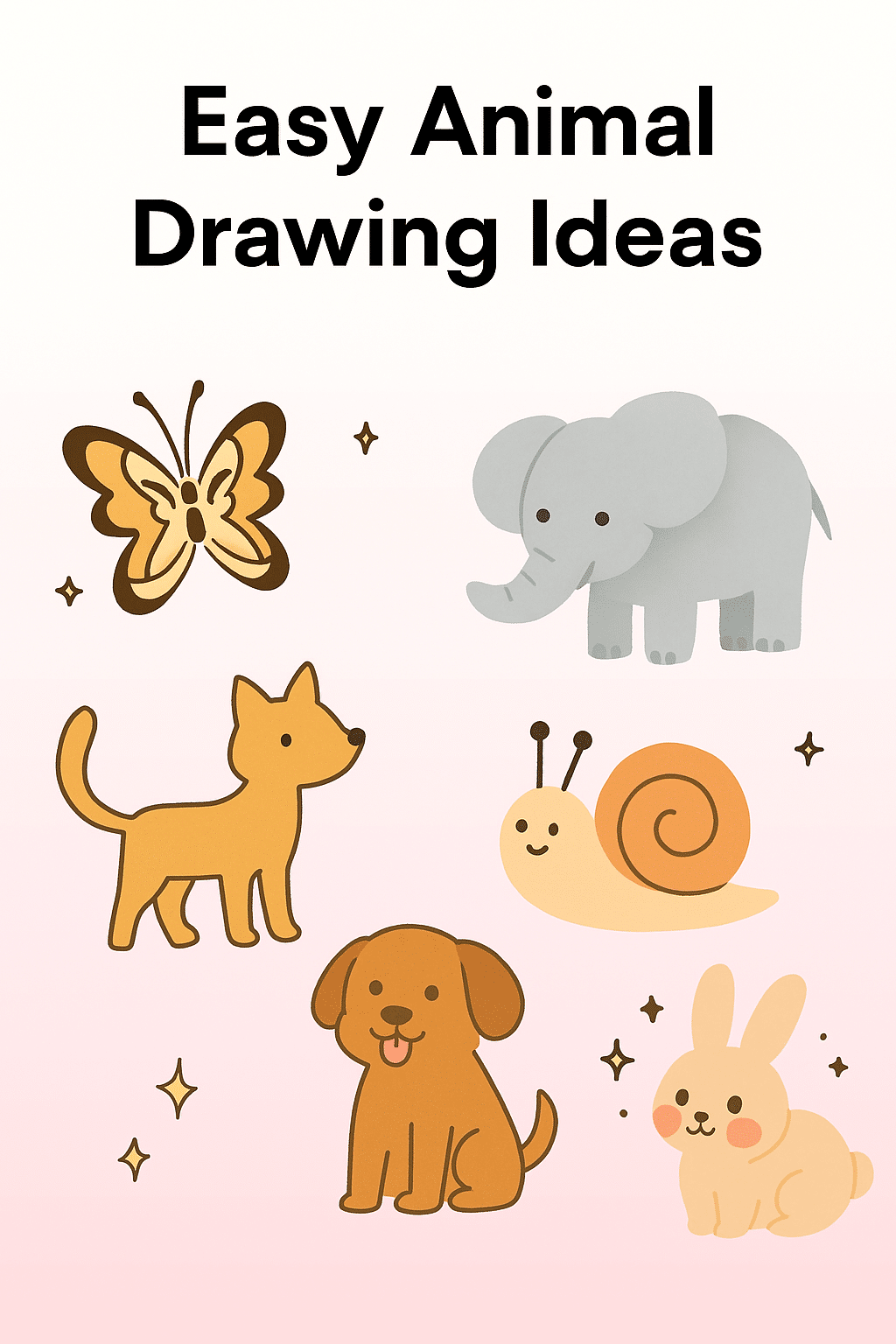Drawing animals doesn’t have to intimidate you. These easy animal drawing ideas transform simple shapes into adorable creatures that’ll make you smile.
Whether you’re sketching during lunch breaks or teaching beginners, these animal drawing tutorials work perfectly for beginners. You’ll discover how basic circles and ovals become magnificent wildlife.
Colorful Butterfly Drawing
Butterflies begin with a vertical oval for the body. Keep this center line straight as your foundation element.
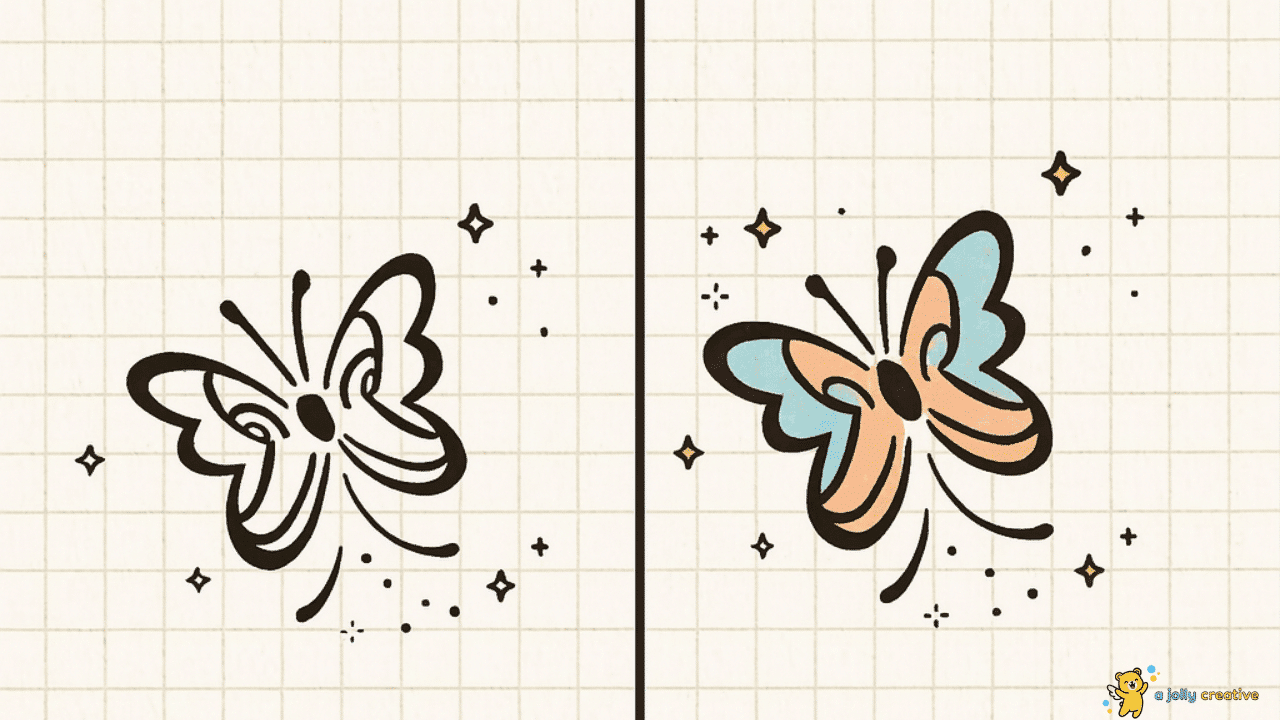
Create four wing sections using curved triangular shapes. The top wings should be larger than the bottom ones for realistic proportions.
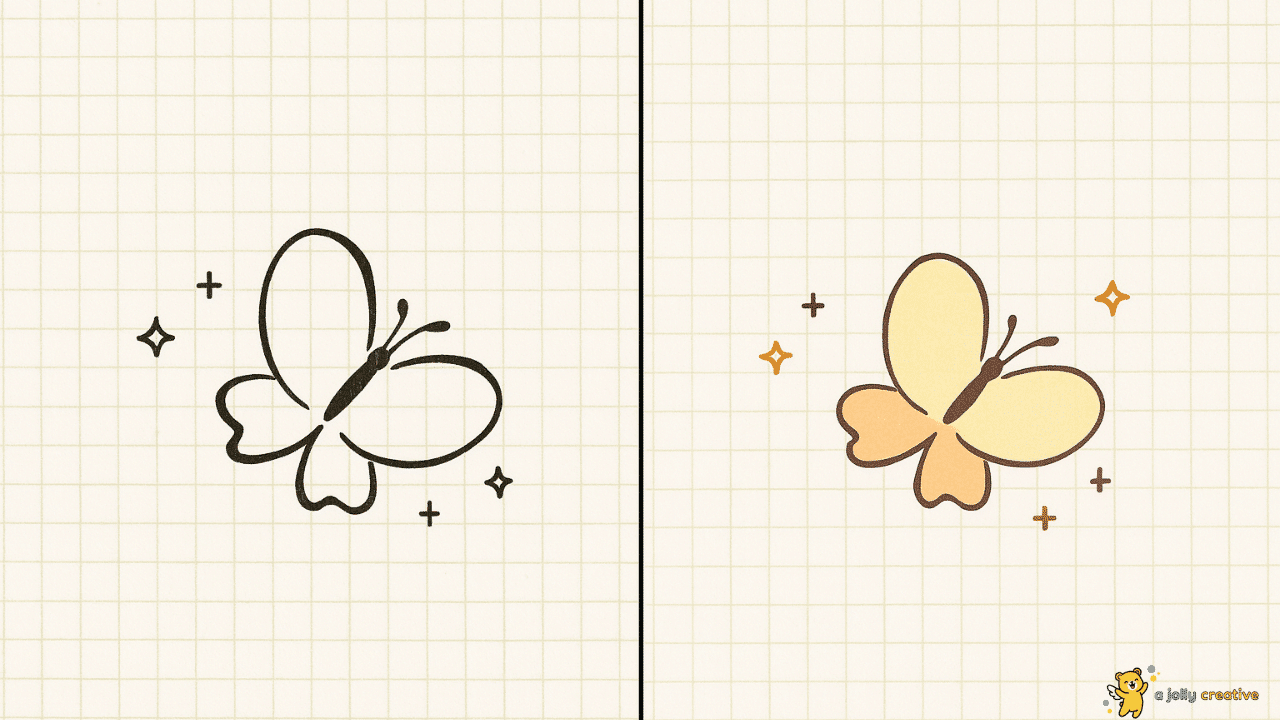
Add symmetrical patterns across both wing sides. Simple dots, circles, or lines work beautifully for butterfly wing designs. Sketch thin antennae with small circles at the tips. These delicate features complete your butterfly’s elegant appearance.
Majestic Elephant Drawing
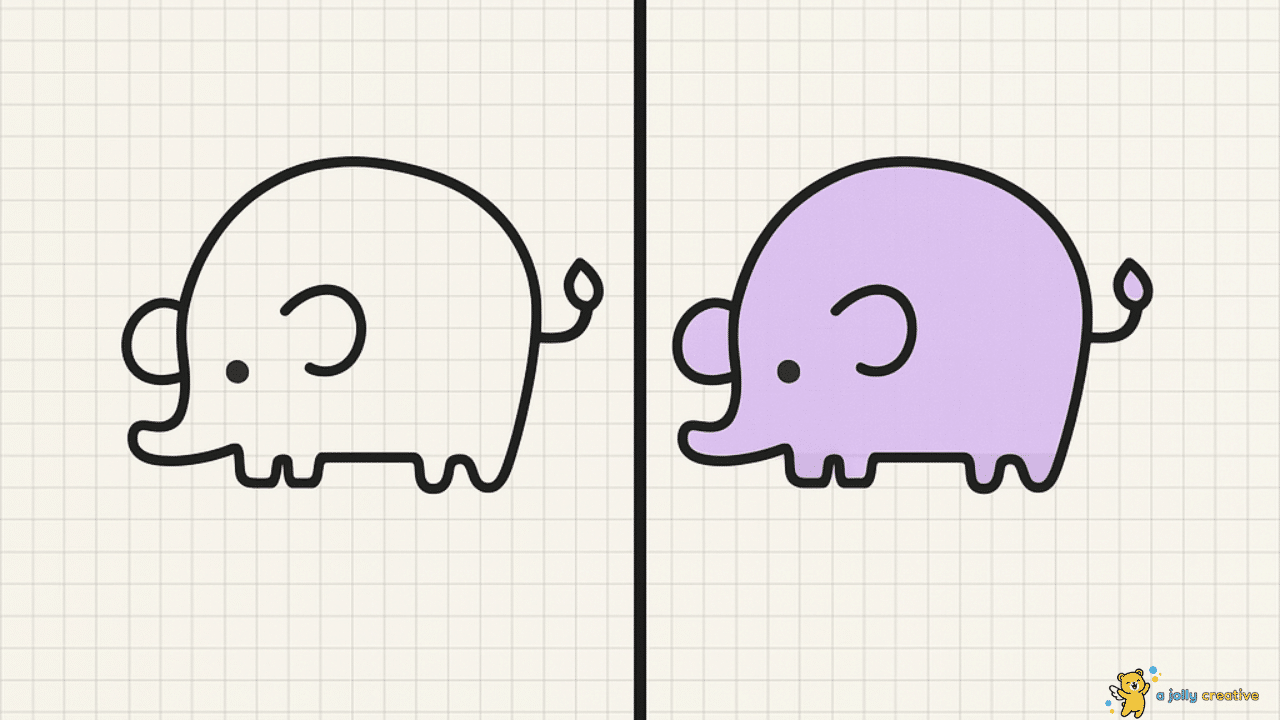
Elephants start with a large oval body and smaller oval head positioned above it. The head connects to the body naturally.
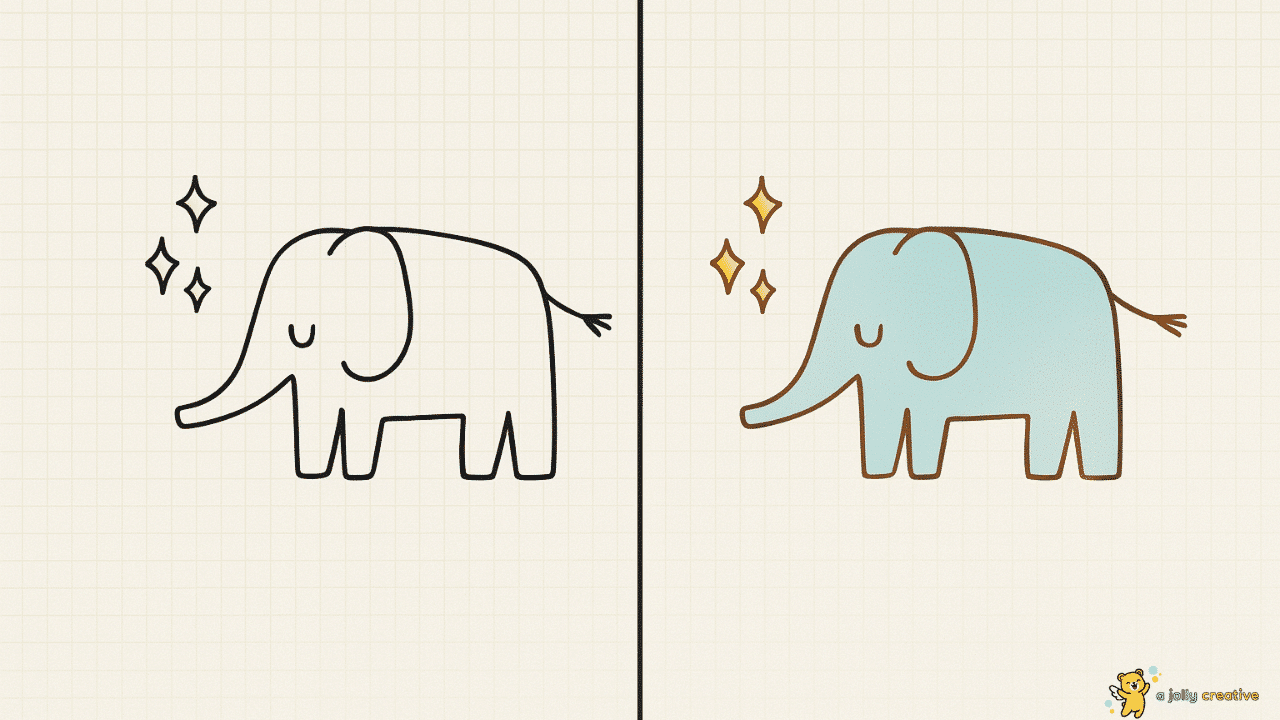
Draw the distinctive trunk as a curved tube extending from the face. Elephant trunks should curve gracefully, never appearing stiff.

Add large fan-shaped ears on both sides of the head. These ears make elephants instantly recognizable in any drawing.
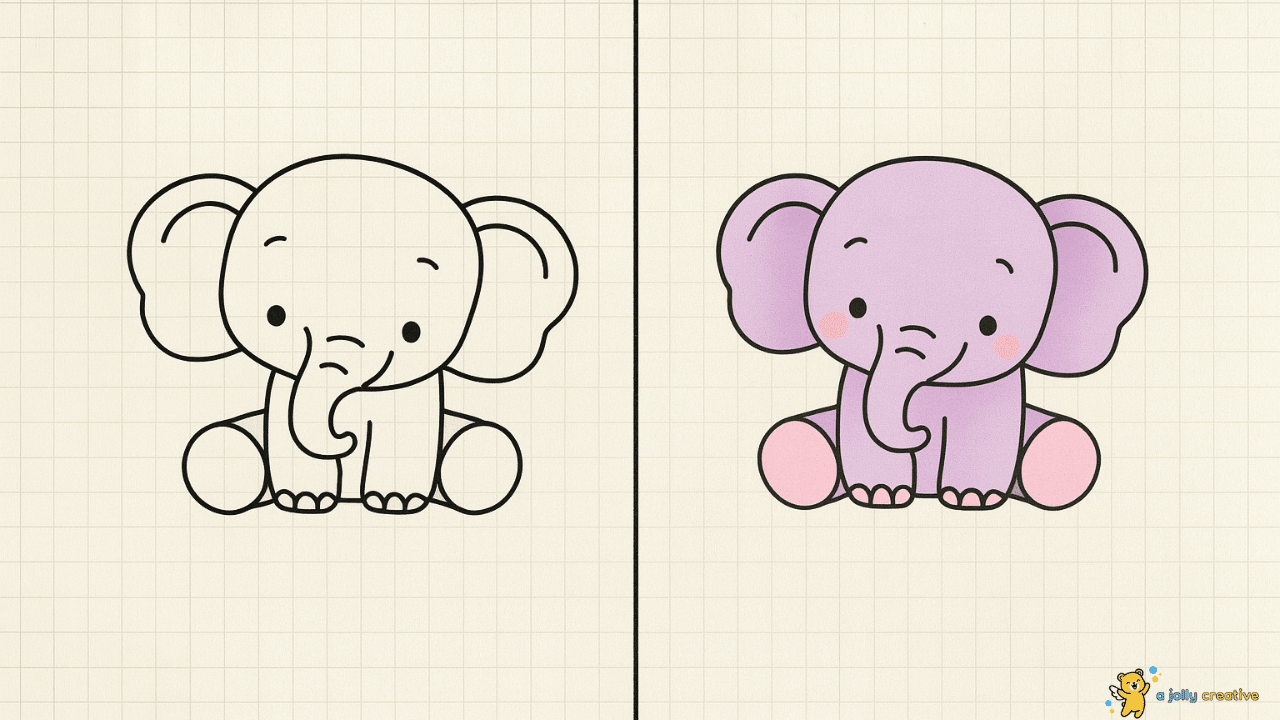
Sketch thick cylindrical legs supporting the massive body.
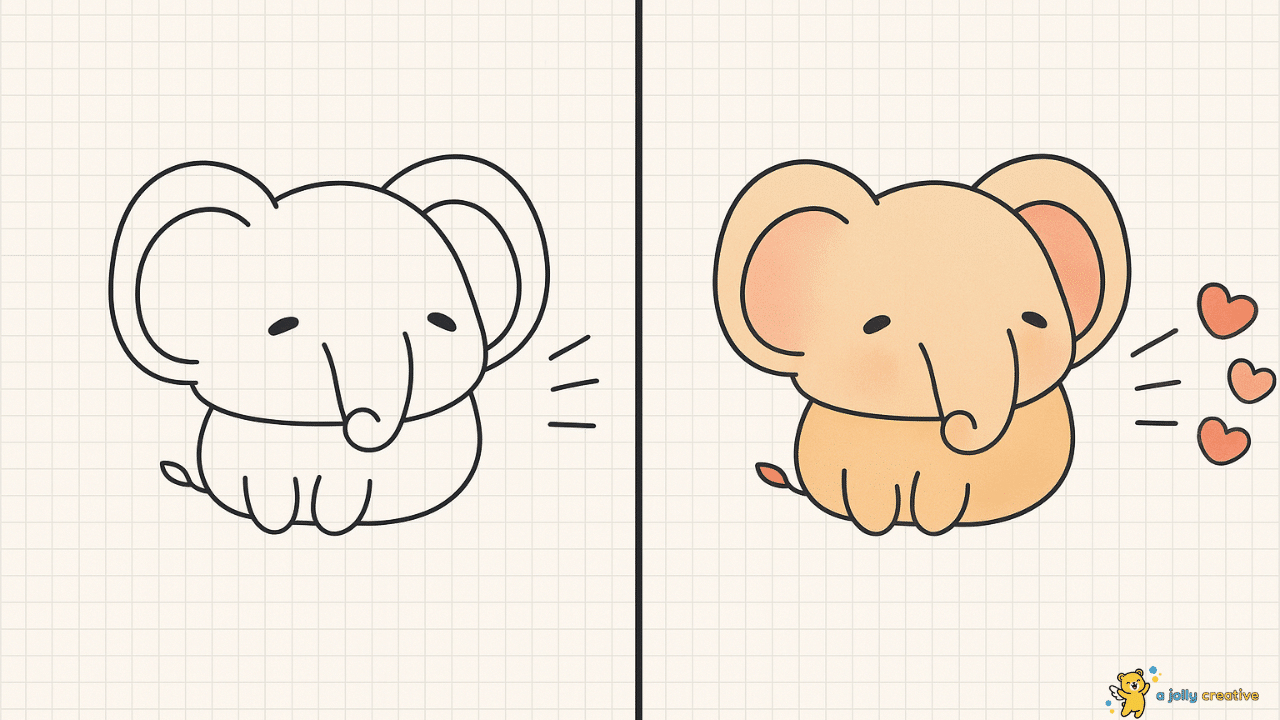
Four sturdy legs convey the elephant’s impressive weight and strength.
You may also like to read: 25 Cute and Easy Sheep Drawing Ideas
Easy Cat Drawing
Cats begin with a circular head and oval body positioned below it. Keep the proportions balanced and natural-looking.
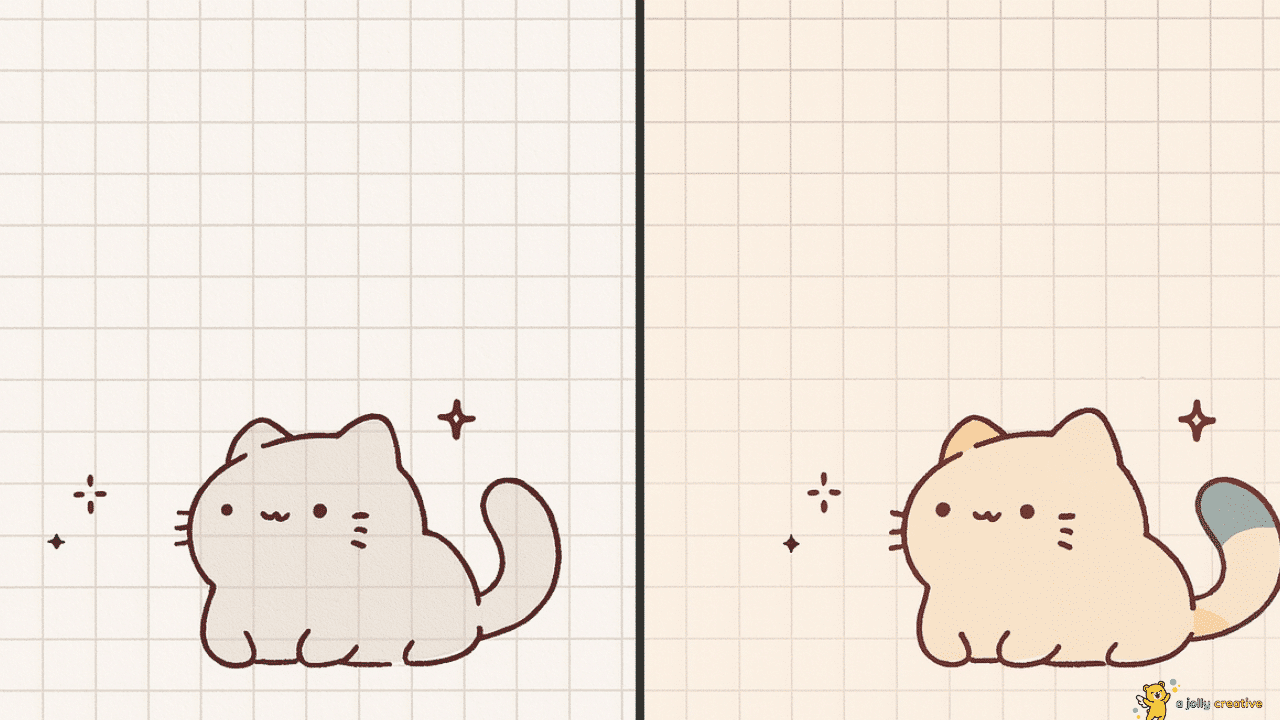
Add pointed triangular ears at the head’s top. Cat ears should angle slightly outward rather than standing perfectly straight.
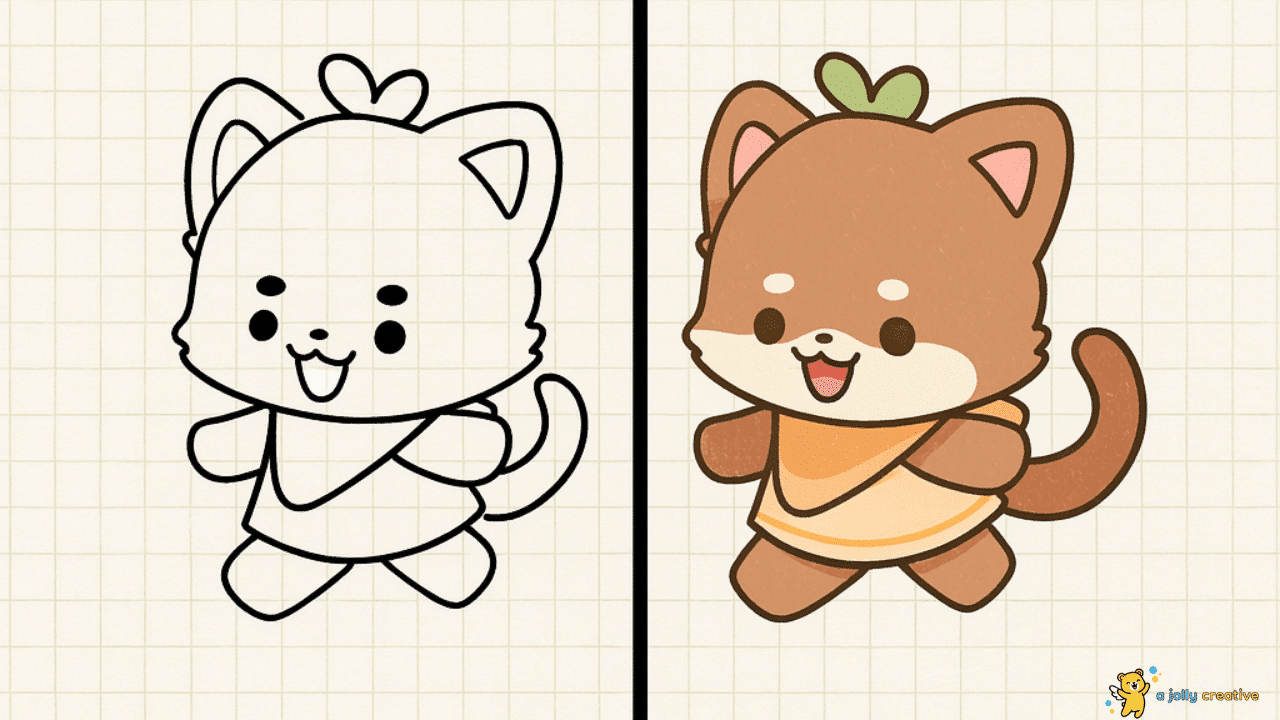
Draw almond-shaped eyes with pupils that reflect their mysterious nature. Cats have expressive eyes that convey personality instantly.
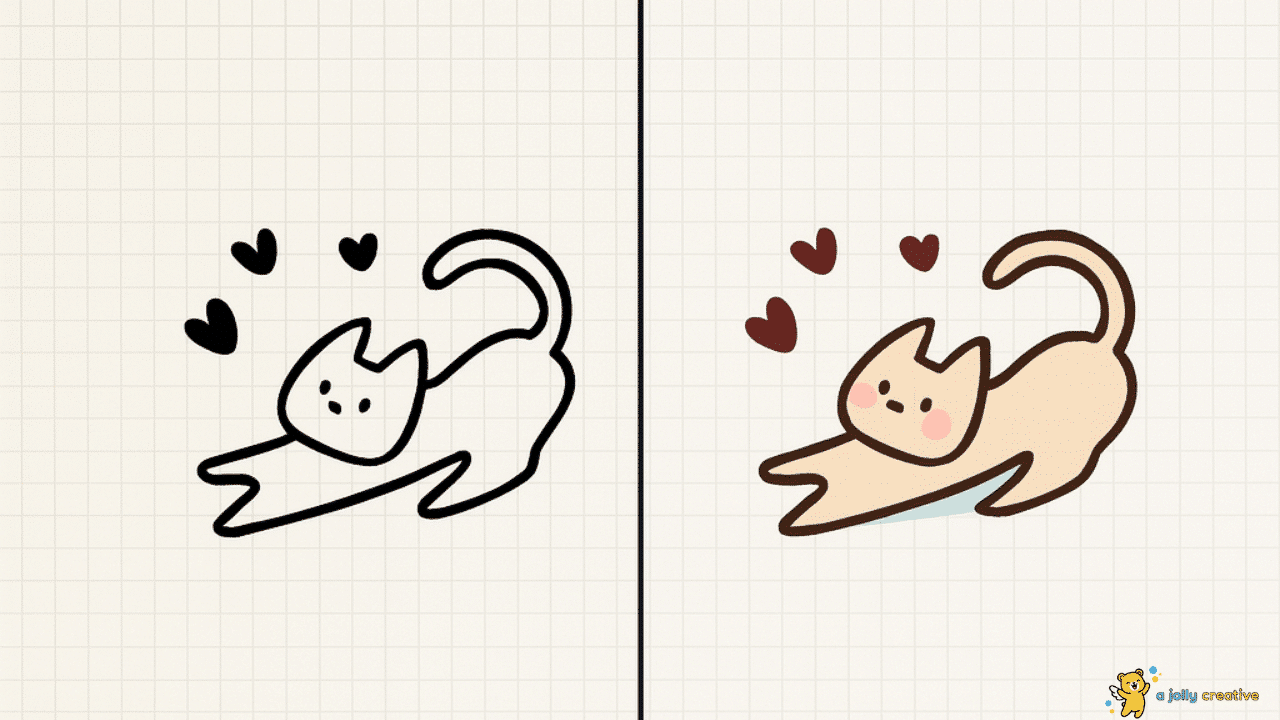
Sketch a curved tail that’s roughly the same length as the body. The tail position indicates the cat’s current mood.
Friendly Dog Drawing
Dogs start with similar shapes to cats but with softer, rounder features throughout. The head remains circular with an oval body.
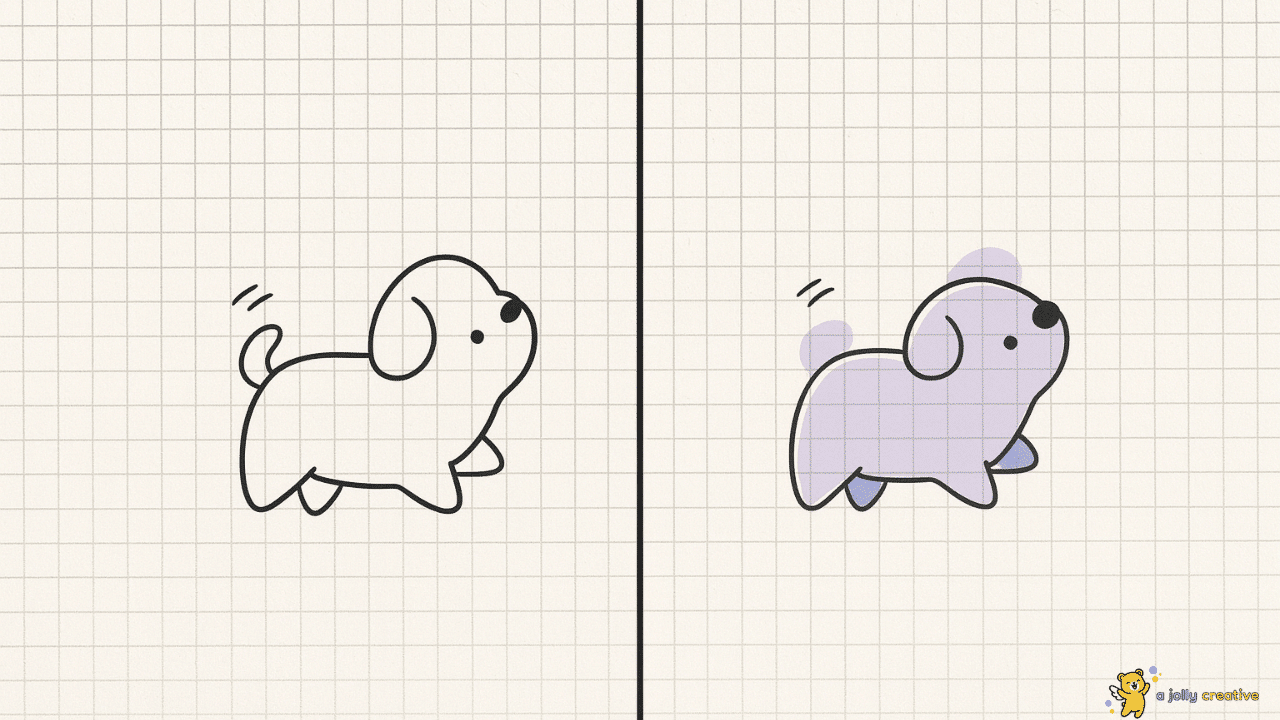
Create floppy or pointed ears depending on the breed you’re drawing. Dog ears vary dramatically between different types.
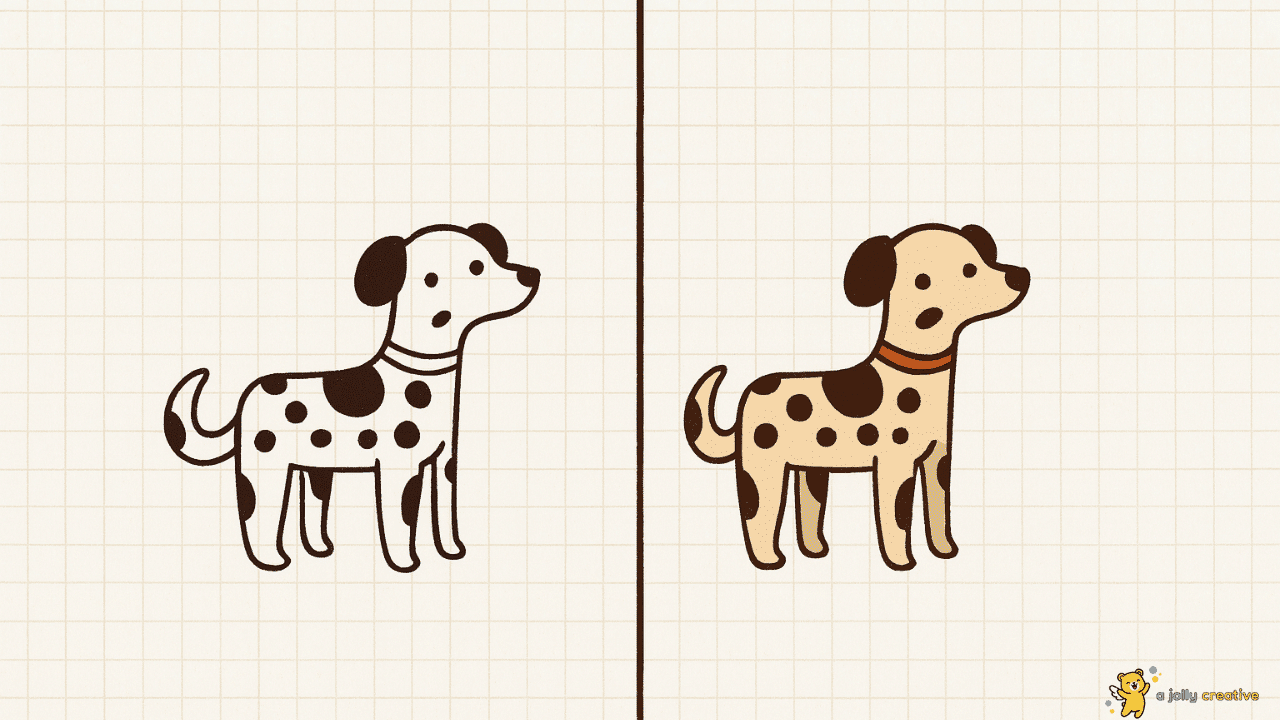
Add a wet nose and panting tongue for that friendly dog expression. Dogs naturally appear happier than most other animals.
Simple Bird Drawing
Birds begin with a teardrop shape for the body pointing toward the tail direction. This immediately suggests flight capabilities.
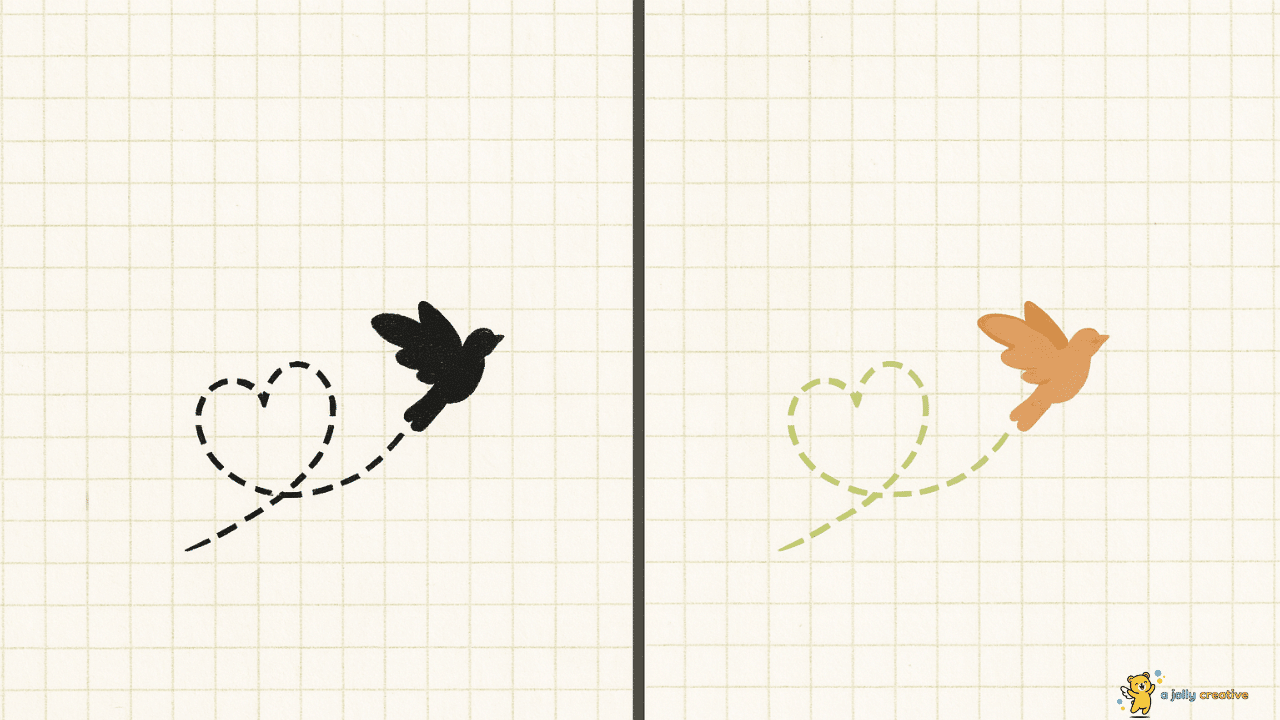
Add a smaller circle for the head positioned above the body. The head should be proportionally smaller than other animals.
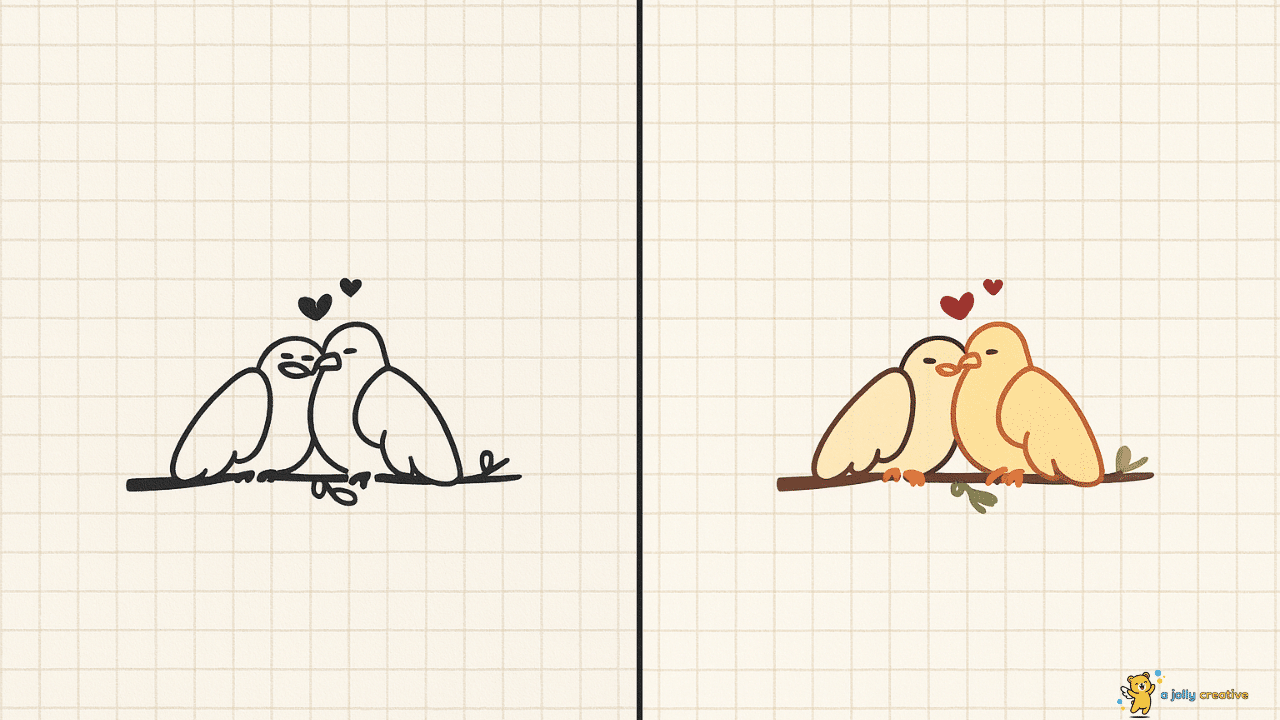
Sketch a triangular beak appropriate for the bird type you’re creating. Bird beaks vary significantly based on their diet. Draw wings as curved triangular shapes against the body sides.
Cute Bunny Drawing
Bunnies start with an oval body and circular head positioned above it. Keep the overall shape compact and cute.
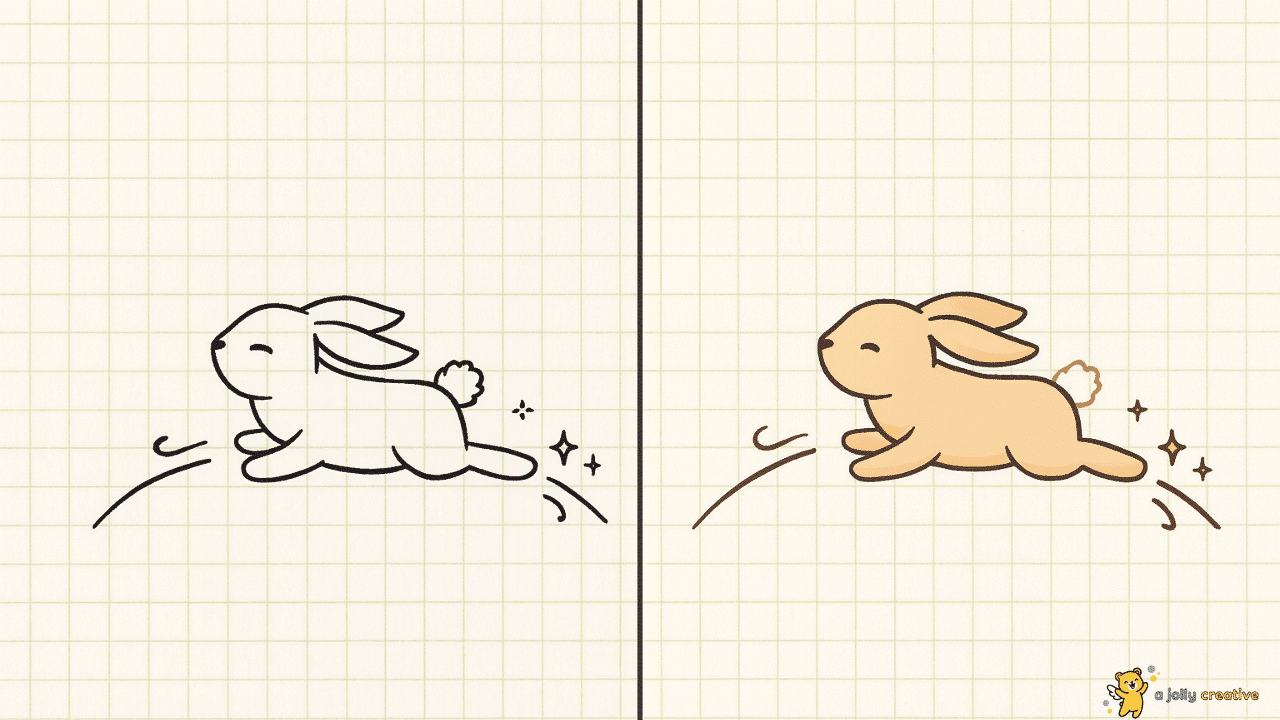
Add long oval ears that extend upward from the head. Bunny ears should be roughly the same length as the head itself.
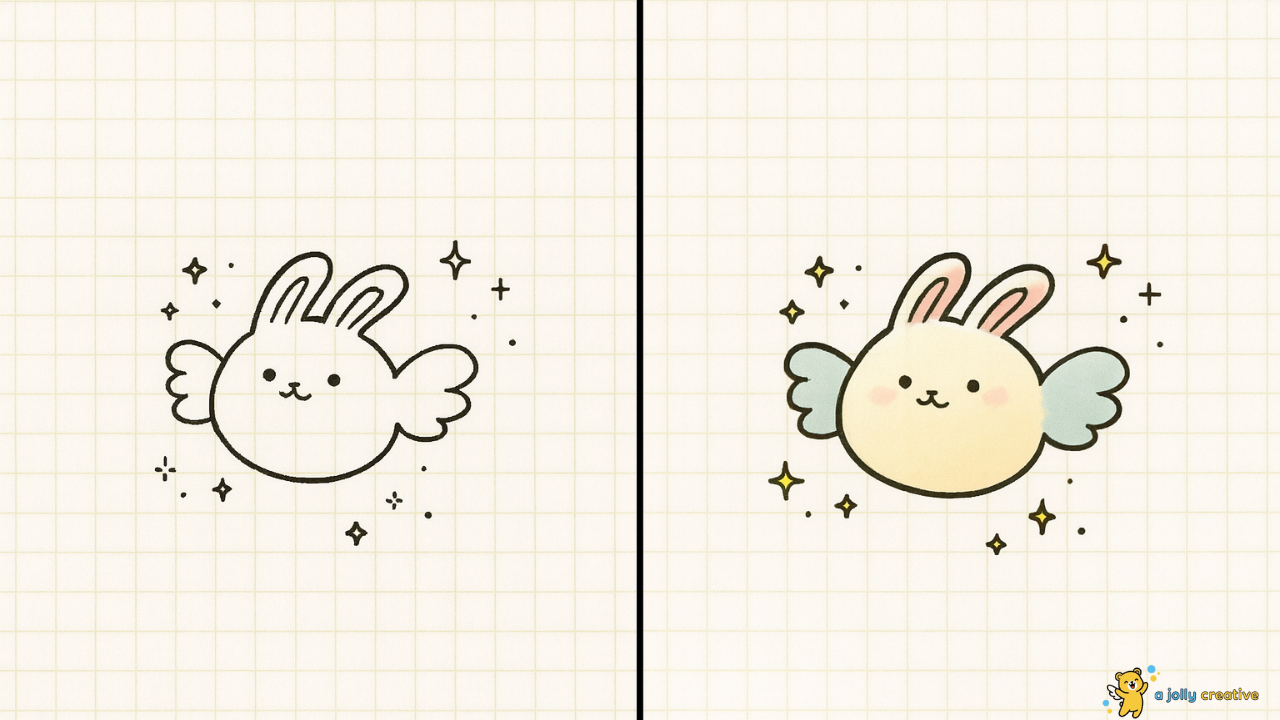
Draw large circular eyes that convey innocence and alertness. Rabbits have notably large eyes compared to their face size.
Clever Fox Drawing
Foxes begin with a triangular head shape that suggests their clever, pointed features. The triangle should have rounded corners.
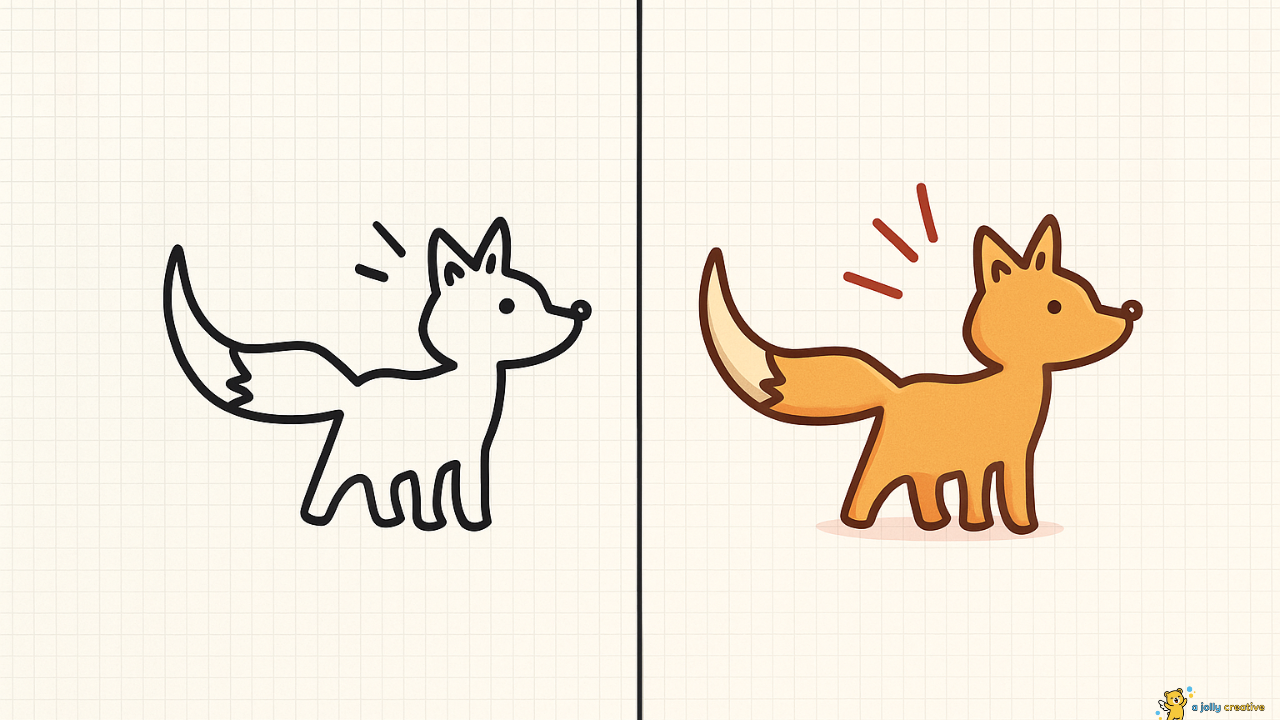
Add pointed ears that stand alert at the head’s top corners. Fox ears are proportionally larger than dog ears.
If you’re interested, check out: Easy Whale Drawings for Beginners
Ocean Fish Drawing
Fish start with an oval body shape that’s wider in the middle than at the ends. This streamlined form suggests underwater movement.
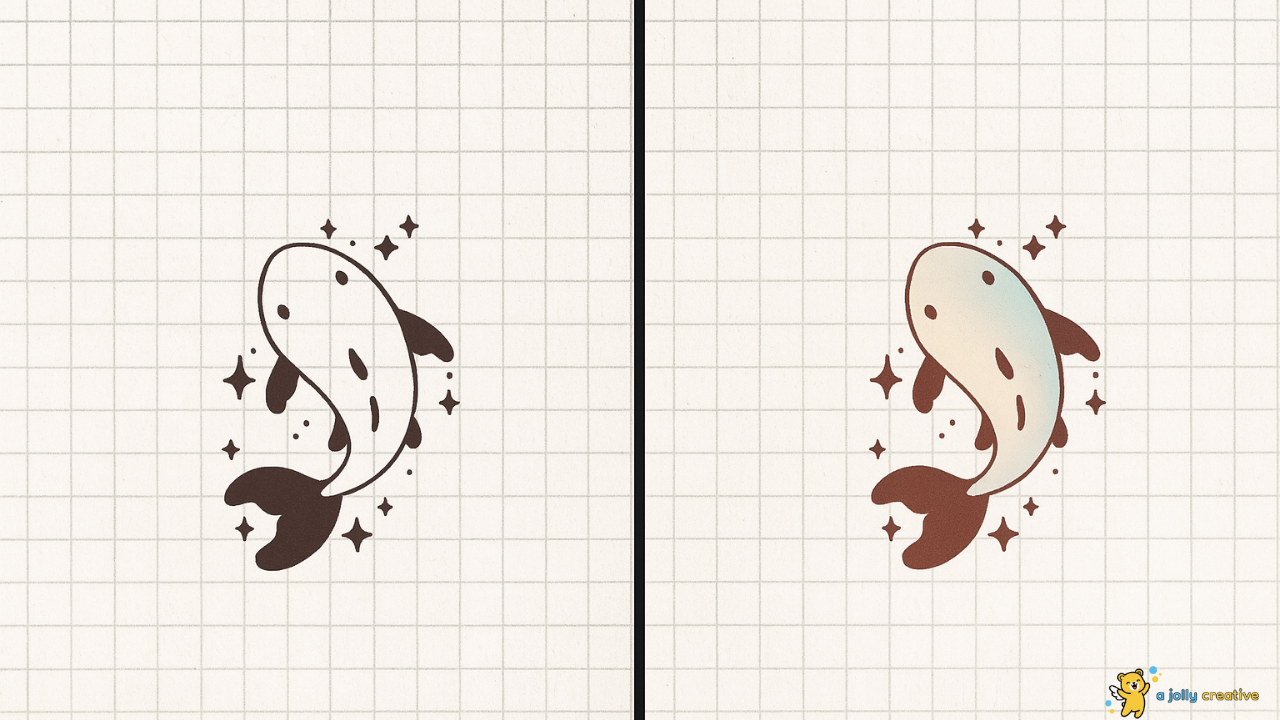
Add triangular fins along the top, bottom, and sides. Fish fins help with swimming motion and directional changes underwater.
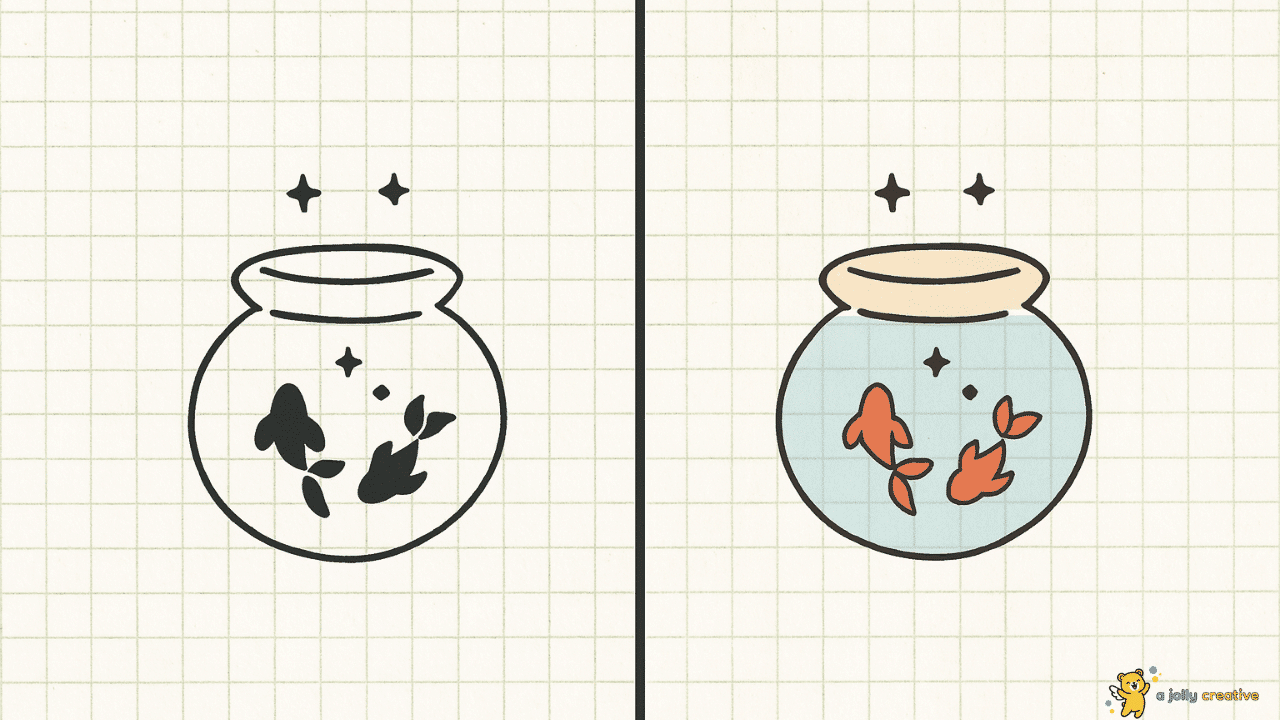
Draw scales using small overlapping semicircles across the body surface. You can simplify this with parallel curved lines instead.
Swimming Duck Drawing
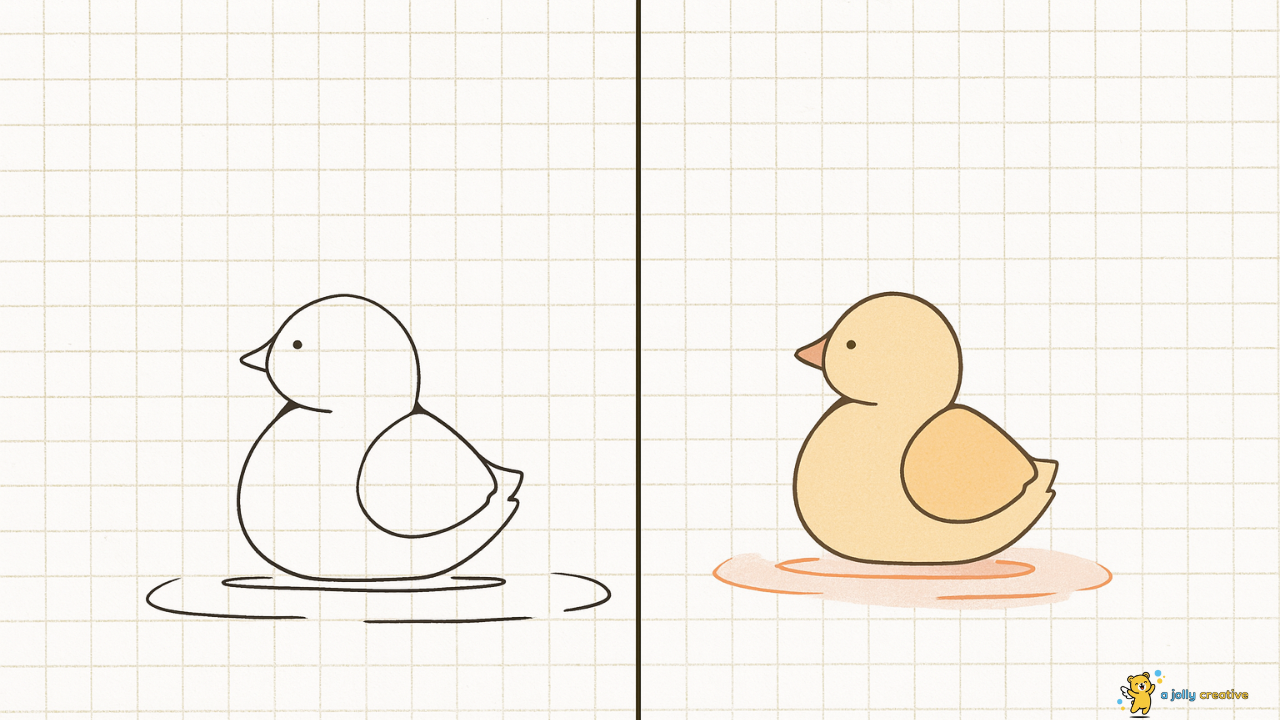
Ducks begin with an oval body that’s positioned horizontally for swimming stability. The body should appear buoyant and rounded.
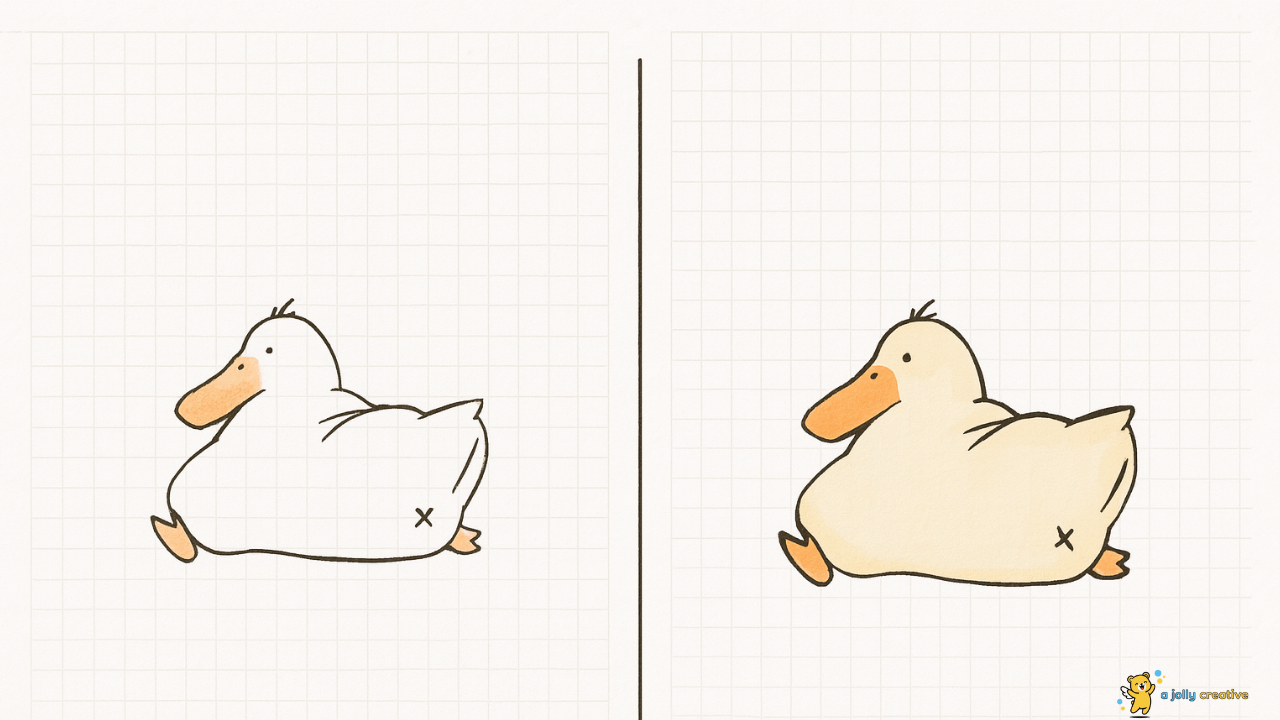
Add a circular head connected to the body by a short neck. Duck heads are proportionally smaller than their bodies.
Jumping Frog Drawing
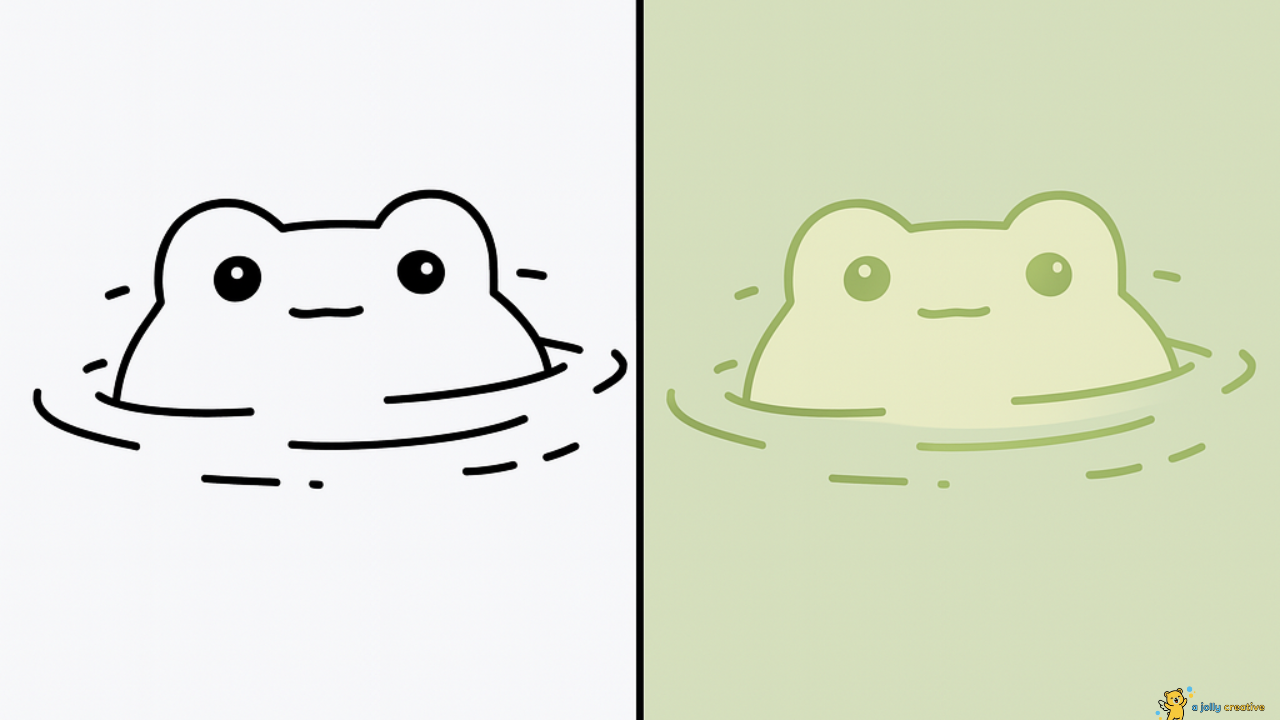
Frogs start with a wide oval body that appears ready to hop. The body should look slightly flattened rather than perfectly round.
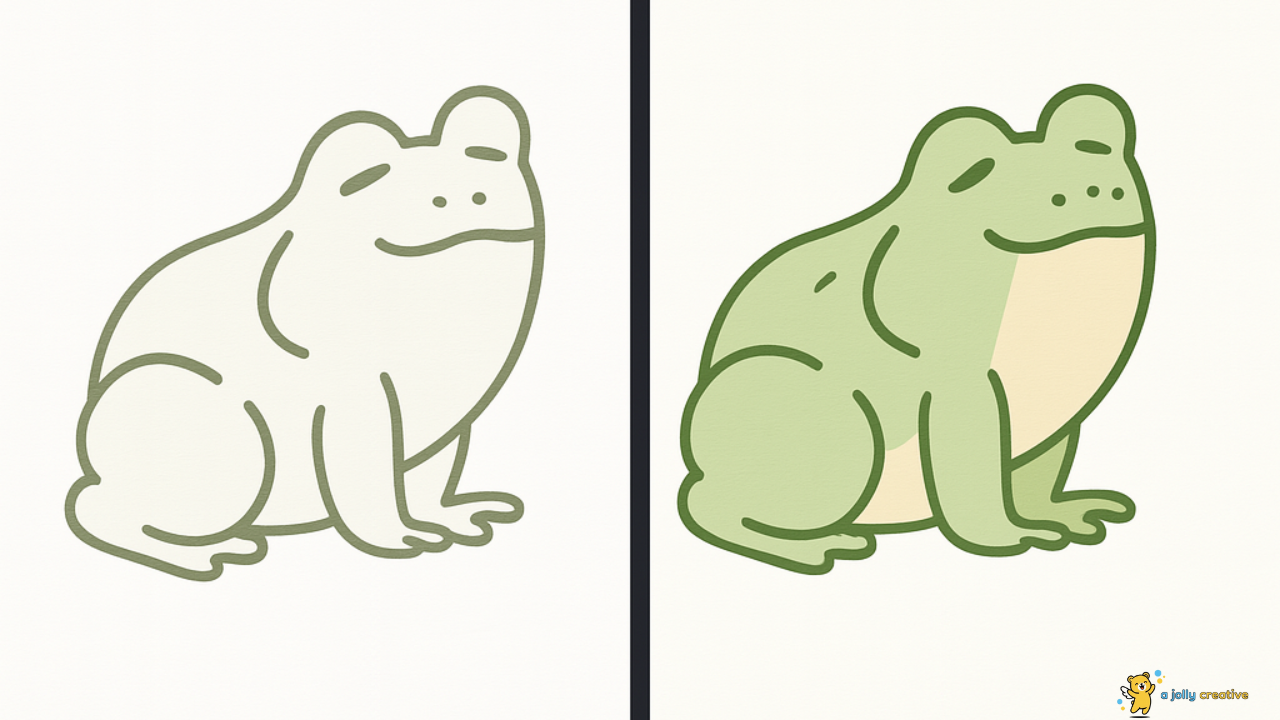
Add large, bulging eyes positioned on top of the head. Frog eyes are their most distinctive and expressive feature.
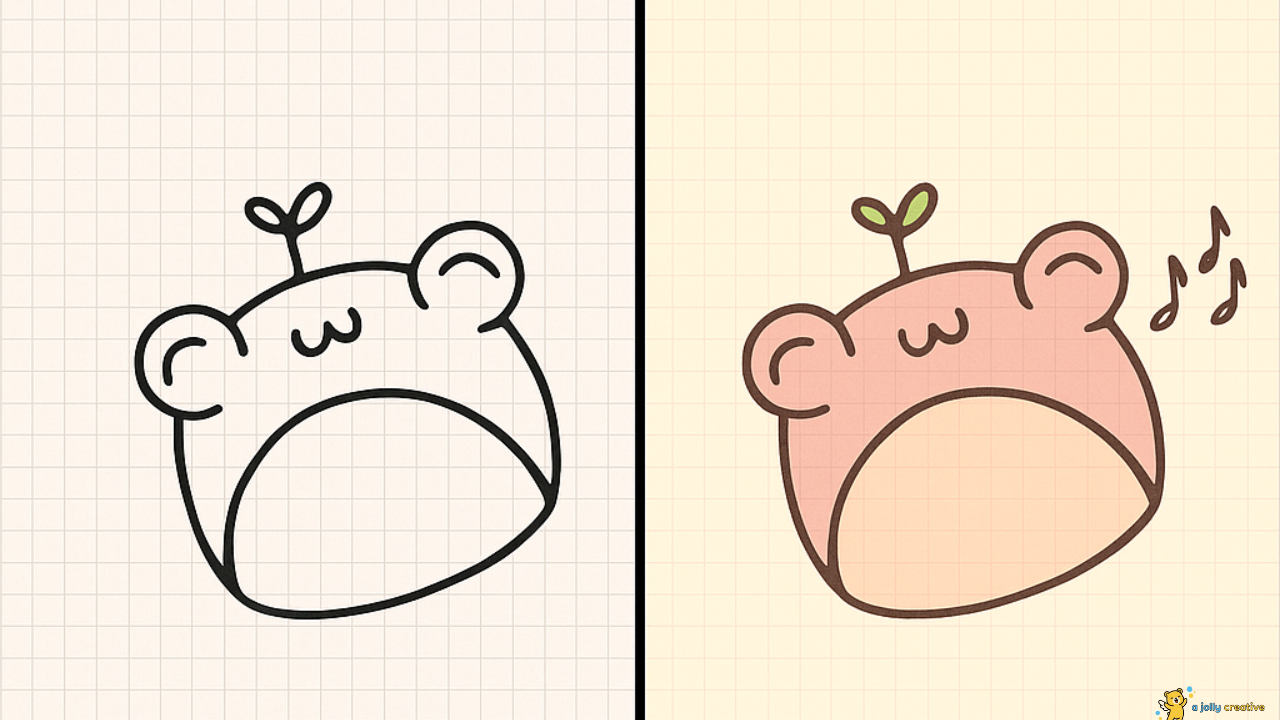
Draw powerful hind legs folded beneath the body in jumping position. These muscular legs suggest the frog’s hopping ability.
Wise Owl Drawing
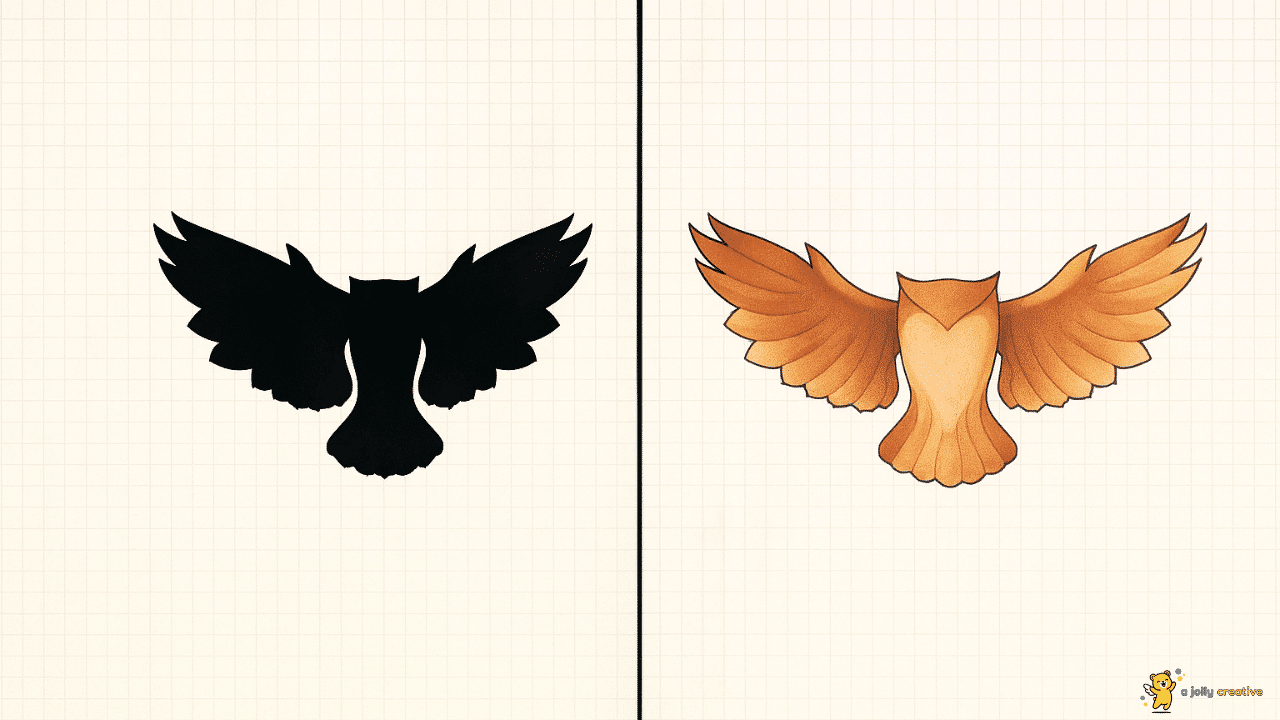
Owls begin with a large circular body that appears fluffy and round. This shape immediately suggests their nocturnal, mysterious nature.
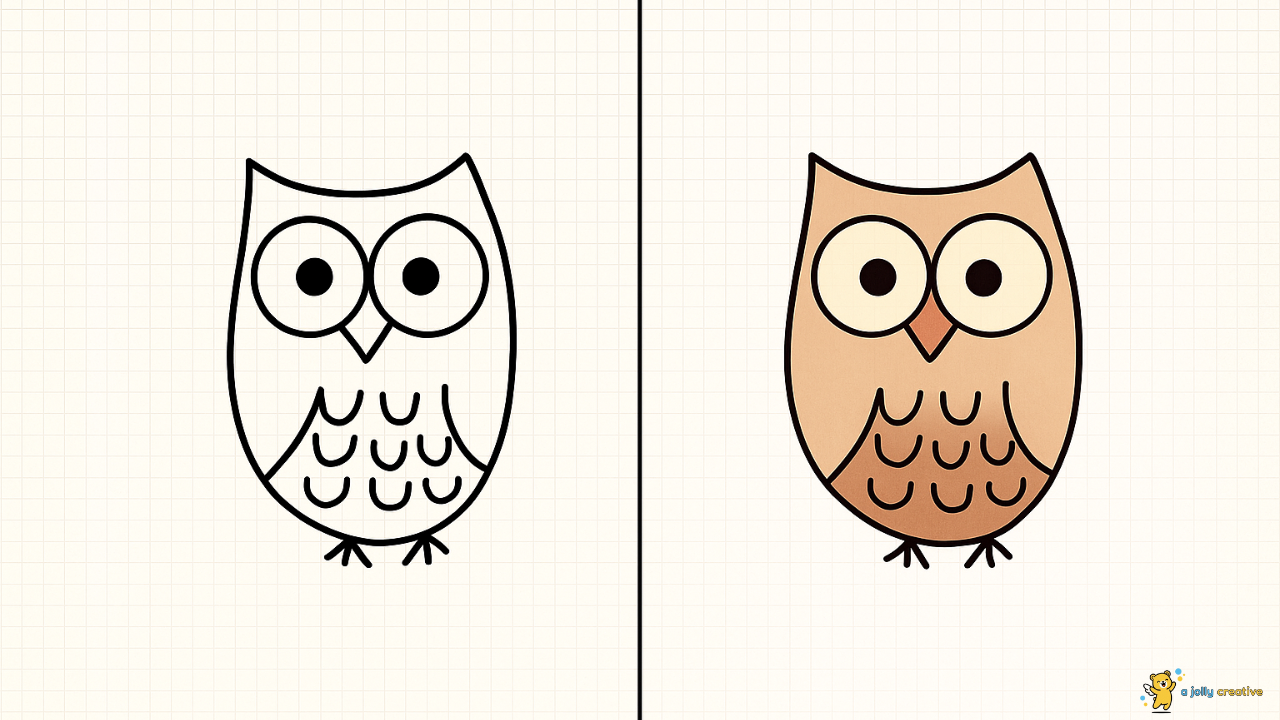
Add enormous circular eyes that dominate the facial area. Owl eyes are proportionally massive compared to other birds.
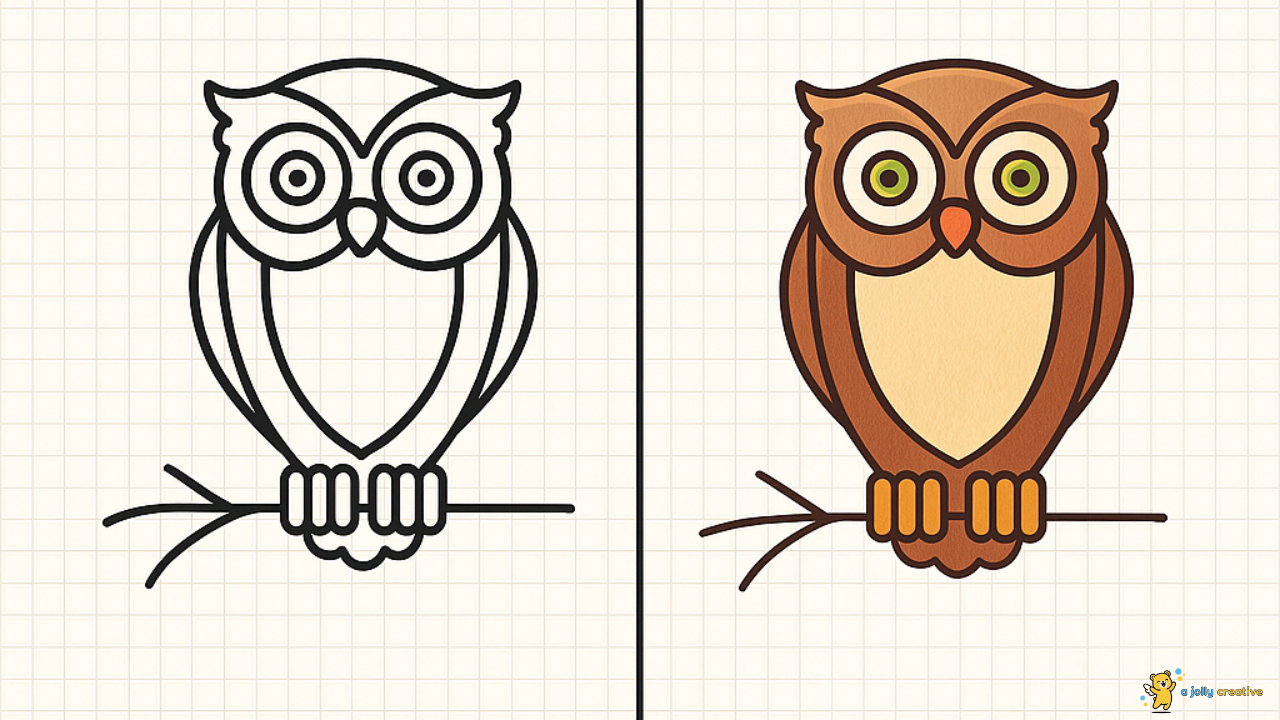
Draw a small, hooked beak positioned between the large eyes. The beak should appear sharp but not overwhelming the face.
You might find this interesting: 35+ Easy Duck Drawing Ideas
Teddy Bear Drawing
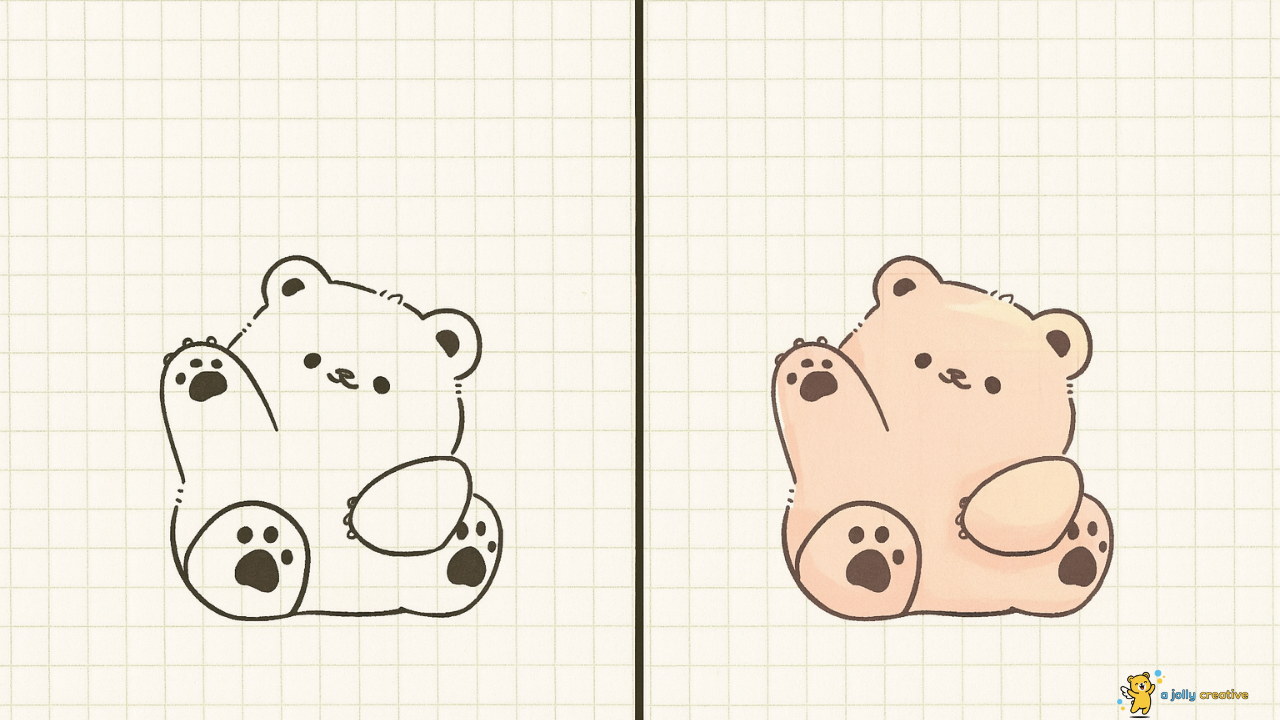
Bears start with two overlapping circles for the head and body. The smaller circle sits slightly above the larger one. Add tiny semicircles for ears positioned at the head’s top corners. Bears have rounded, friendly ears that never look threatening.
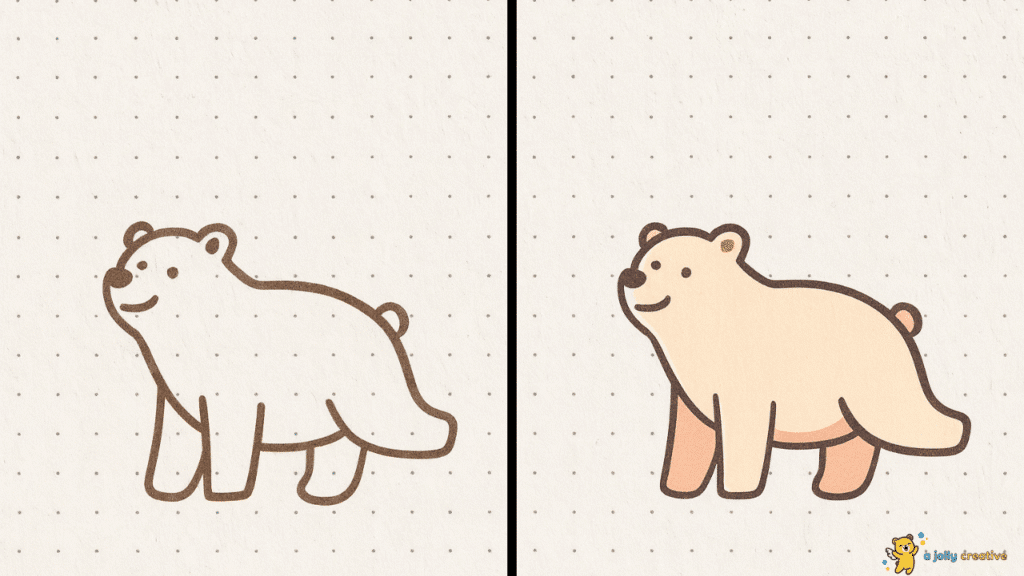
Sketch oval paws beneath the body circle. Bear paws appear oversized compared to other animals, giving them that cuddly appearance.
Waddling Penguin Drawing
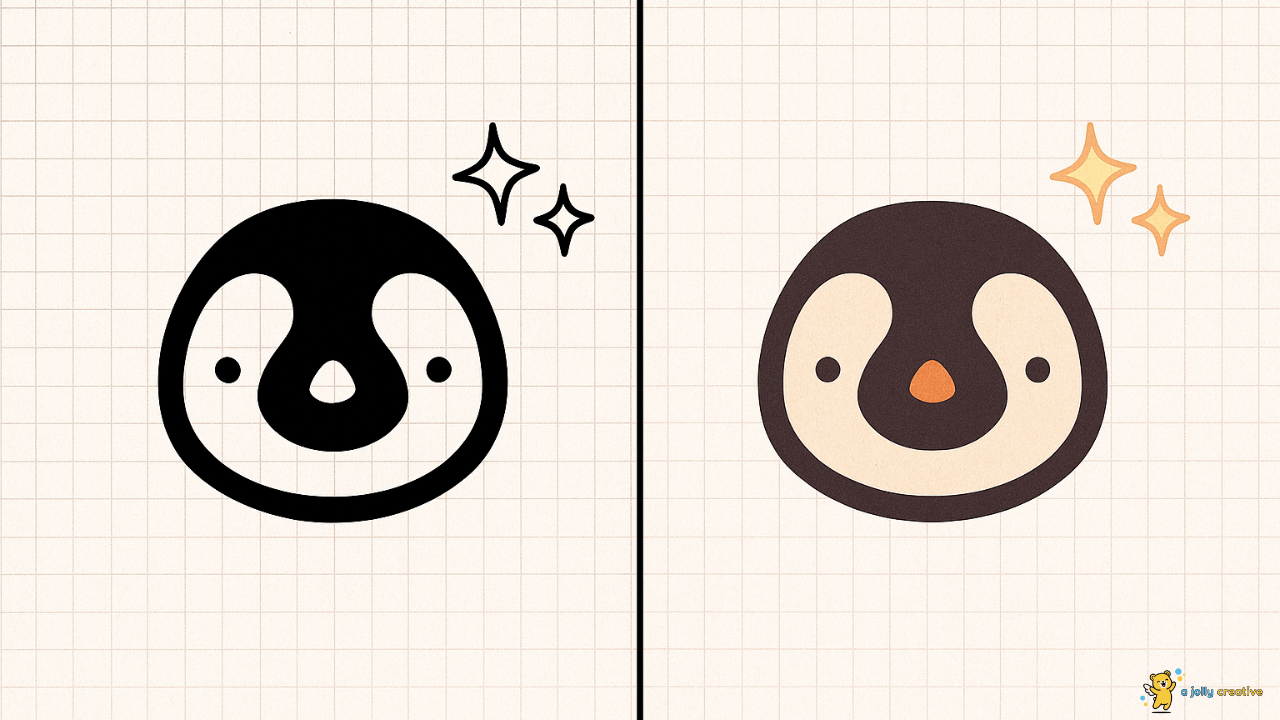
Penguins start with an oval body that’s wider at the bottom than the top. This shape suggests their waddling movement style.
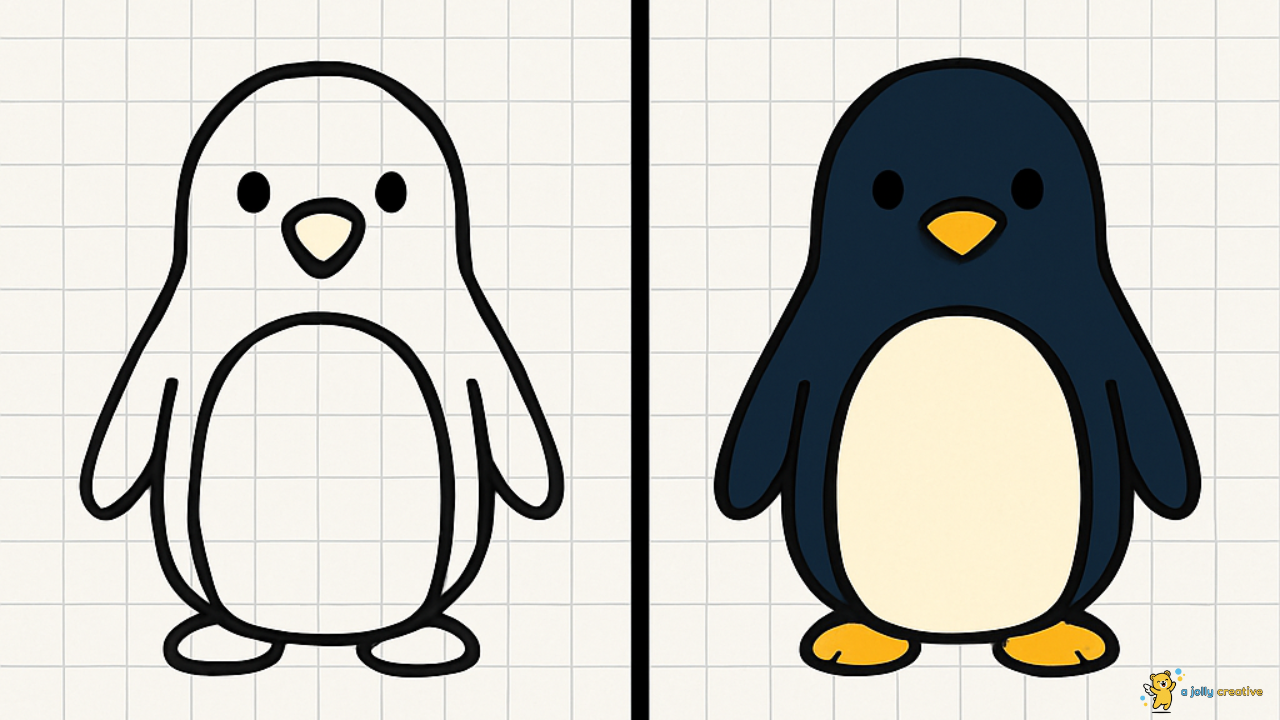
Add a smaller oval head positioned above the body without a visible neck. Penguin heads connect directly to their bodies.
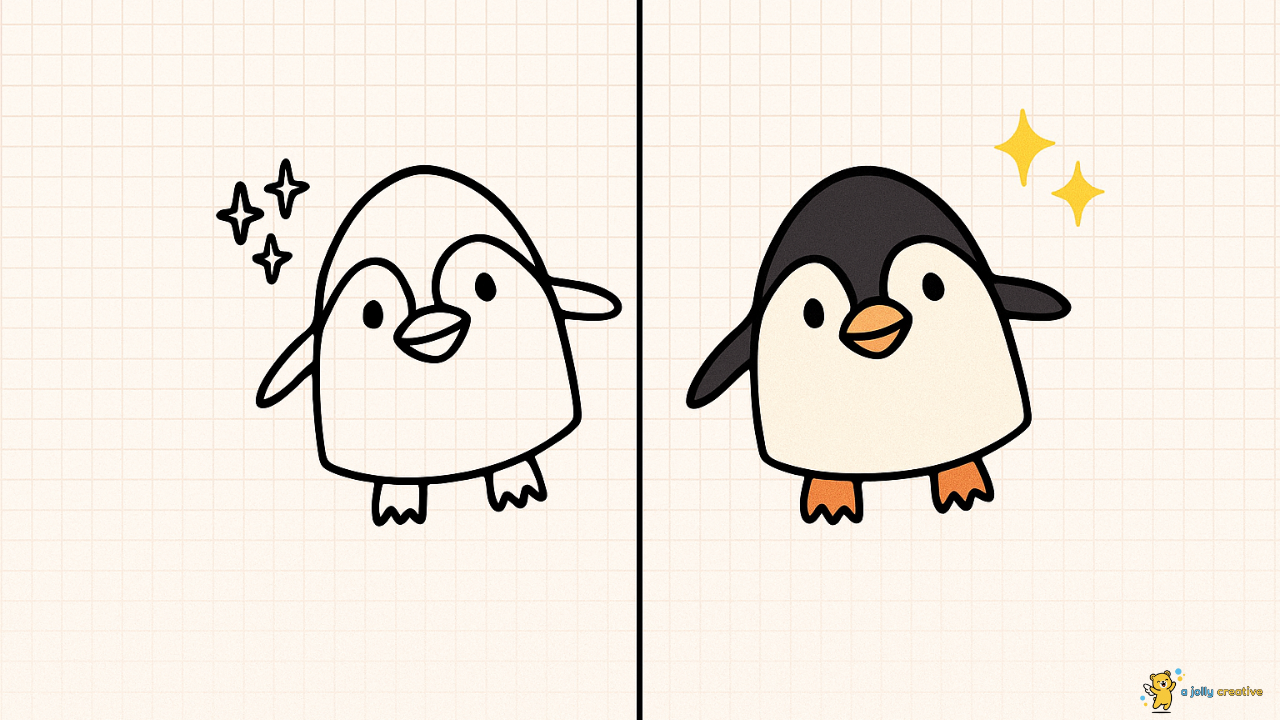
Draw flippers on both sides instead of wings for swimming. These flippers should appear flat and paddle-like for water propulsion.
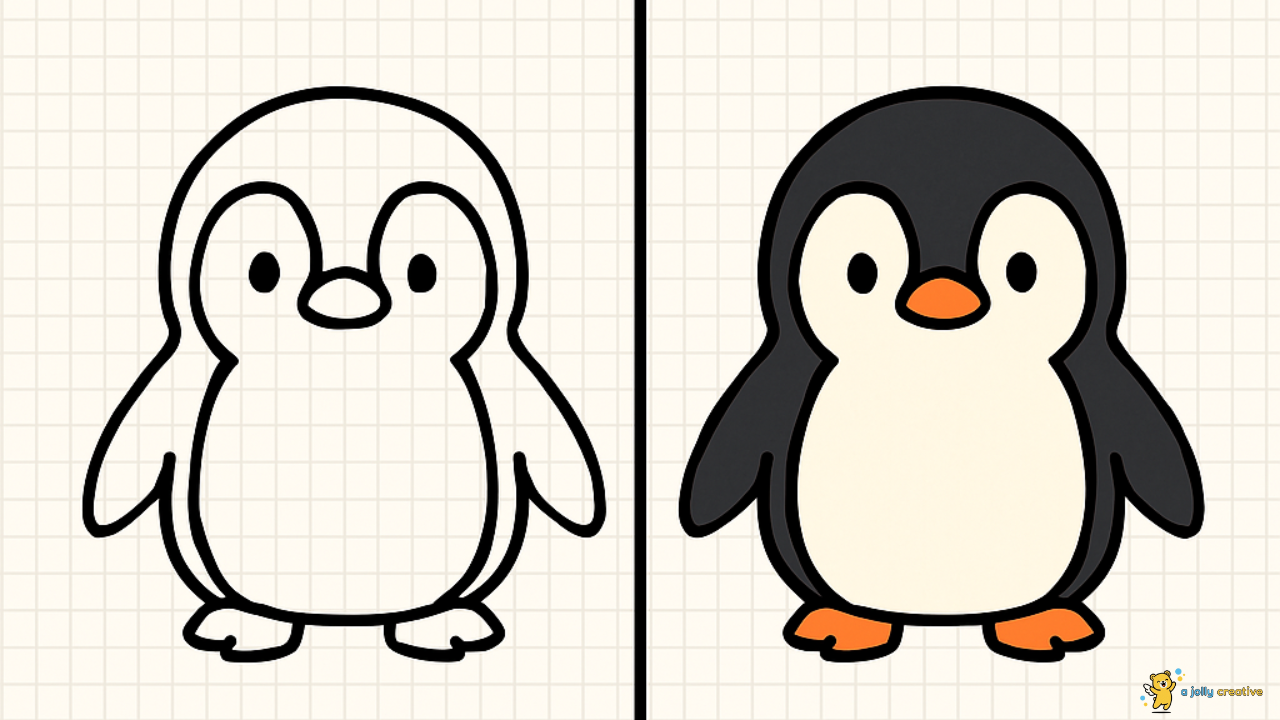
Sketch orange webbed feet beneath the body for walking on ice. The bright feet provide color contrast against the black-white body.
Slow Turtle Drawing
Turtles begin with a large dome shape for the shell covering most of the body. This protective shell defines their appearance.
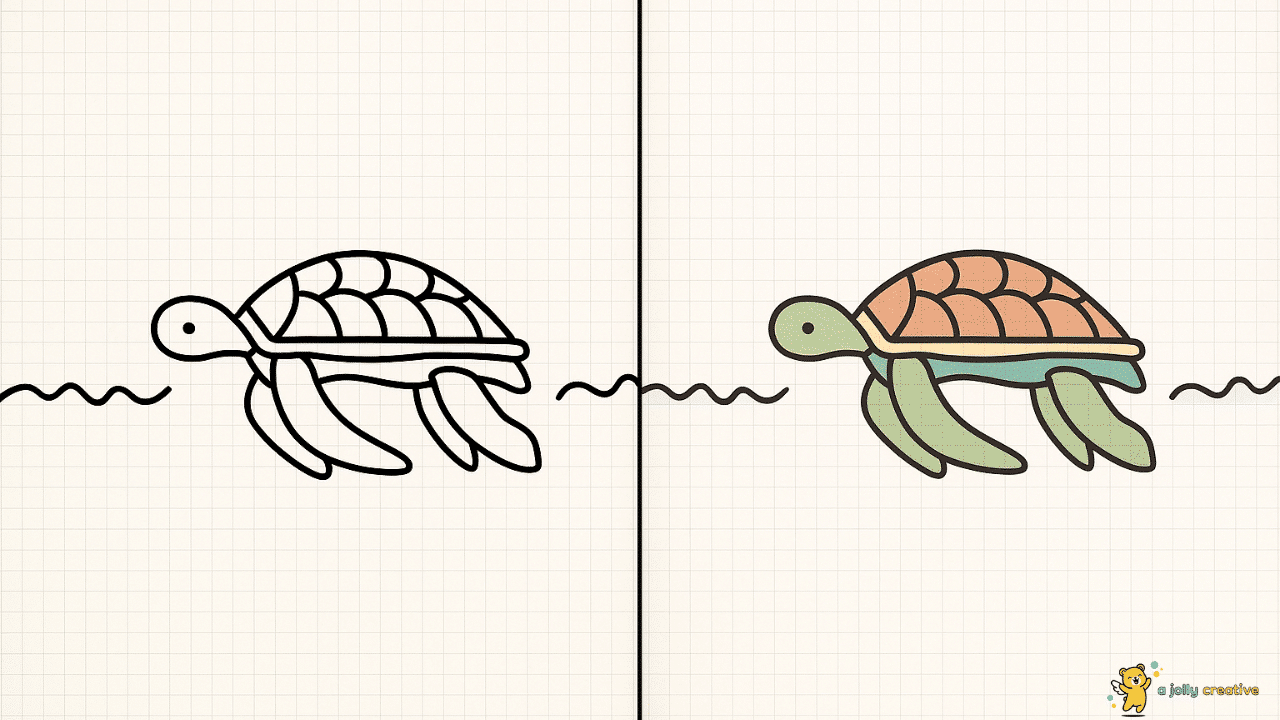
Add a small head extending from one end of the shell. Turtle heads can retract completely inside for protection when threatened.
Continue on your article: 25+ Cute and Easy Dinosaur Drawing Ideas
Giant Whale Drawing
Whales start with a massive oval body that tapers toward the tail end. The sheer size should dominate your drawing space.
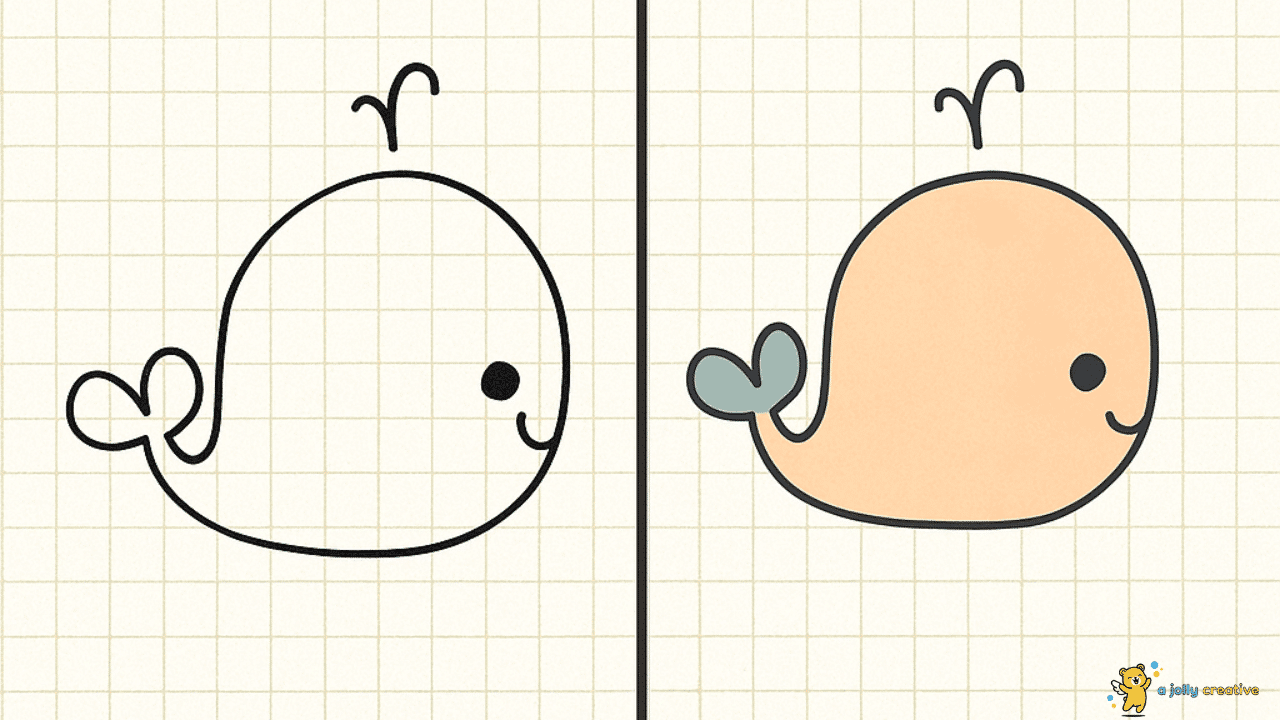
Add a large tail fluke at the body’s narrow end for swimming propulsion. Whale tails are proportionally enormous and powerful-looking.
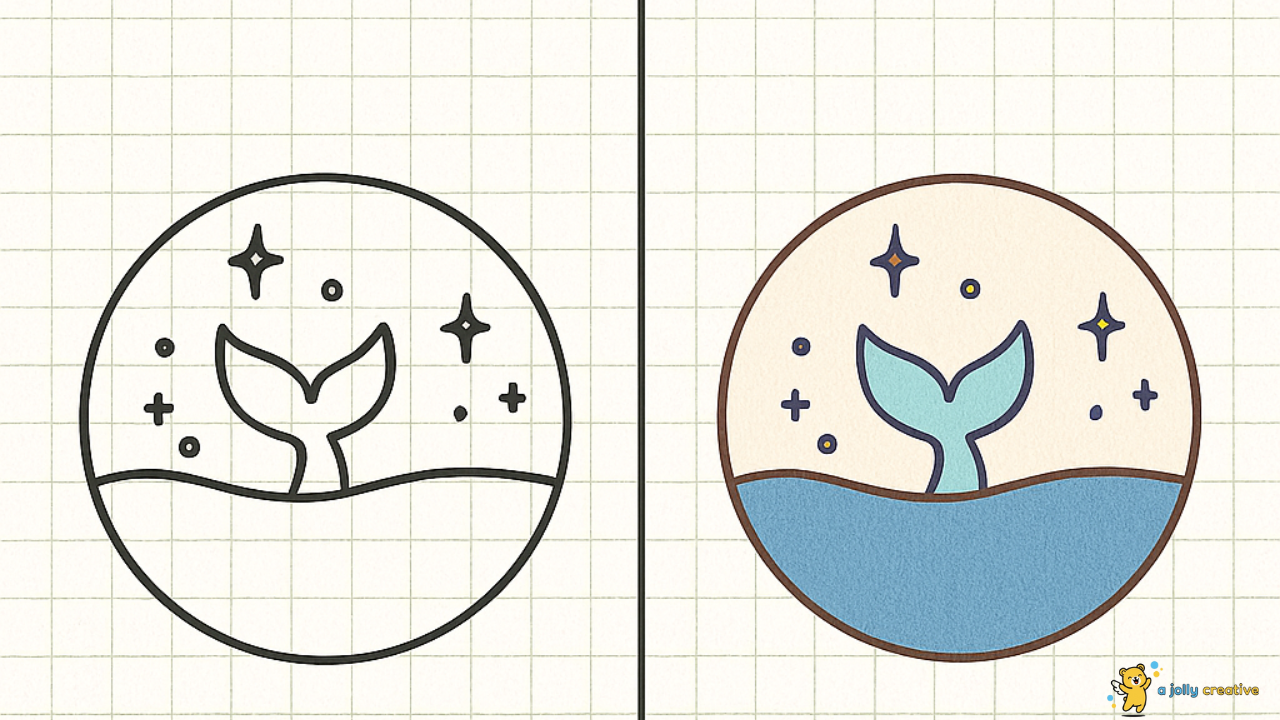
Draw a blowhole on top of the head for breathing air. This small detail distinguishes whales from other large sea creatures.
Fierce Shark Drawing
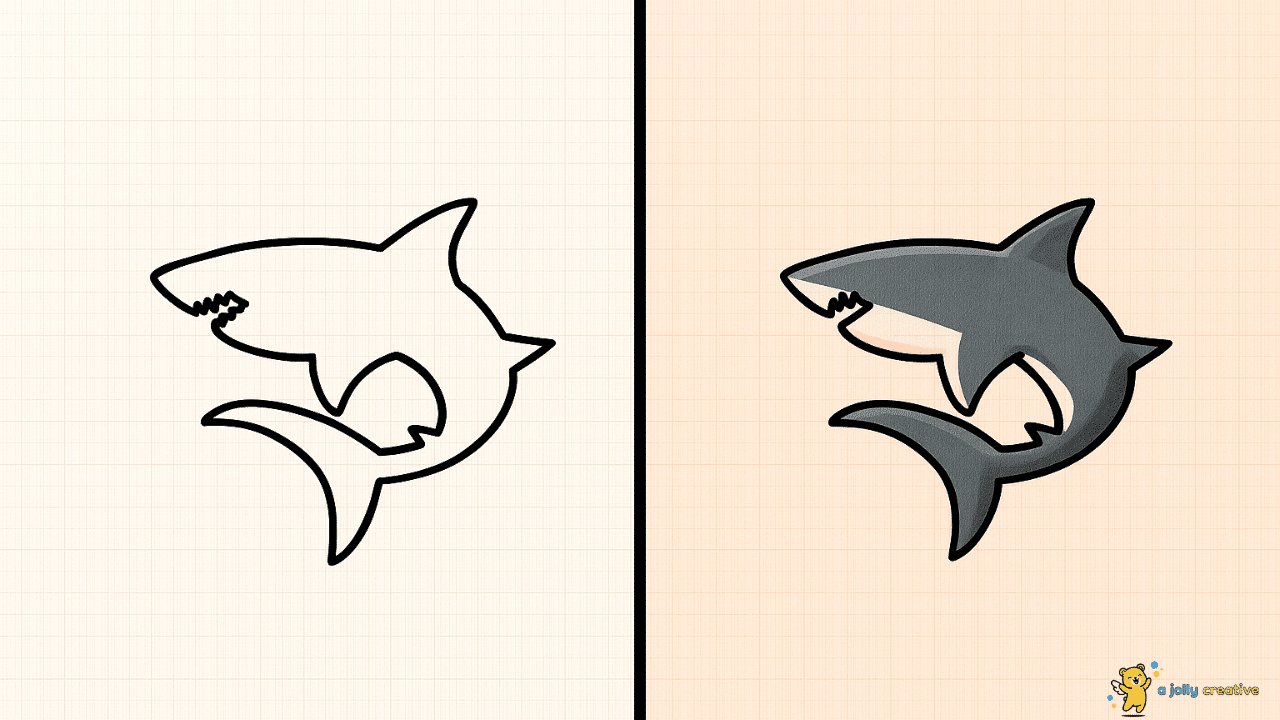
Sharks begin with a streamlined torpedo shape that suggests speed and power. The body should taper dramatically toward both ends.
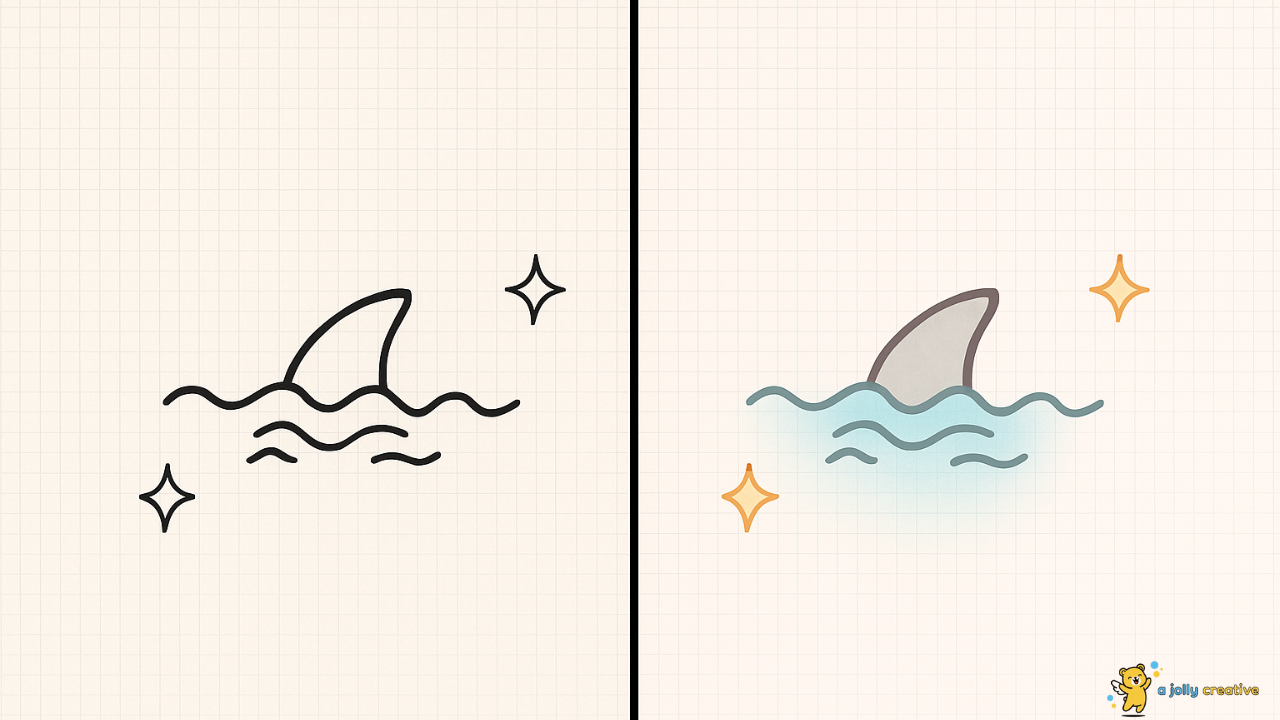
Add a triangular dorsal fin on the back that cuts through water efficiently. Shark fins are the most recognizable feature worldwide.
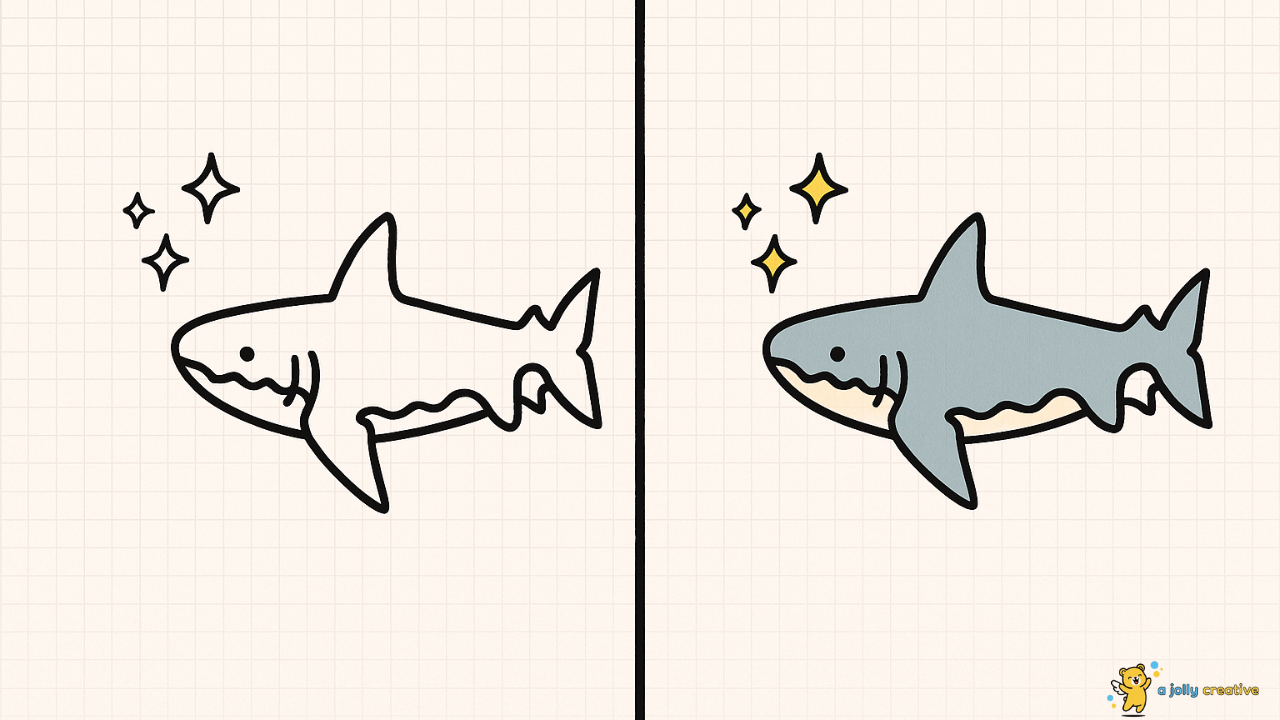
Draw a crescent-shaped tail fin that provides swimming thrust. The tail should appear powerful enough to propel the massive body.
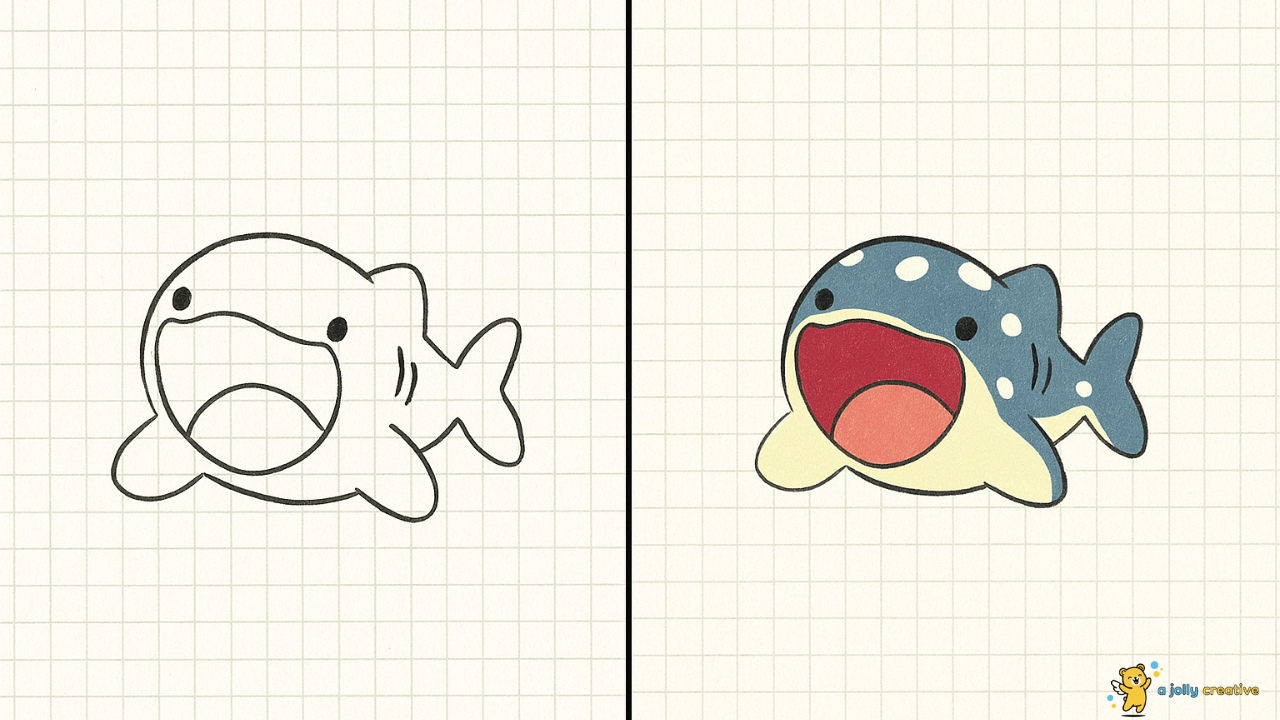
Sharks can be cool, spooky, or straight-up silly. Try different angles, exaggerated teeth, sleepy sharks, or even shy ones. A “shark a day” challenge could easily fill your sketchbook.
Roaring Lion Drawing
Lions start with a circular head that will support the magnificent mane. The head should appear noble and regal.
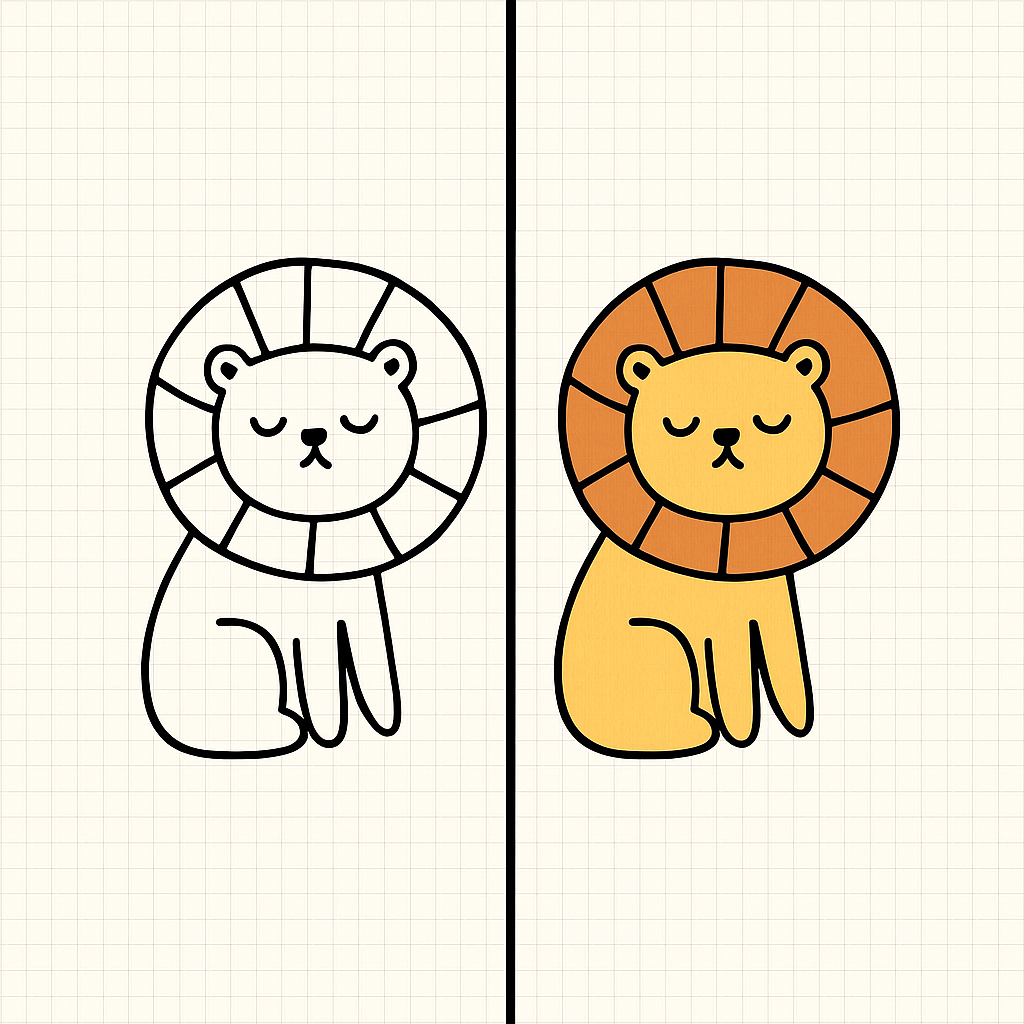
Add the flowing mane around the entire head using curved, wavy lines. Lion manes are their most distinctive and impressive feature.
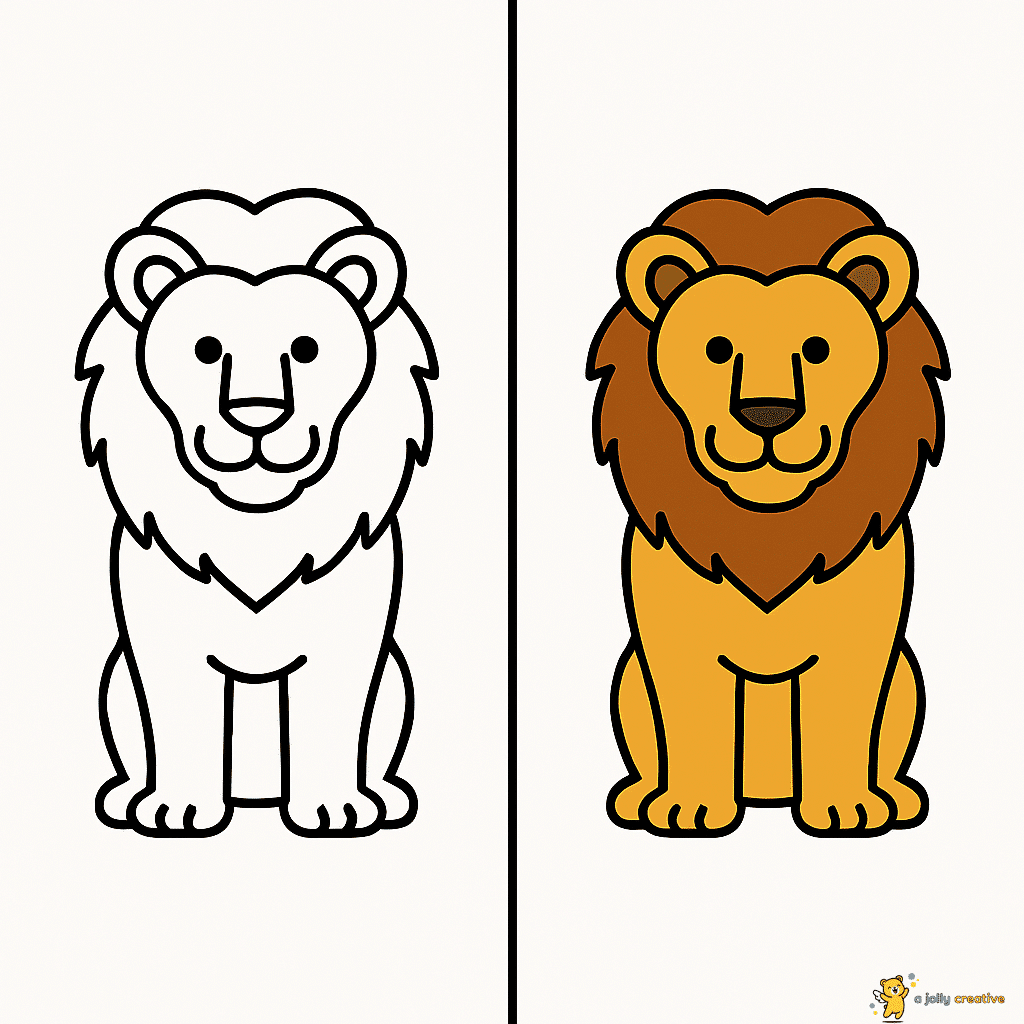
This tail helps with balance during hunting and territorial displays.
Playful Monkey Drawing
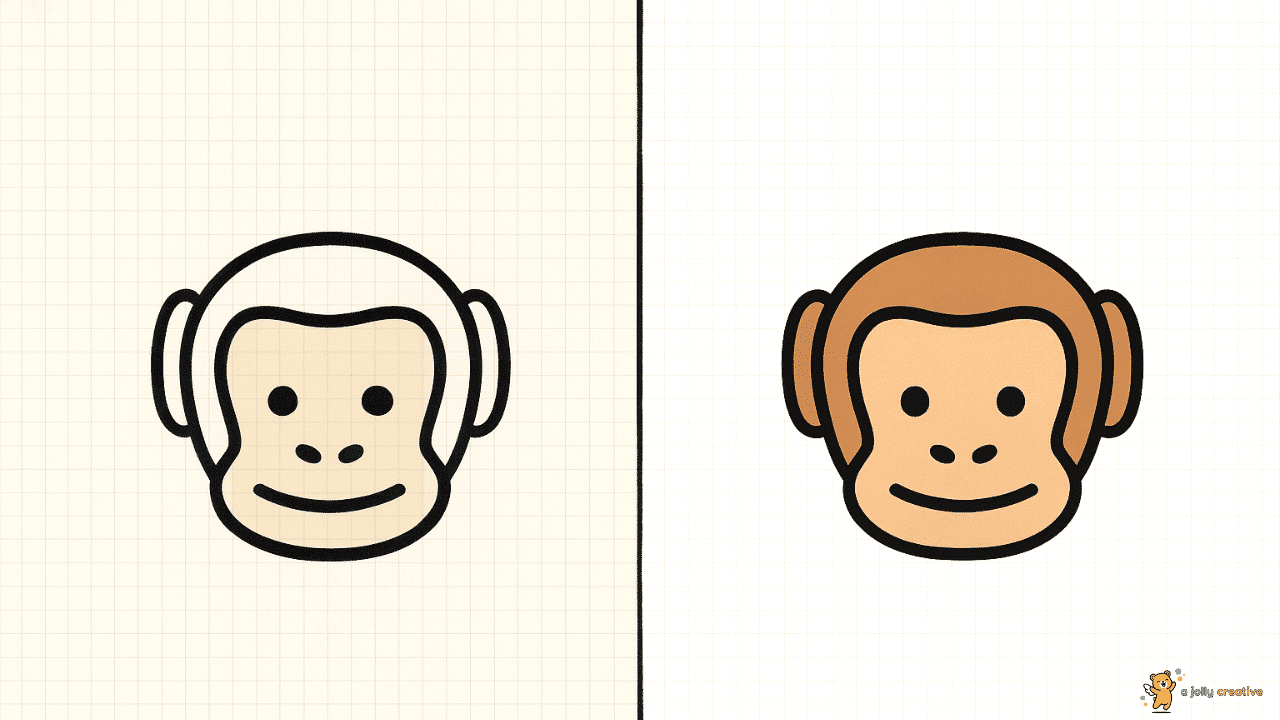
Monkeys begin with a circular head and oval body positioned below it. Keep the proportions playful and energetic-looking.
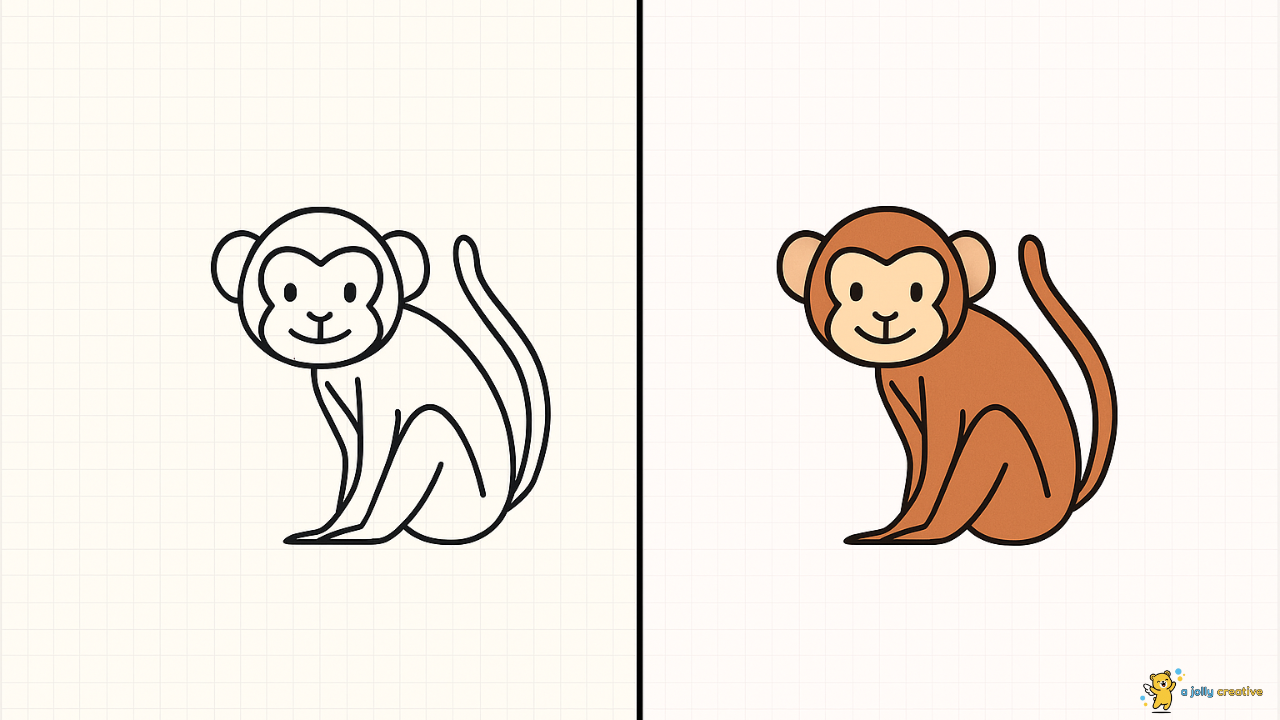
Add long, curved arms that extend beyond the body length. Monkey arms are proportionally longer than human arms for swinging.
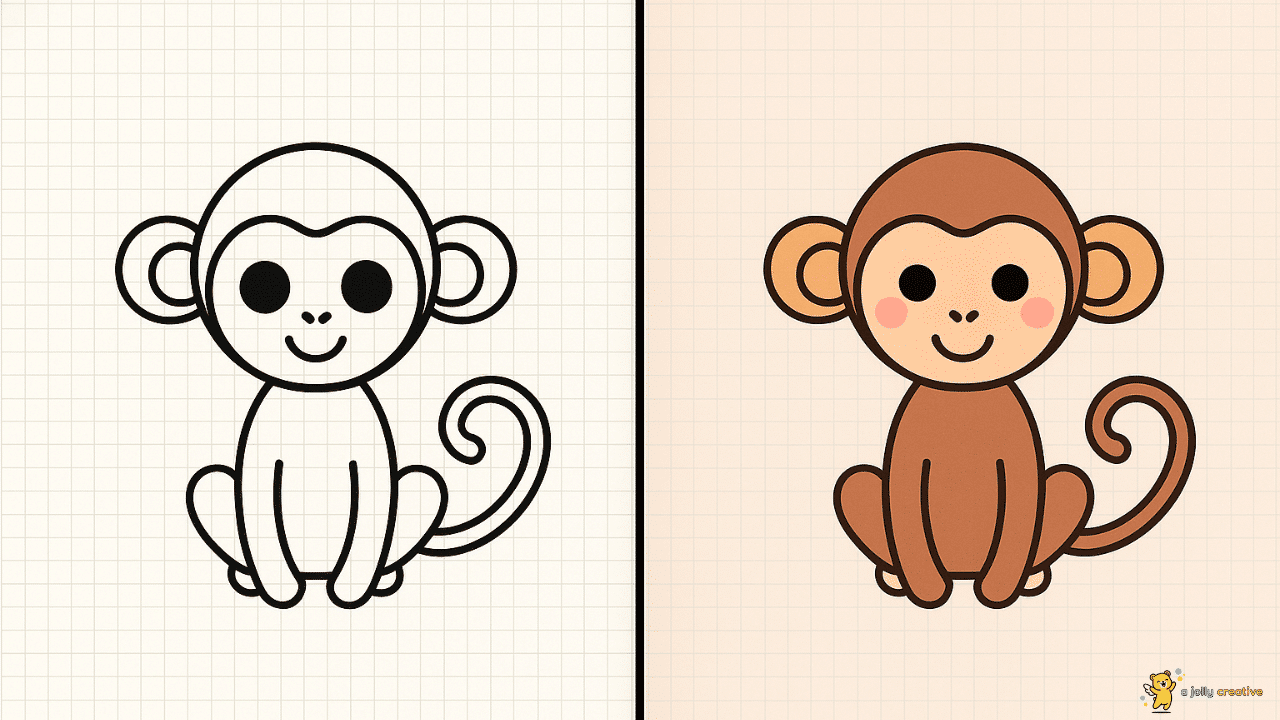
Draw a long tail that curves gracefully behind the body. This tail should appear capable of grasping branches for support.
Bamboo Panda Drawing
Pandas start with a large circular head and round body beneath it. The overall shape should appear cuddly and gentle.
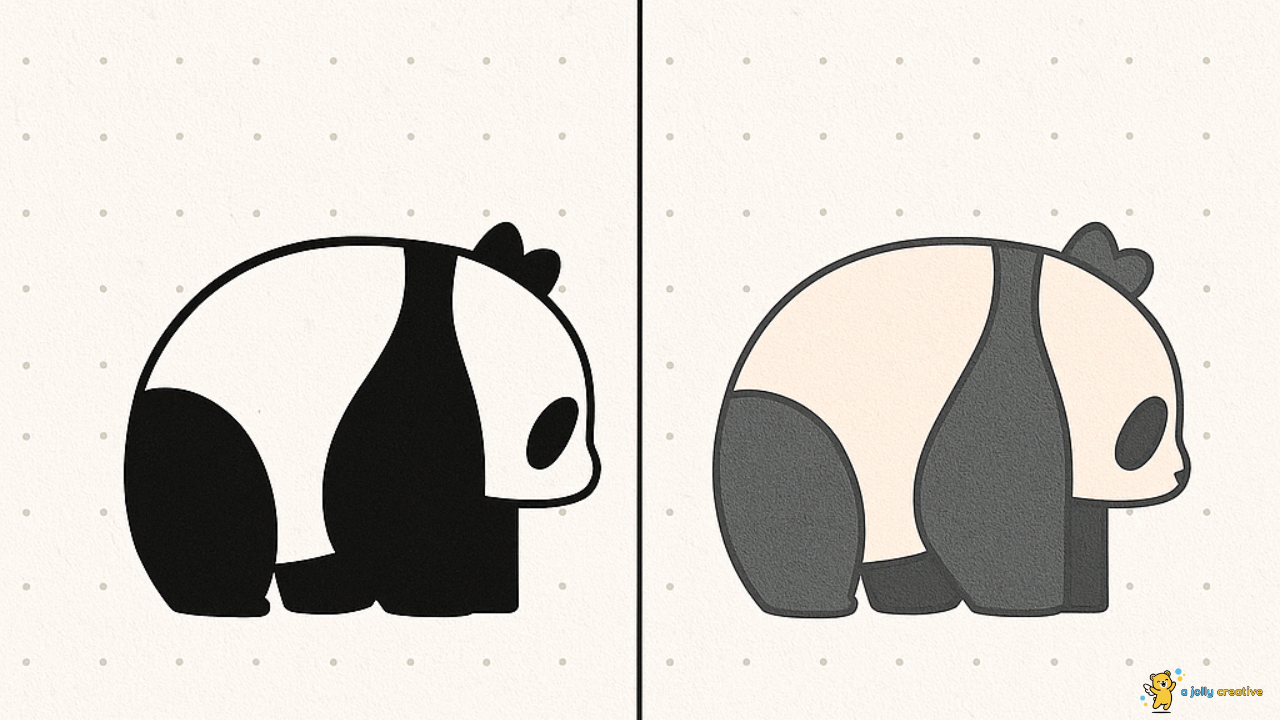
Add distinctive black patches around both eyes for the classic panda appearance. Panda markings are instantly recognizable worldwide.
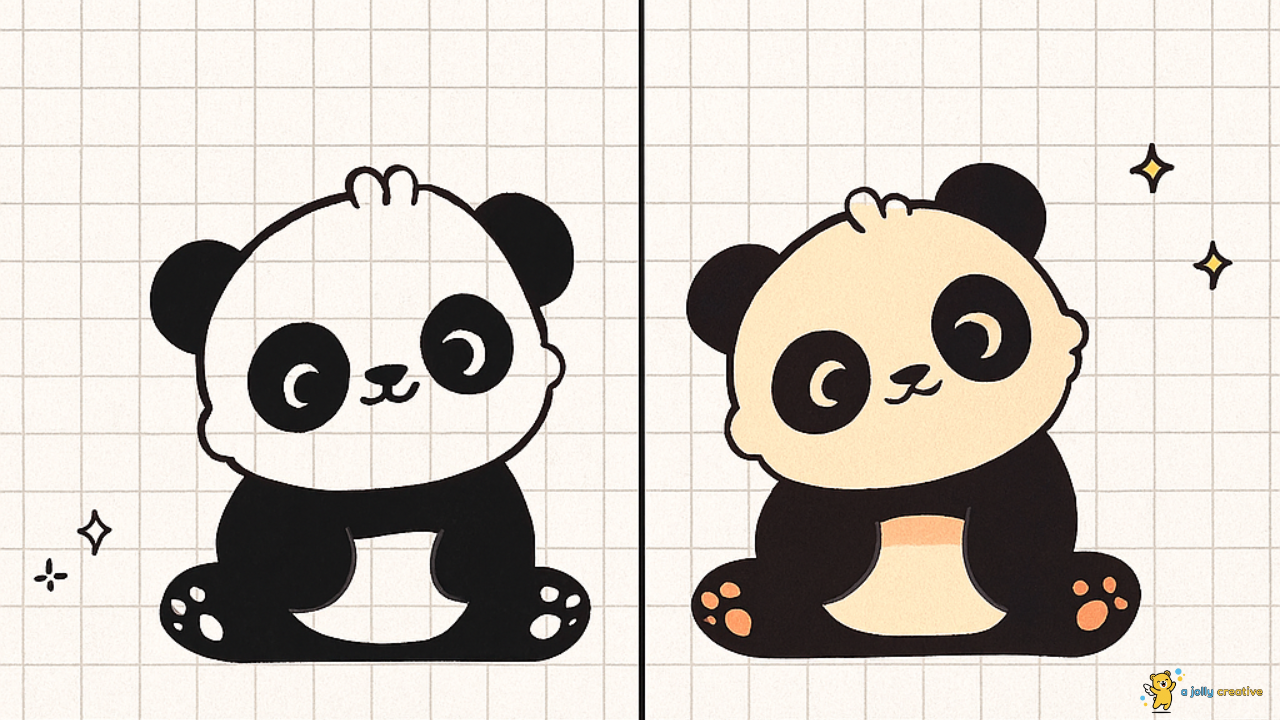
Draw black ears, arms, and legs contrasting against the white body. This color pattern makes pandas unique among bear species.
Galloping Horse Drawing
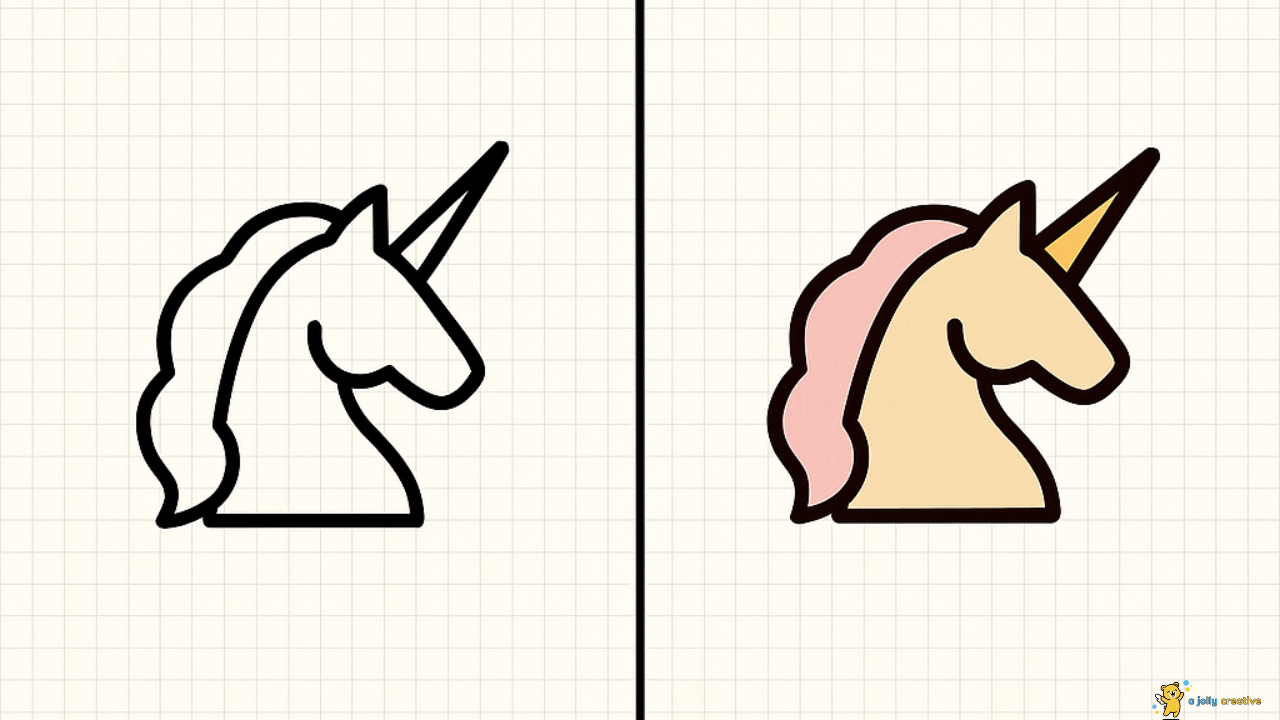
Horses begin with an oval body positioned horizontally for running stability. The body should appear athletic and muscular.
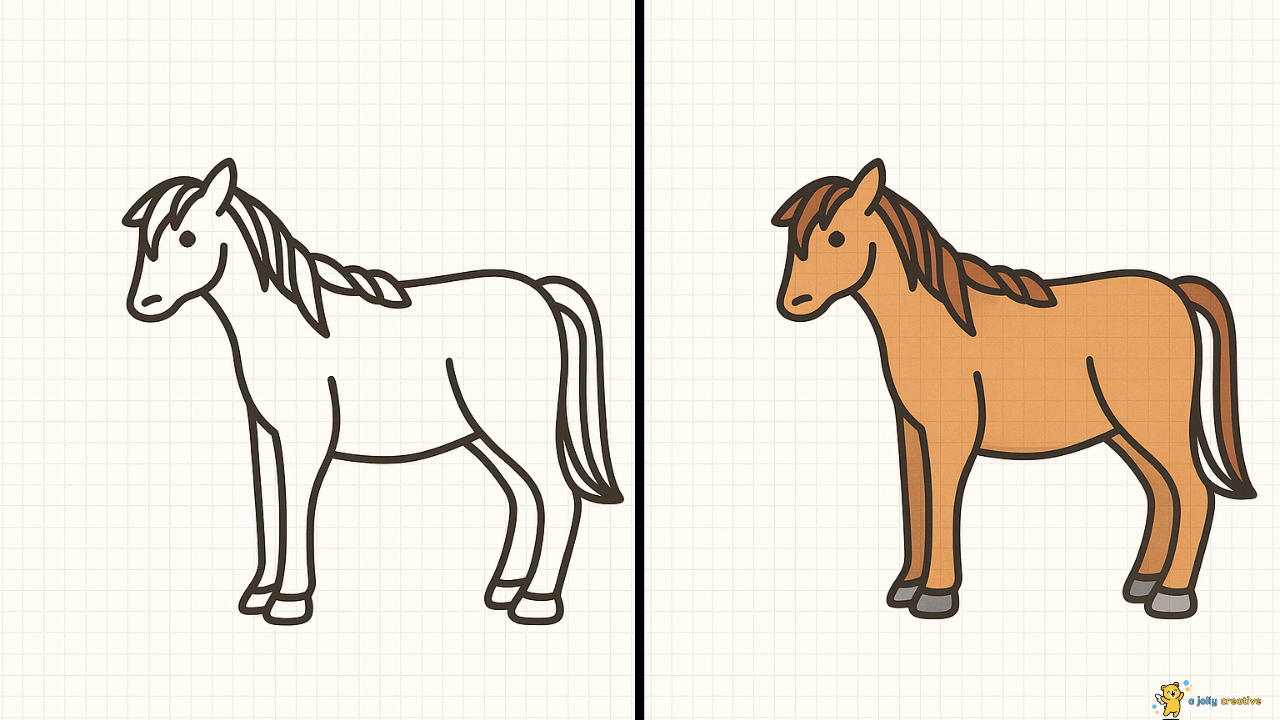
Add a long rectangular head connected by an elegant curved neck. Horse heads are proportionally longer than most other animals.
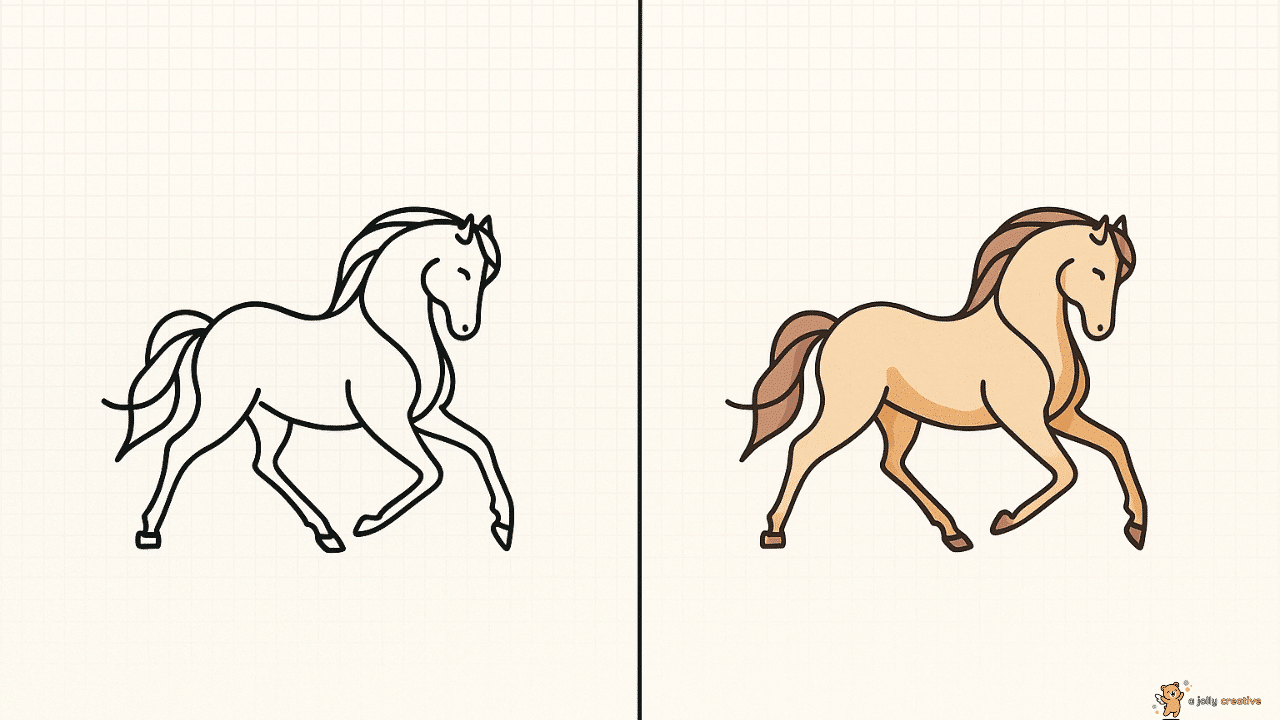
Draw flowing mane hair along the neck and head for movement. The mane should appear windswept and dynamic even while standing.
Happy Pig Drawing
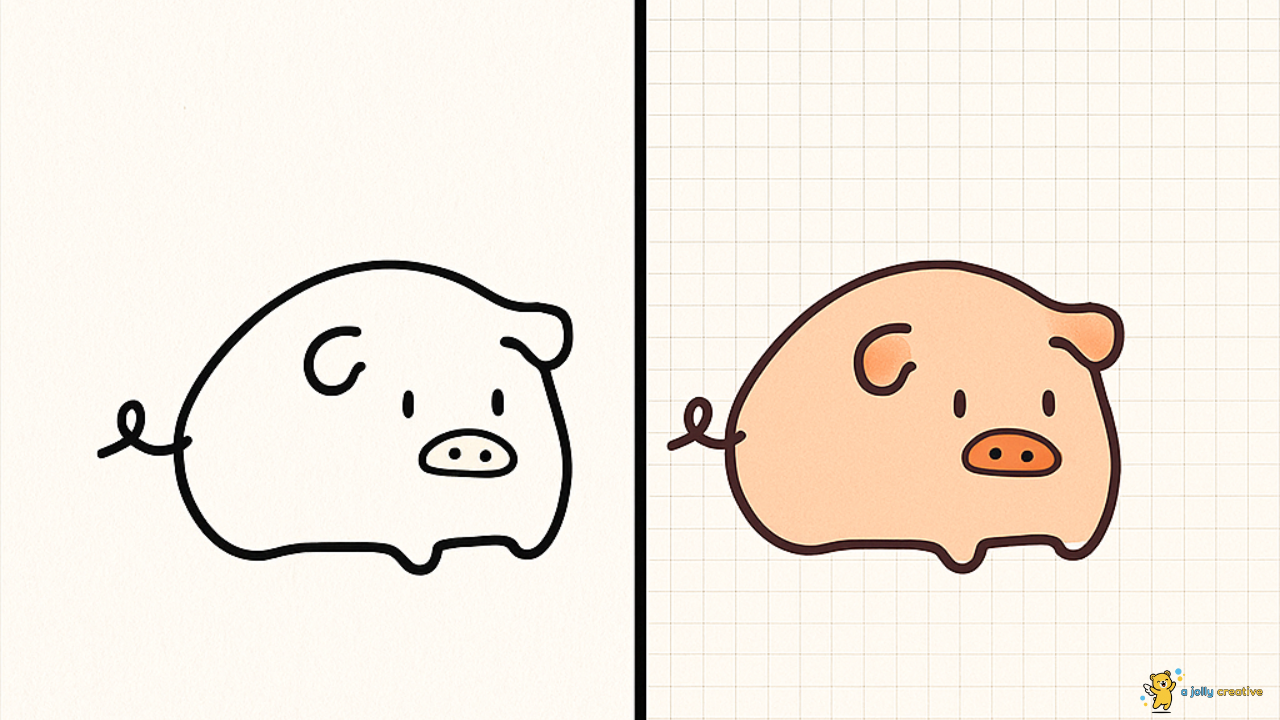
Pigs start with an oval body that appears round and well-fed. The body should look content and comfortable. Add a circular snout extending from the head for rooting behavior.
Slithering Snake Drawing
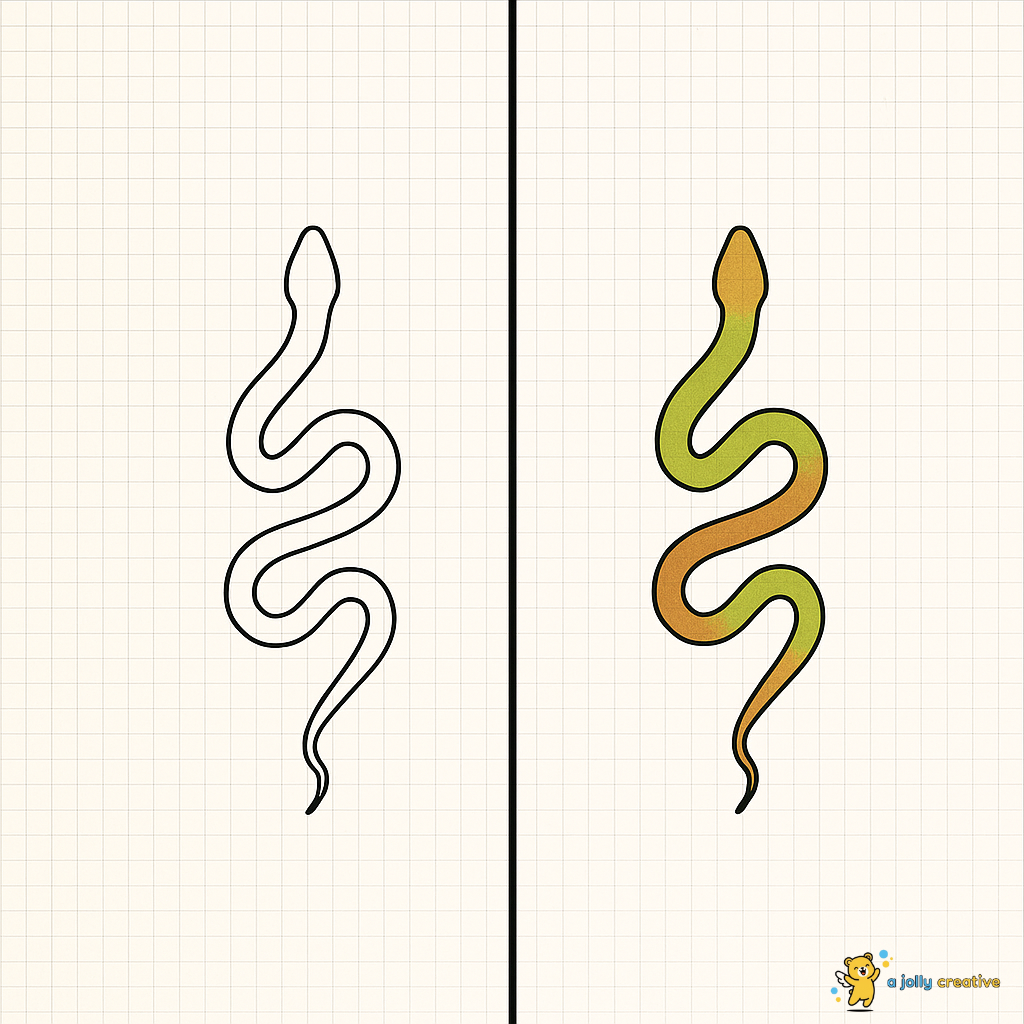
Snakes begin with a long, curved tube shape that flows across your drawing surface. The body should appear flexible and smooth.
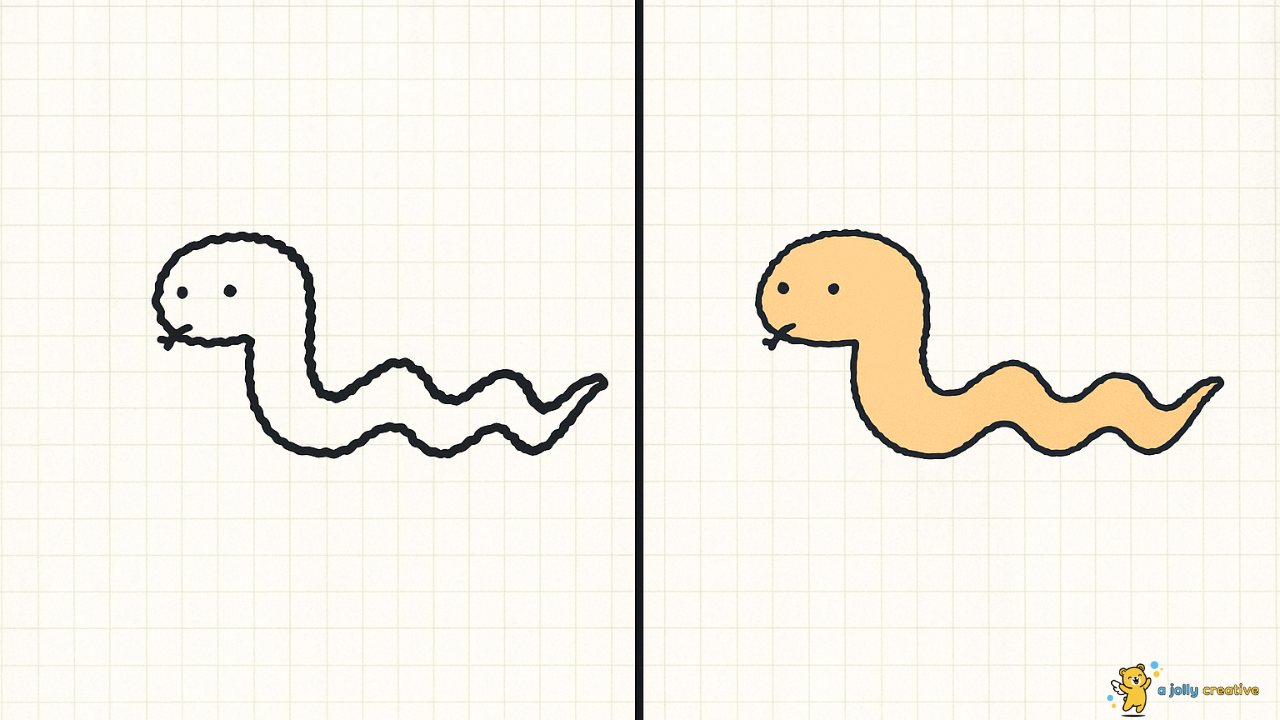
Add a slightly wider head at one end with a forked tongue extending outward. Snake heads are only marginally wider than bodies.
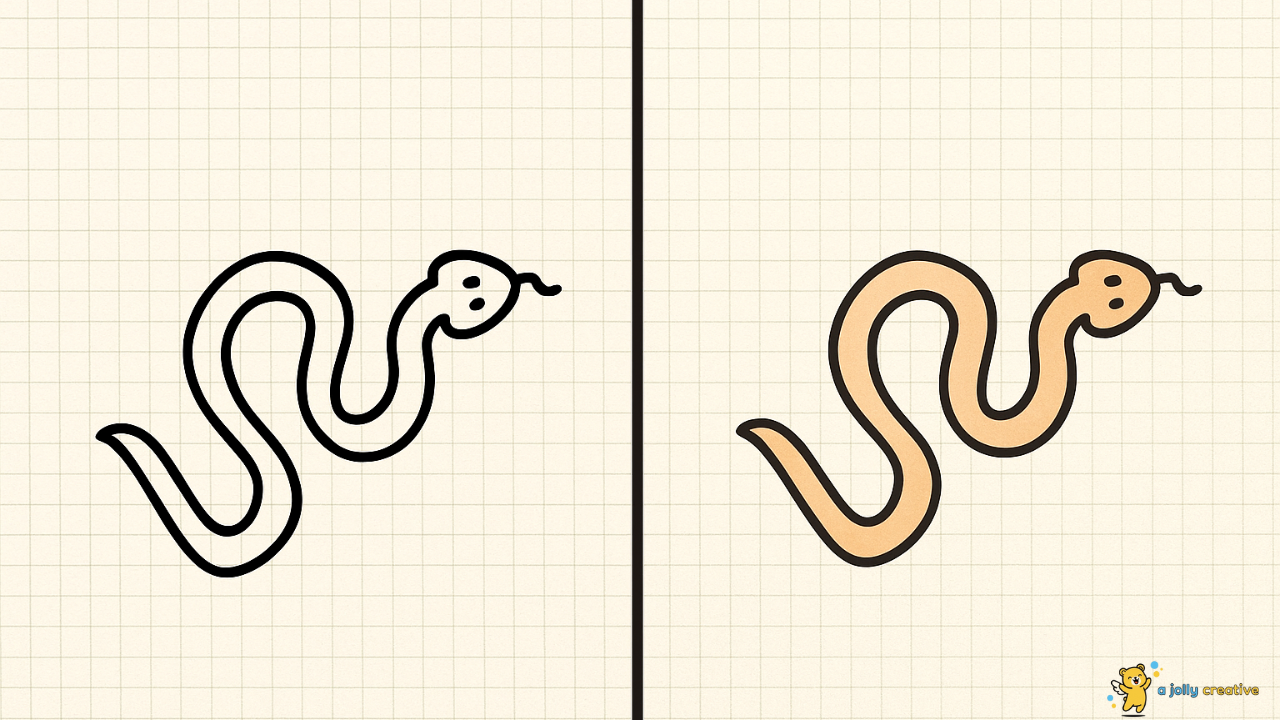
Draw diamond or geometric patterns along the body length for realistic detail. These patterns vary dramatically between different snake species.
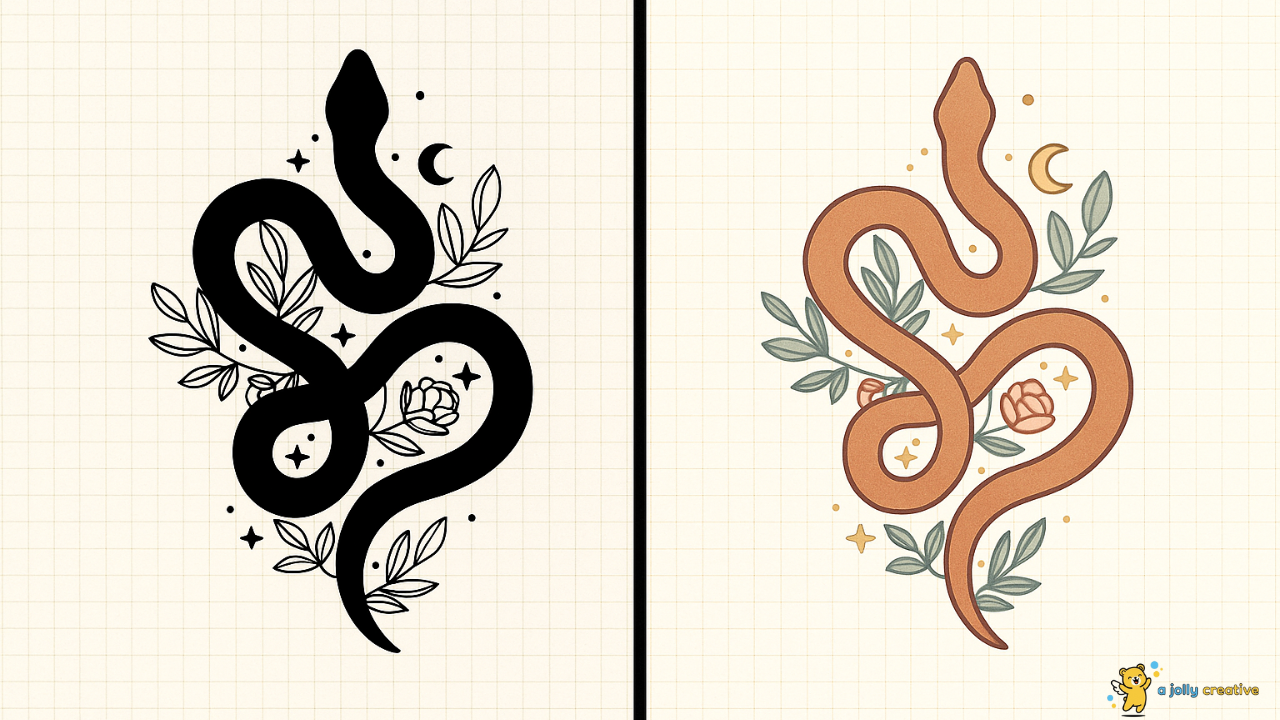
Sketch the body in an S-curve to suggest slithering movement.
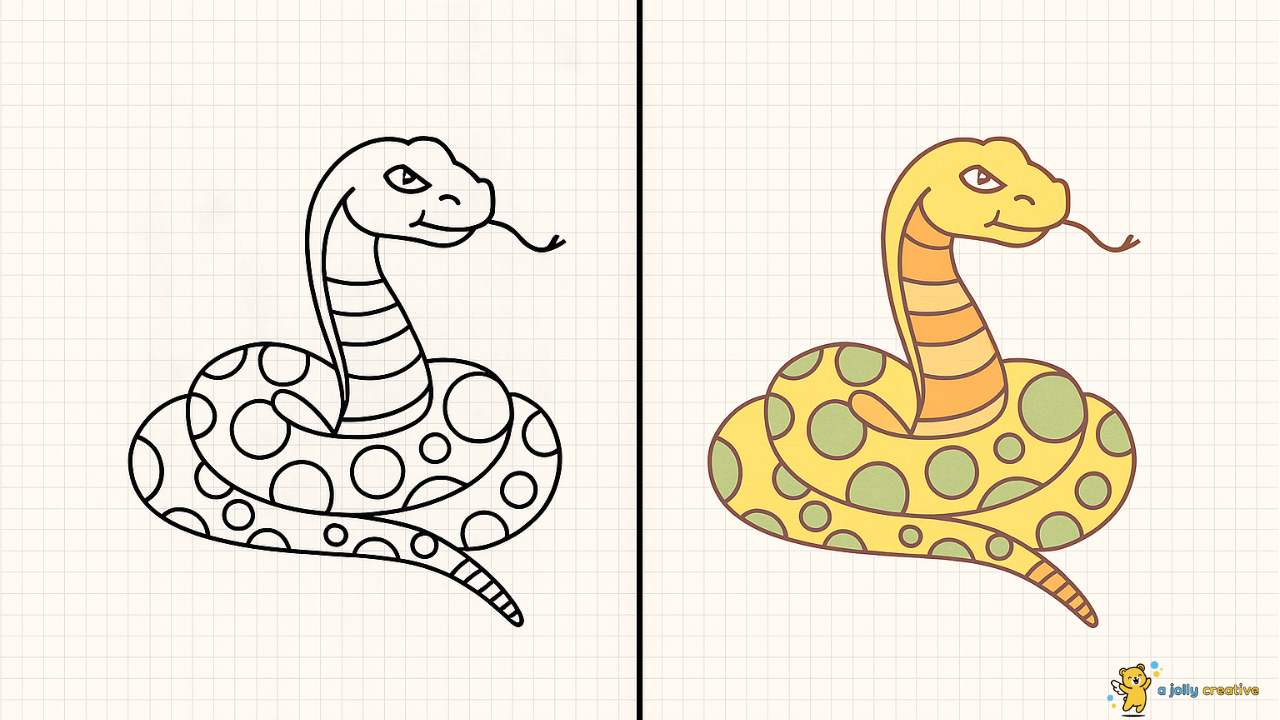
This curved positioning makes snakes appear alive and ready to move.
Don’t miss our article on: 35+ Easy Hamster Drawing Ideas for Beginners
Tall Giraffe Drawing
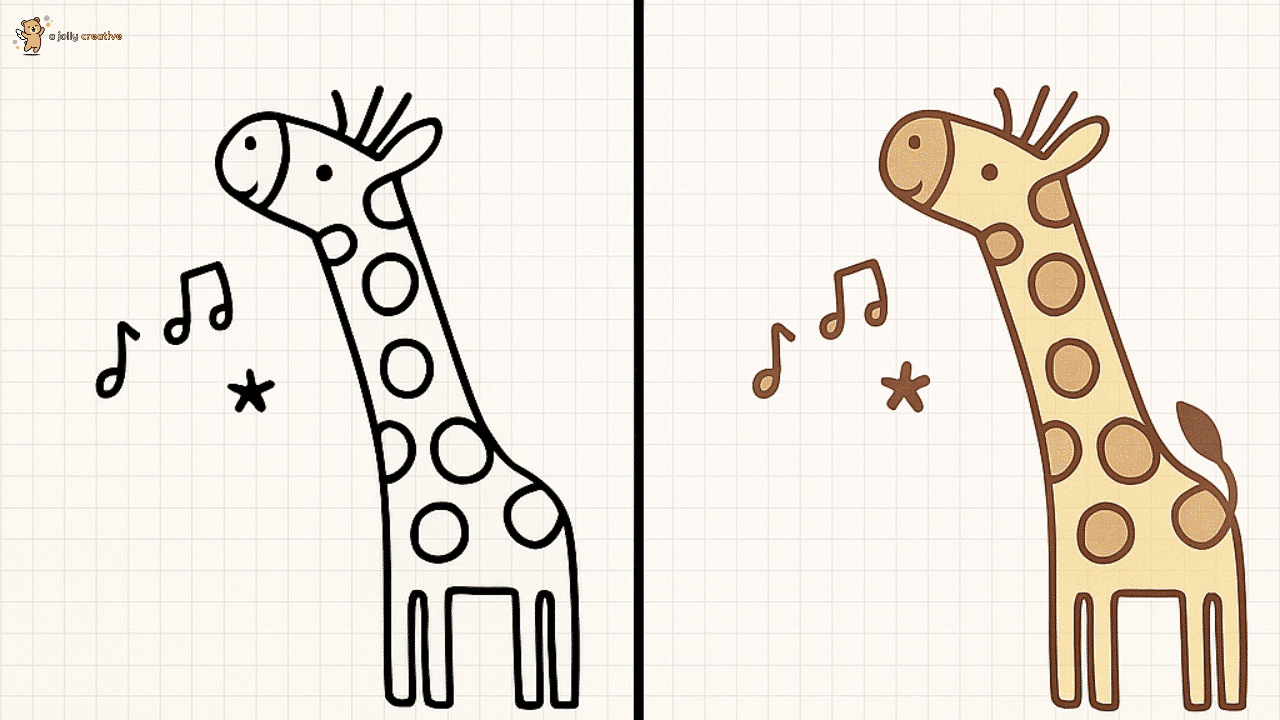
Giraffes start with an oval body and an extremely long rectangular neck. The neck should be roughly twice the body length.
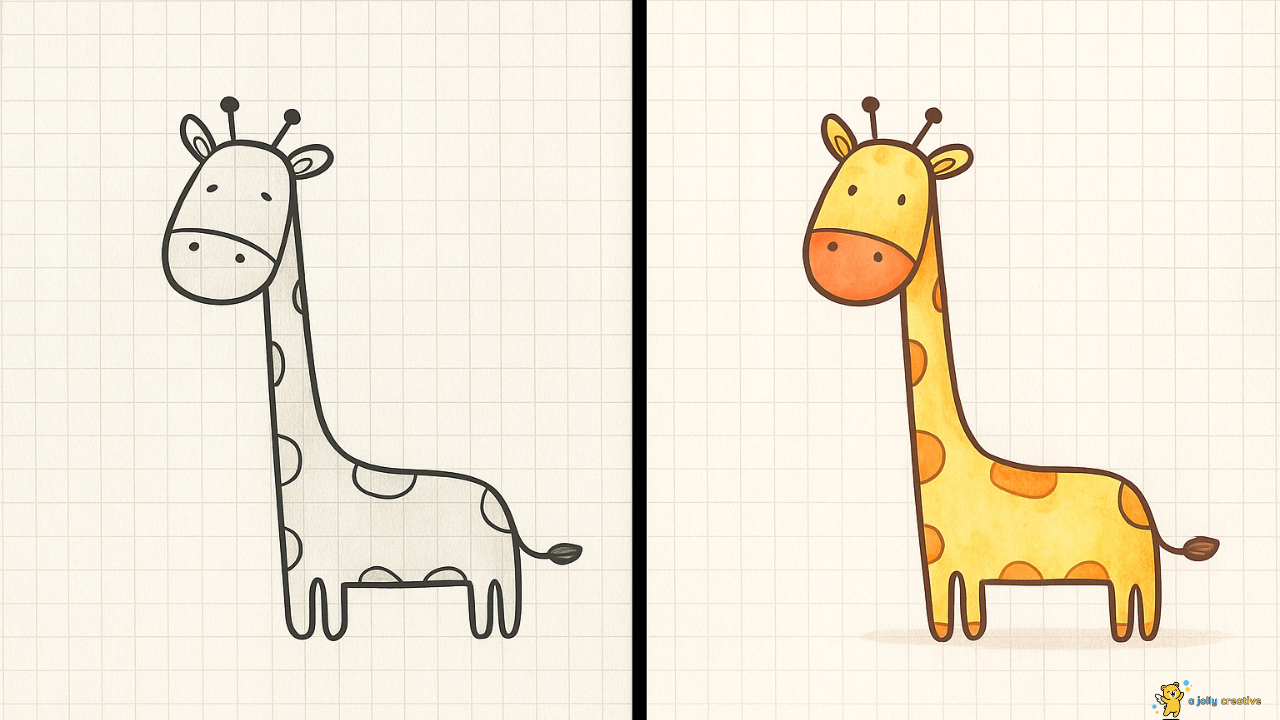
Add a small triangular head positioned at the neck’s top end. Giraffe heads appear tiny compared to their massive necks.
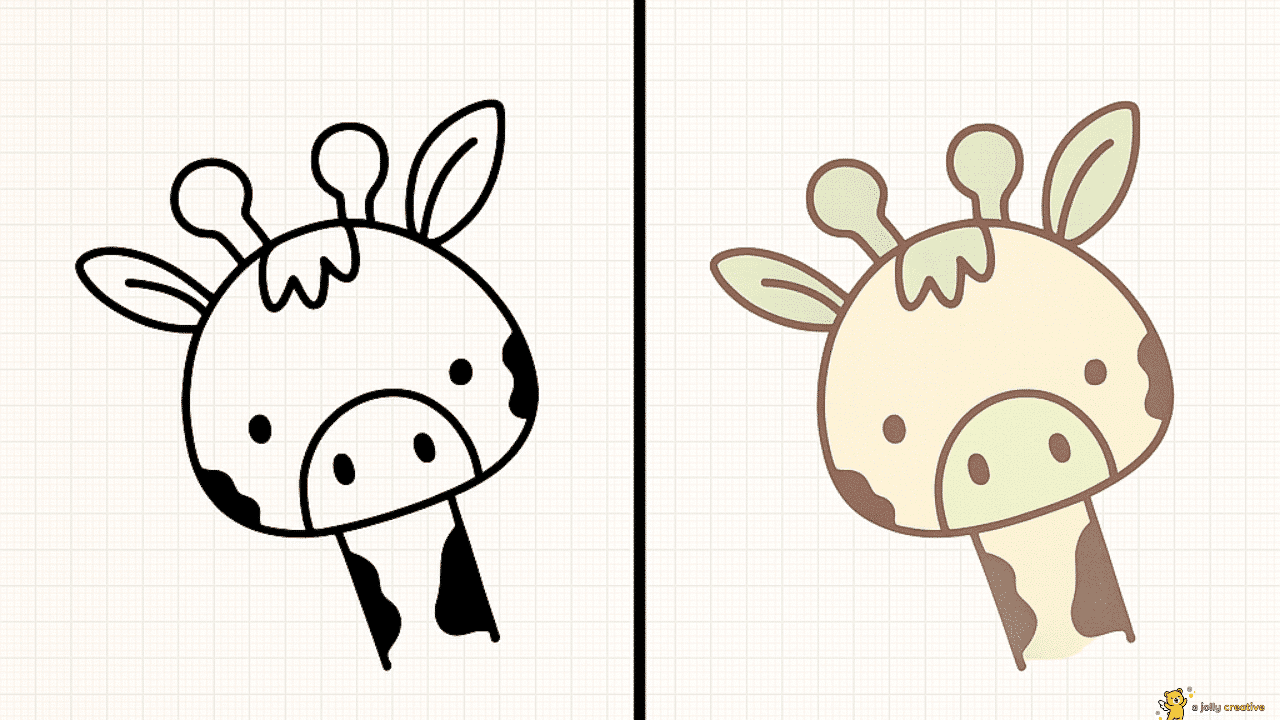
Draw long, thin legs that elevate the body high above ground level. These legs should appear sturdy despite their slender appearance.
Wild Crocodile Drawing
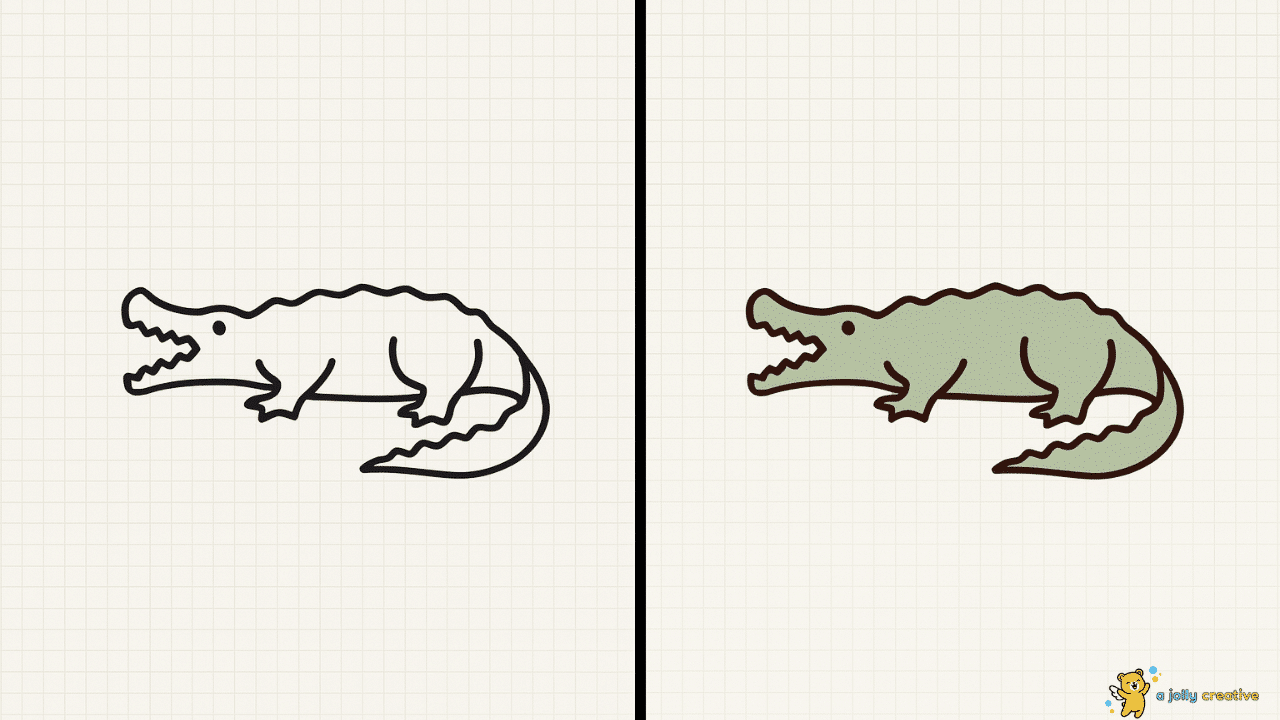
Crocodiles begin with a long oval body that appears low to the ground. The body should look armored and dangerous.
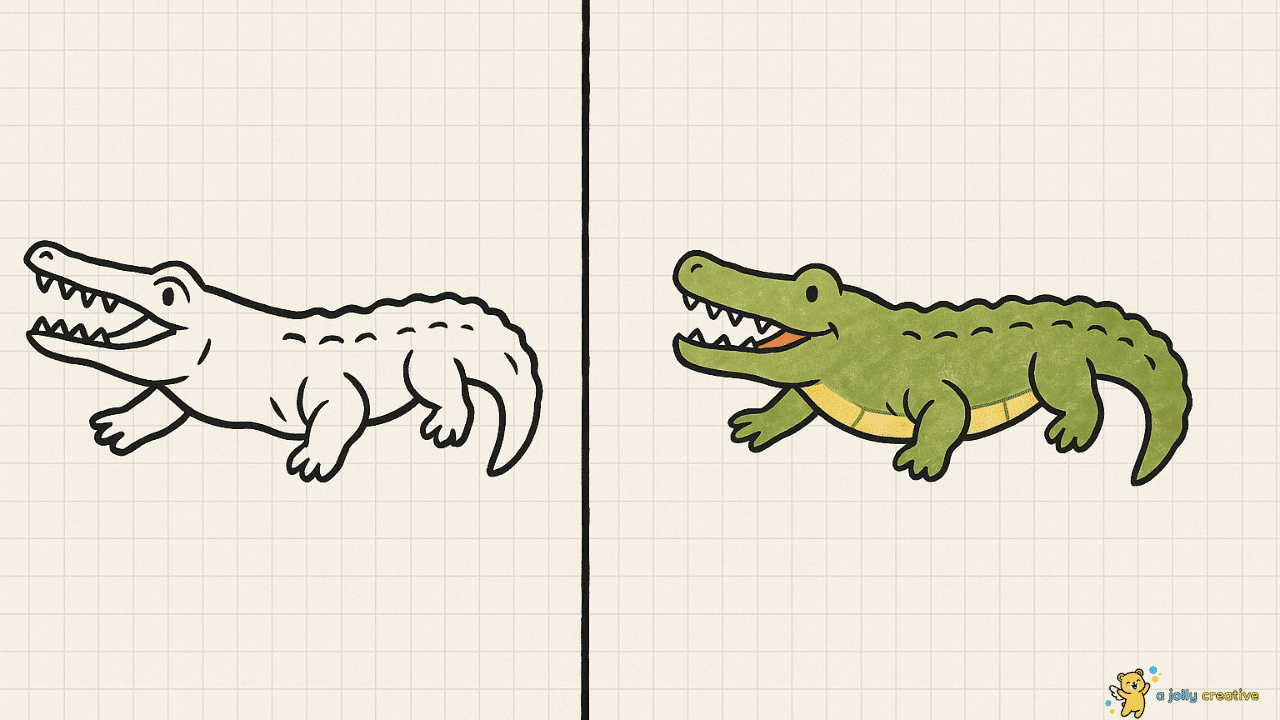
Add an elongated snout filled with sharp triangular teeth. Crocodile jaws are their most fearsome and recognizable feature.
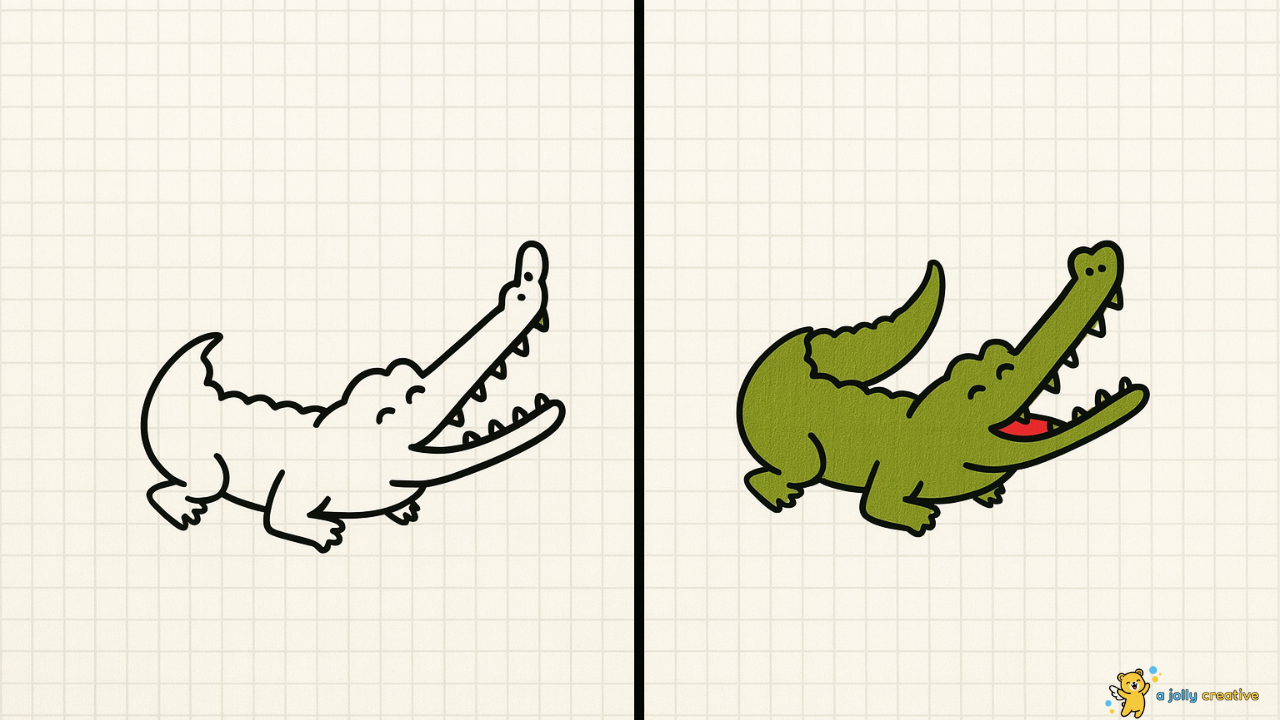
Draw a powerful tail that’s roughly the same length as the body. This tail provides swimming propulsion and defensive weapons.
Fluffy Sheep Drawing
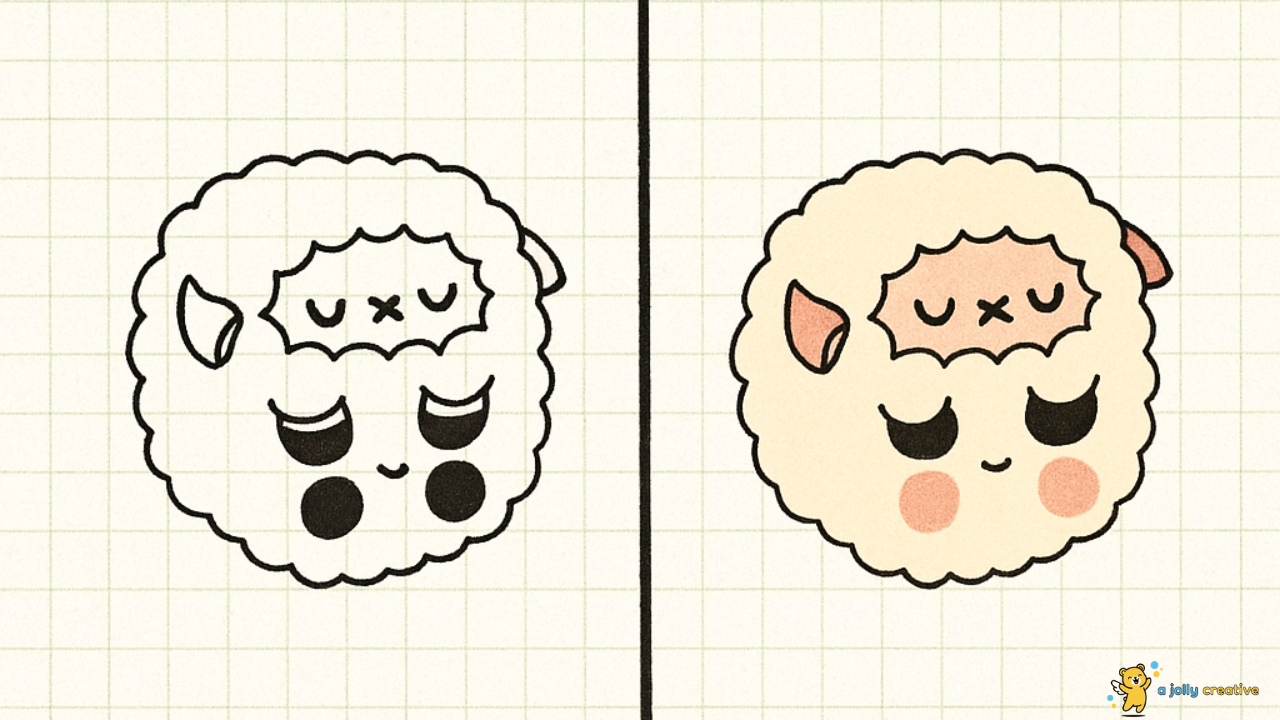
Sheep start with a fluffy cloud shape for the body using curvy, bumpy lines. The body should appear soft and wooly.
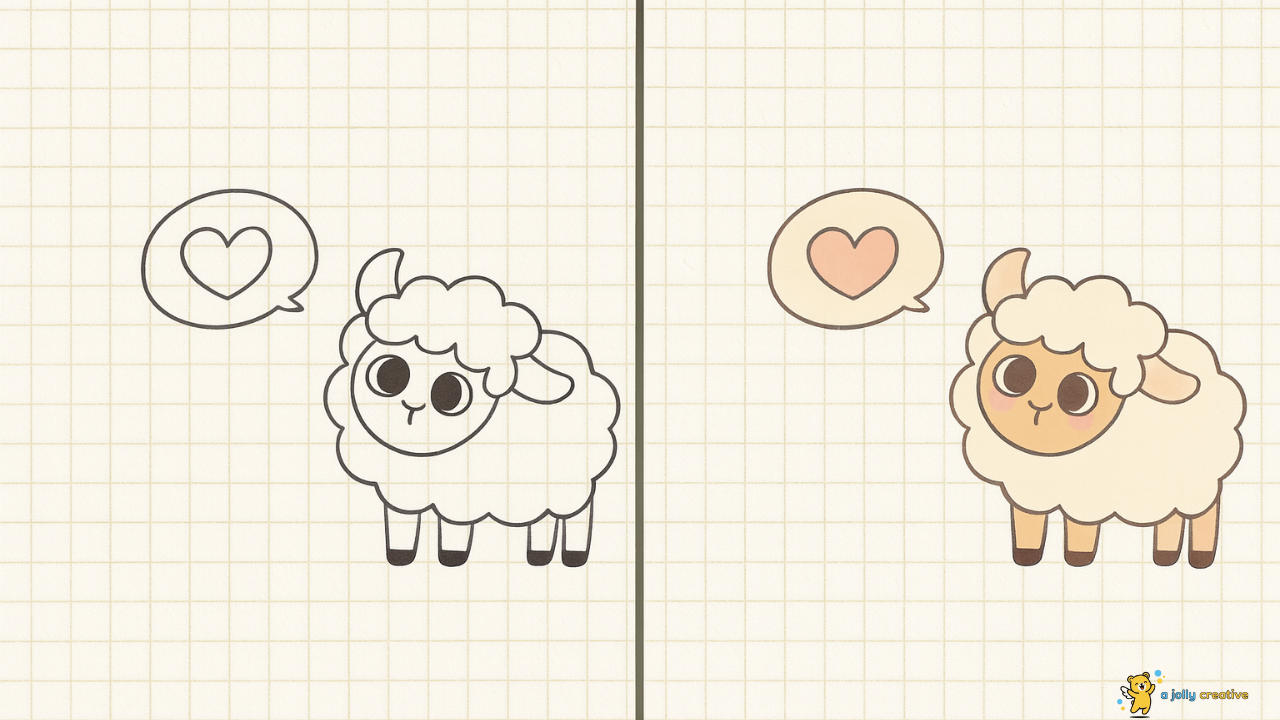
Add a small oval head protruding from the fluffy body mass. Sheep heads often appear almost lost within their thick wool.
Koala Drawing
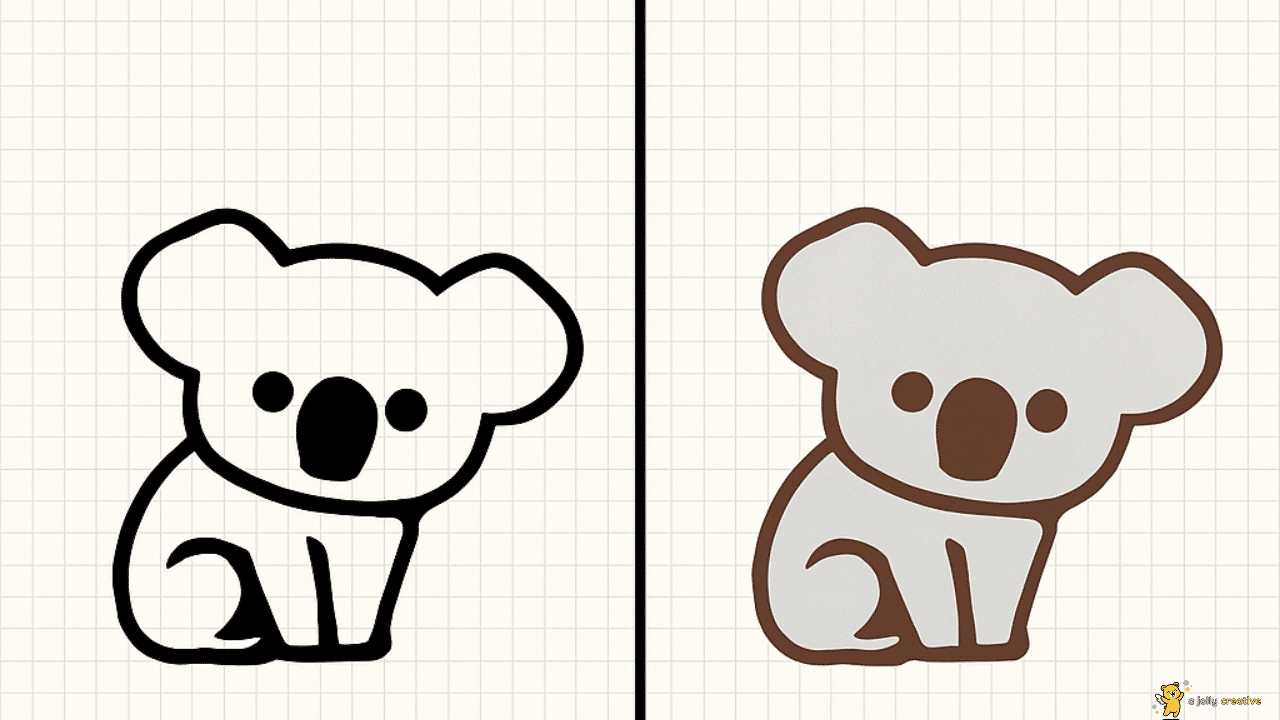
Koalas begin with a round body and large circular head above it. The proportions should appear cuddly and sleepy.
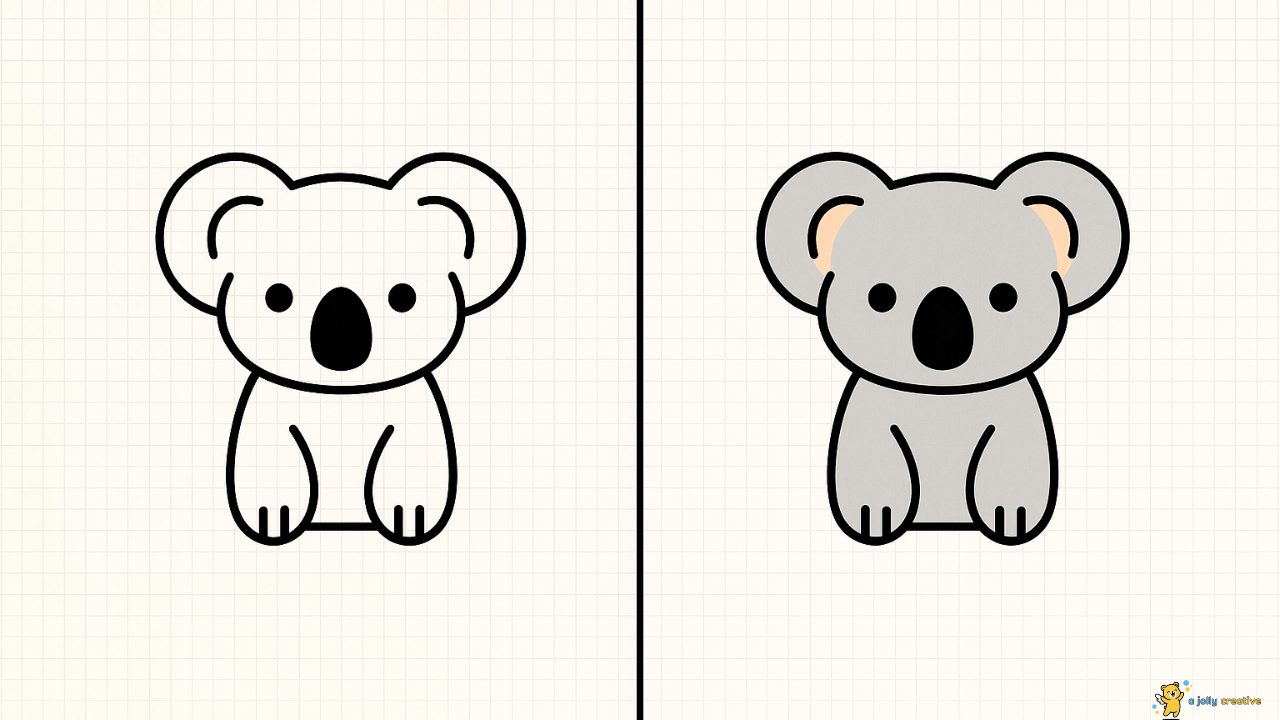
Add large, round ears positioned on both sides of the head. Koala ears are proportionally enormous and fuzzy-looking.
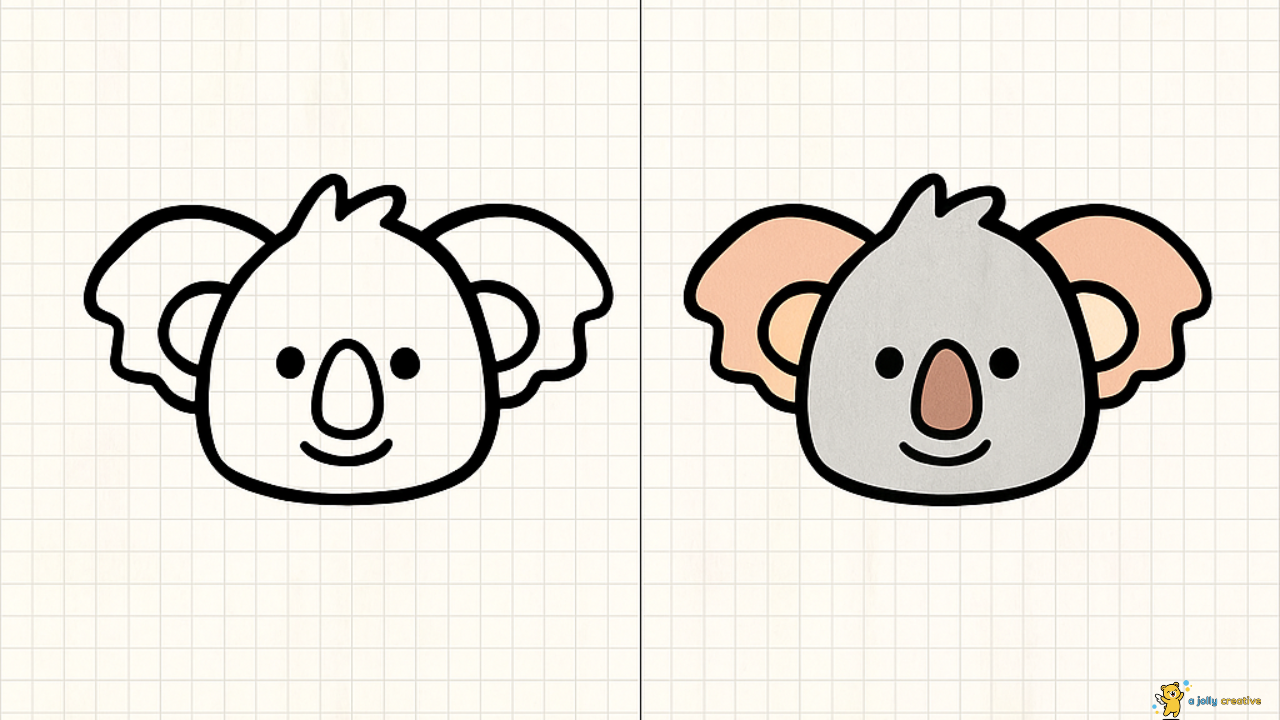
Draw eucalyptus tree branches for the koala to cling onto naturally. These trees are their natural habitat and food source.
Swimming Seal Drawing
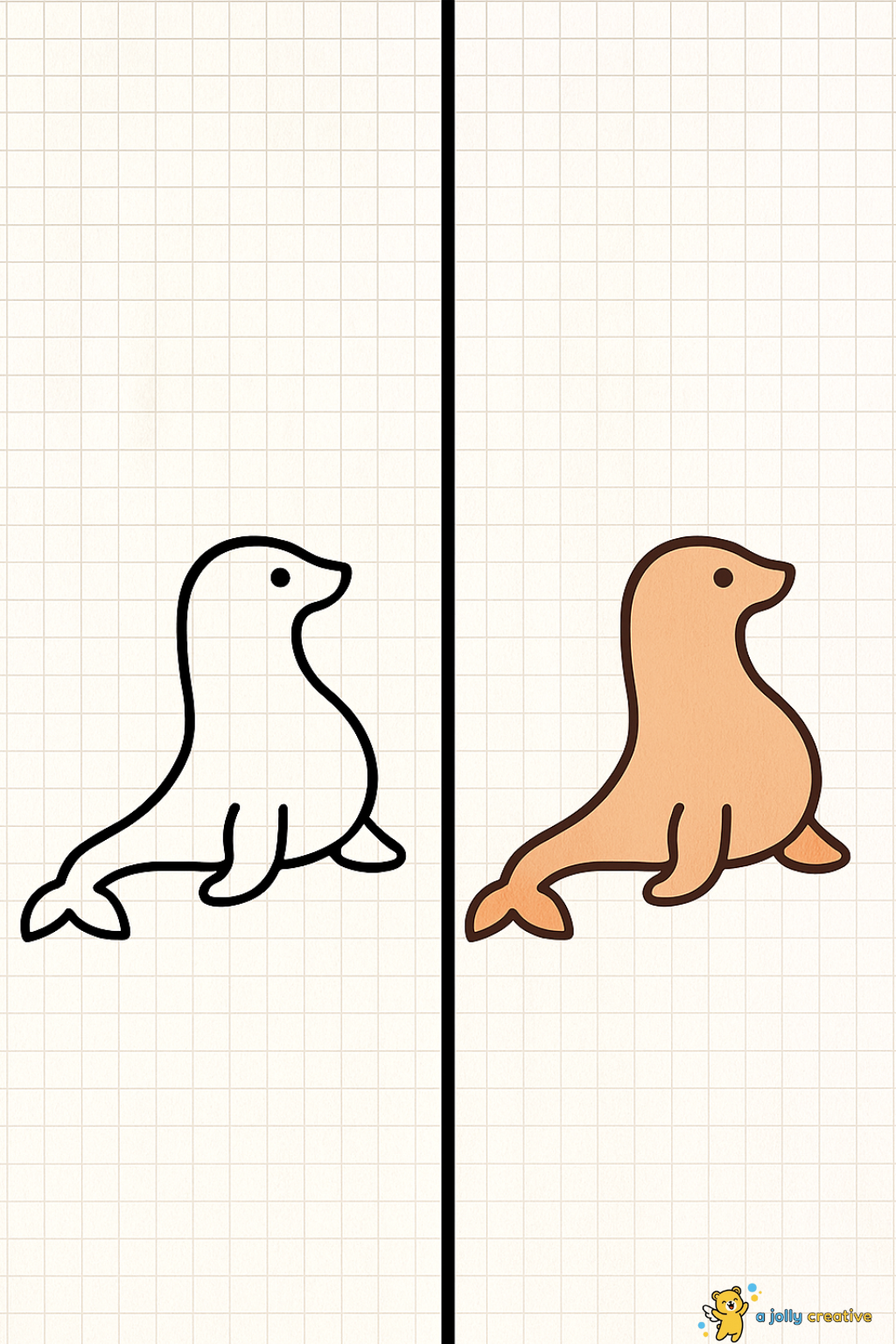
Seals start with a streamlined oval body that tapers toward the tail end. The body should appear designed for swimming efficiency.
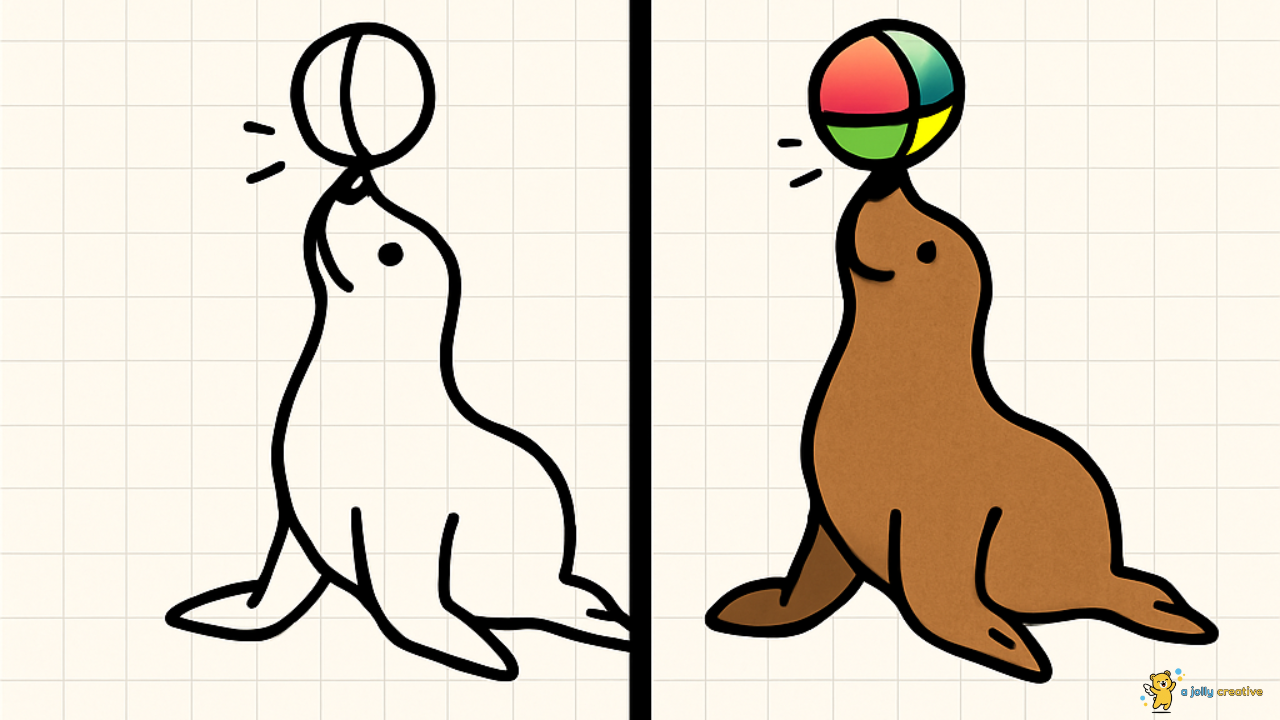
Add flippers instead of traditional legs for underwater propulsion. Seal flippers are perfectly adapted for marine life.
Performing Sea Lion Drawing
Sea lions begin with a similar body to seals but with longer front flippers. The body should appear more athletic and agile.
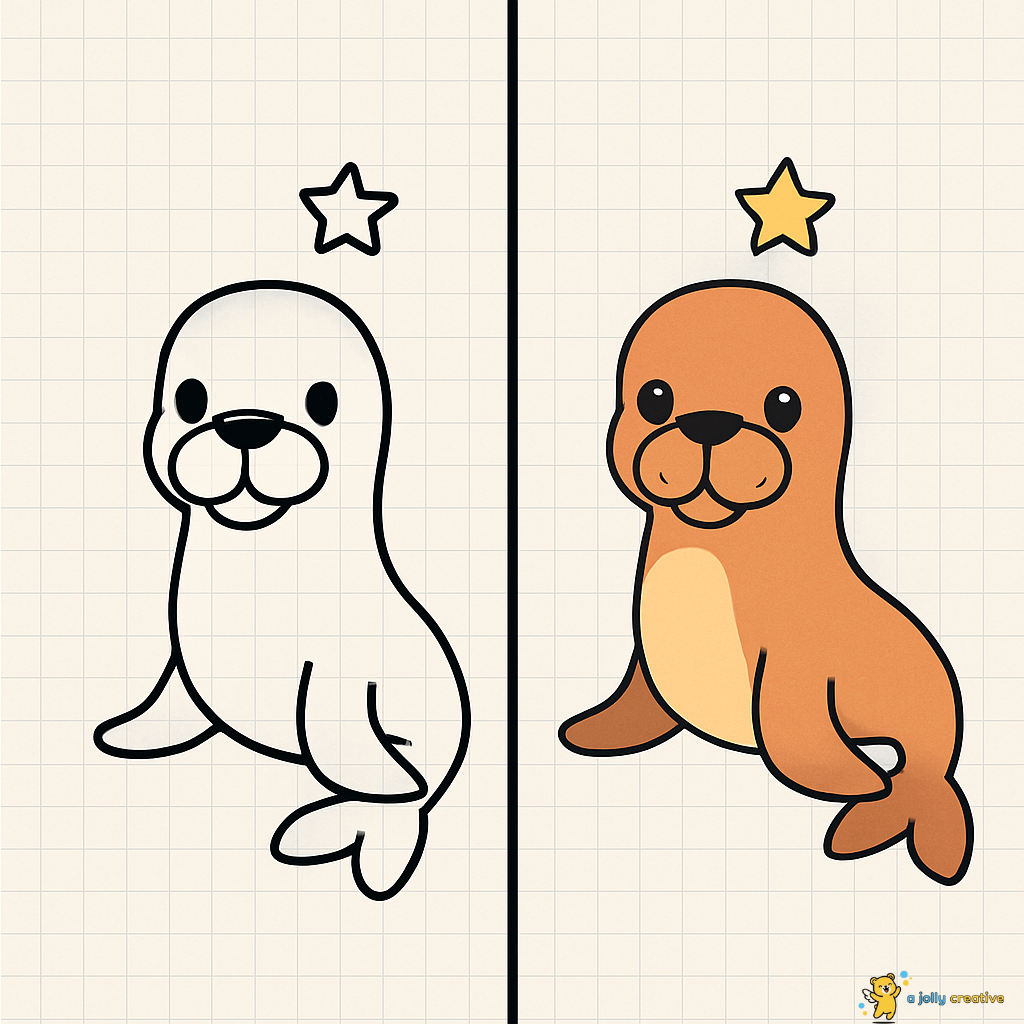
Add a more prominent head and longer neck than regular seals. Sea lion necks are more visible and flexible for performance.
Hubby Hamster Drawing
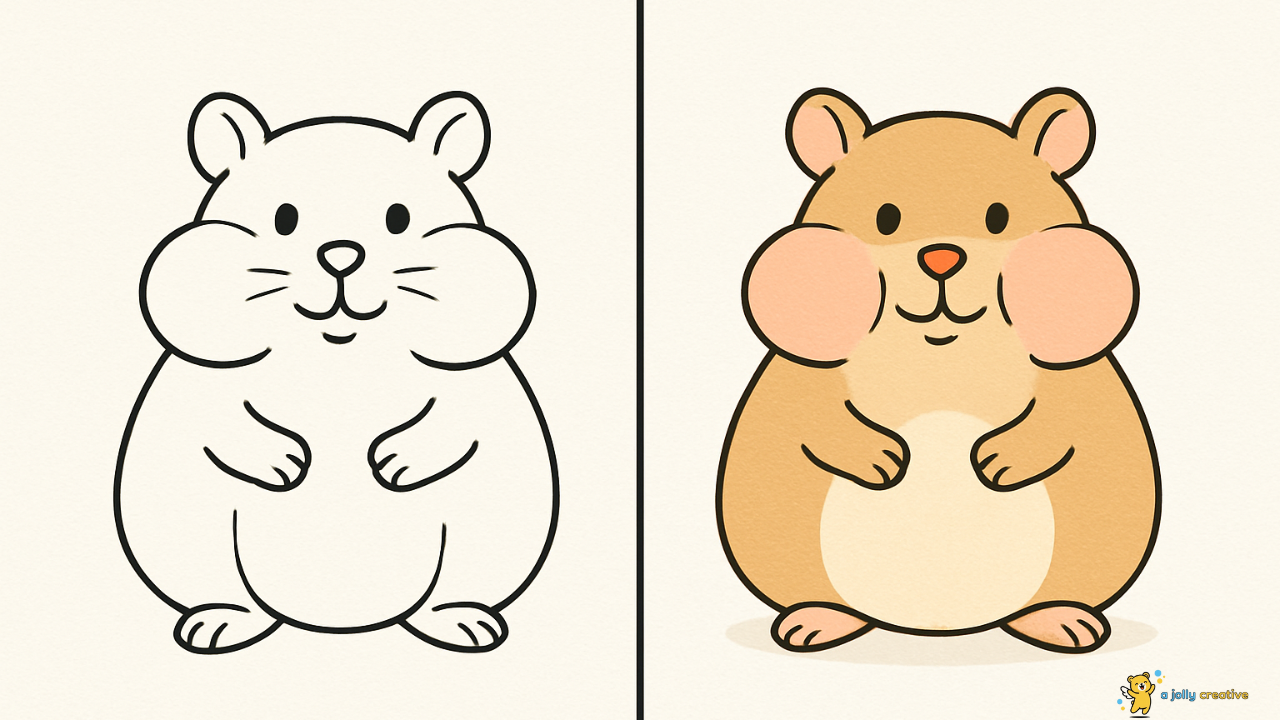
Hamsters start with a round, chubby body that appears well-fed and content. The body should look soft and cuddly.
Add prominent cheek pouches that bulge outward from food storage. Hamster cheeks can expand dramatically when filled with food.
Garden Snail Drawing
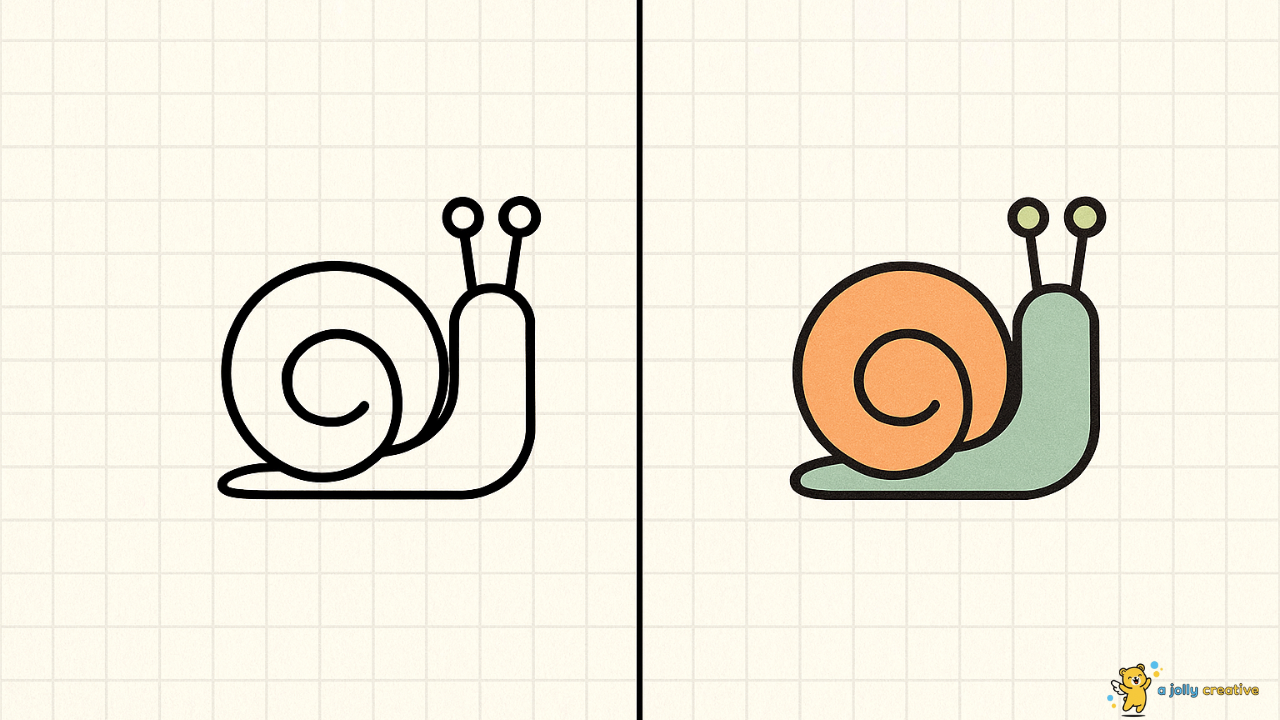
Snails start with a spiral shell shape using gradually increasing circles. The shell should dominate the overall drawing composition.
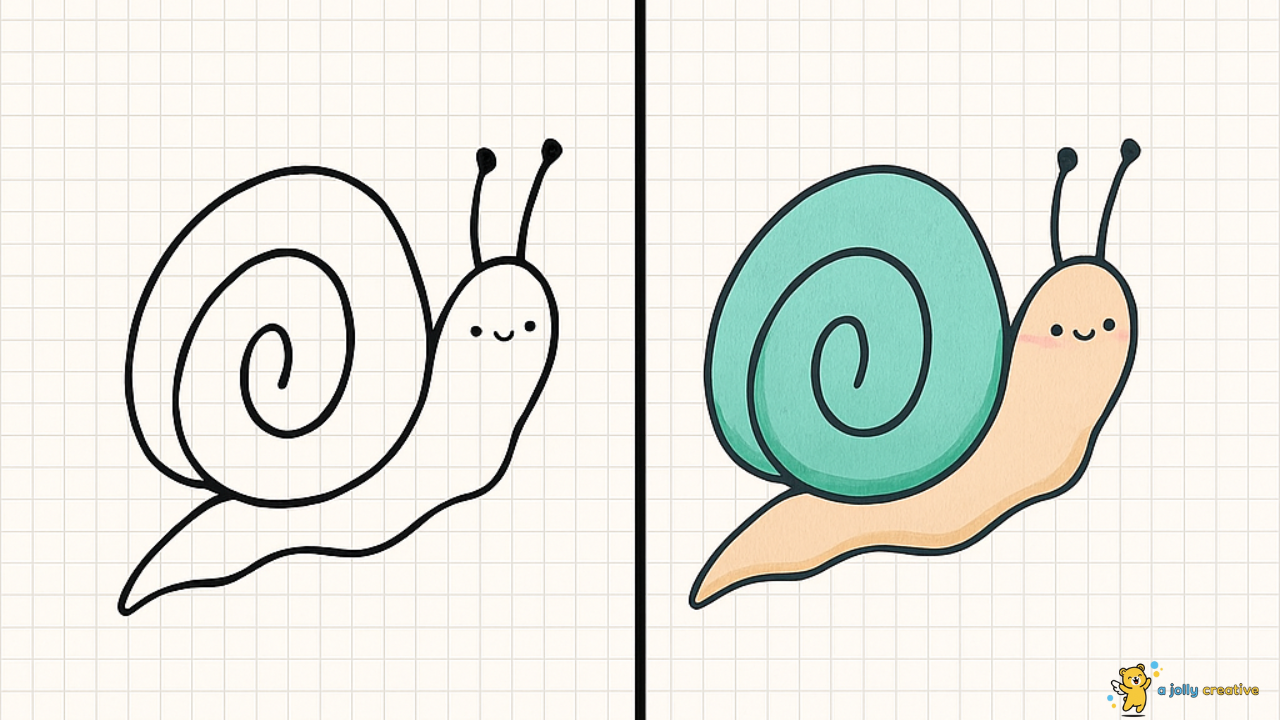
Add a soft body extending from beneath the protective shell. Snail bodies appear vulnerable and squishy compared to the hard shell.
Ocean Squid Drawing
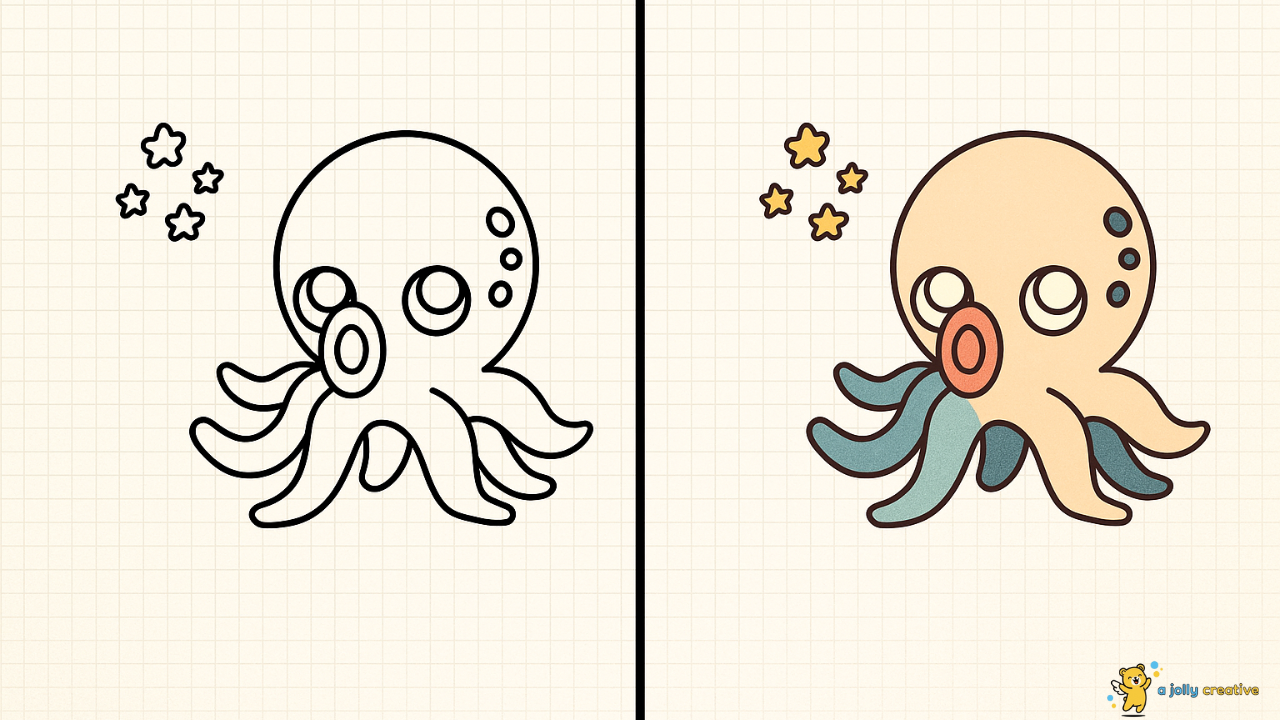
Squids begin with an elongated oval body that appears streamlined for swimming. The body should look flexible and muscular throughout.
Graceful Swan Drawing
Swans start with an oval body positioned for graceful swimming stability. The body should appear elegant and refined throughout.
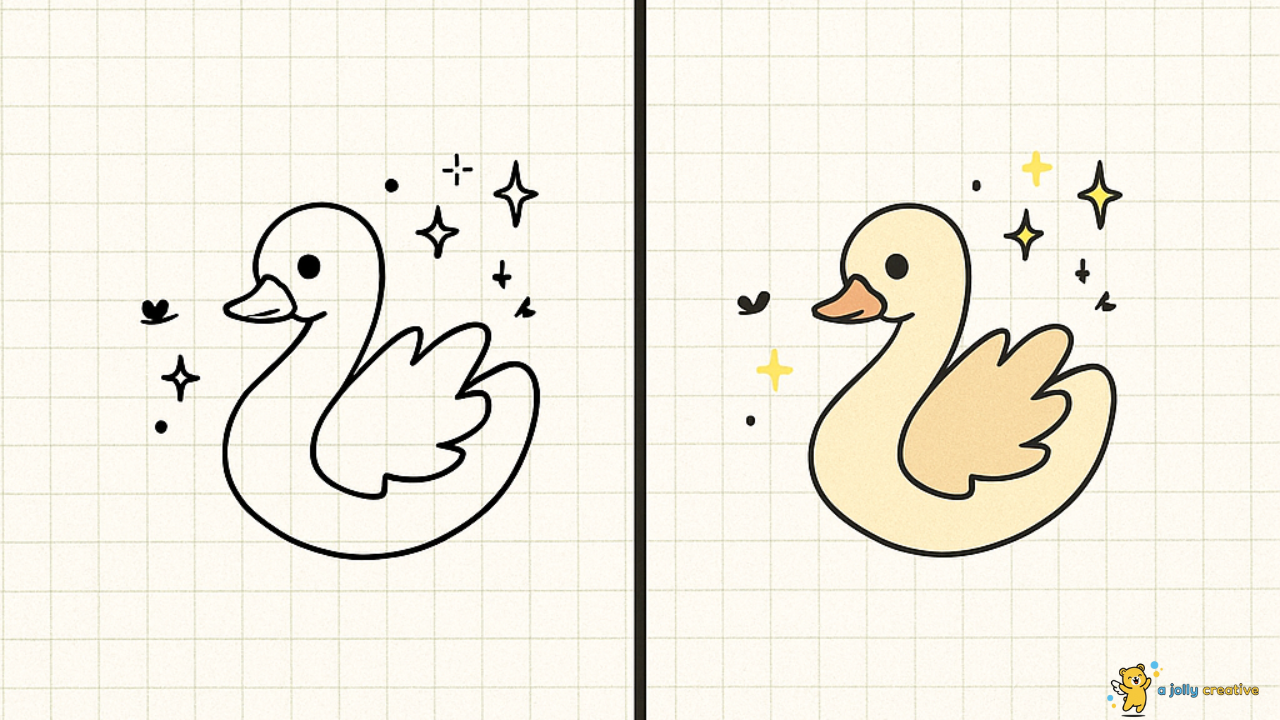
Add an extremely long, curved neck that creates an S-shape. Swan necks are proportionally longer than most other water birds.
Howling Wolf Drawing
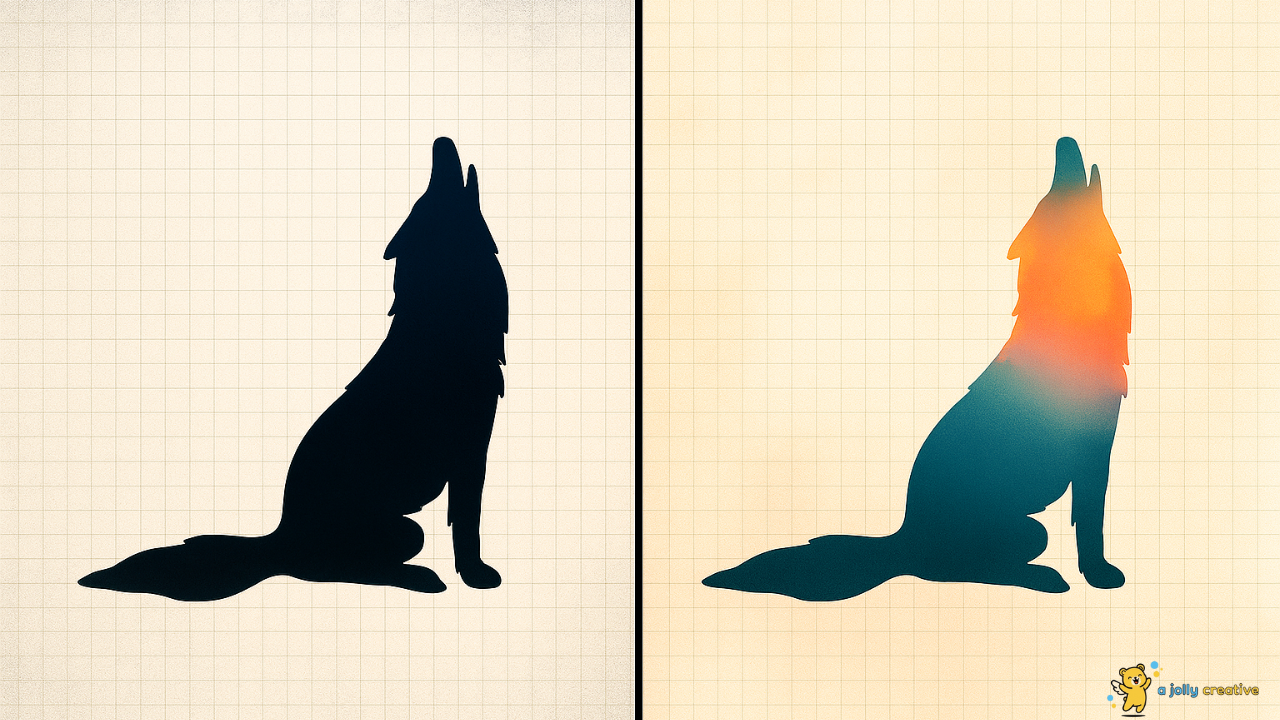
Wolves begin with similar shapes to dogs but with more angular, wild features. The head should appear more triangular and alert.
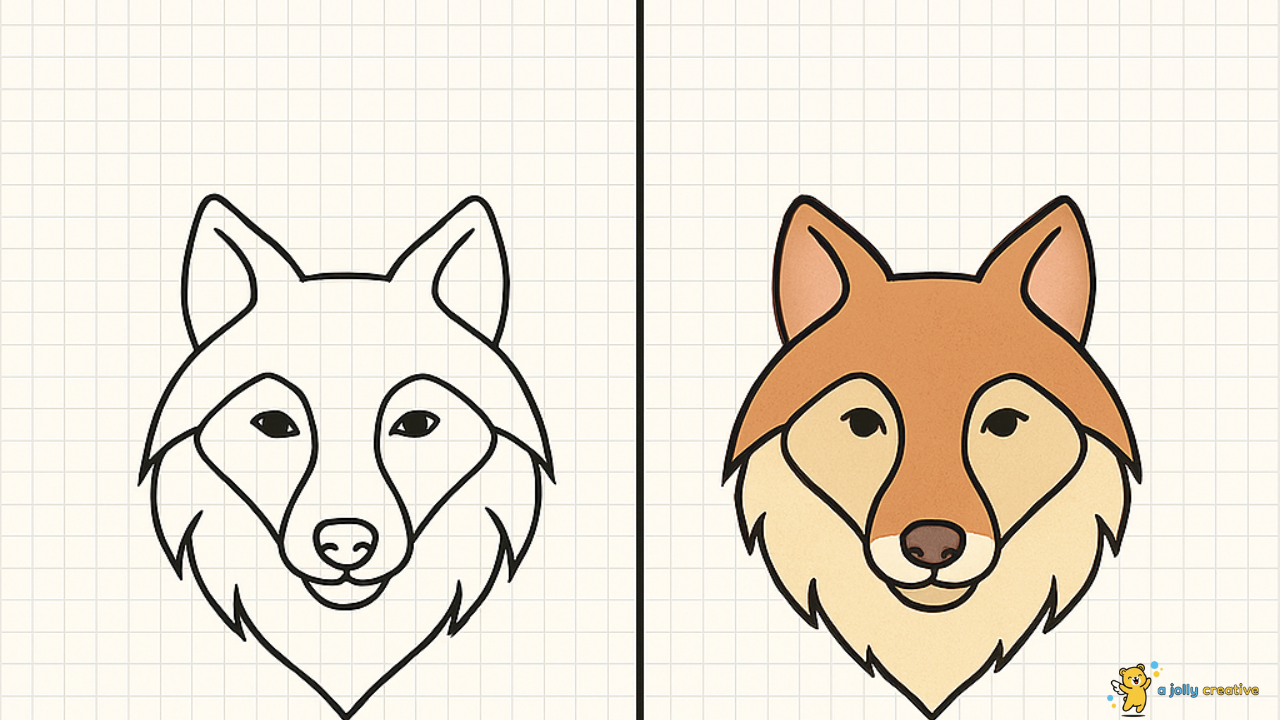
Add pointed ears that stand erect and constantly listen for sounds. Wolf ears are always alert and positioned for optimal hearing.
Calm Capybara Drawing
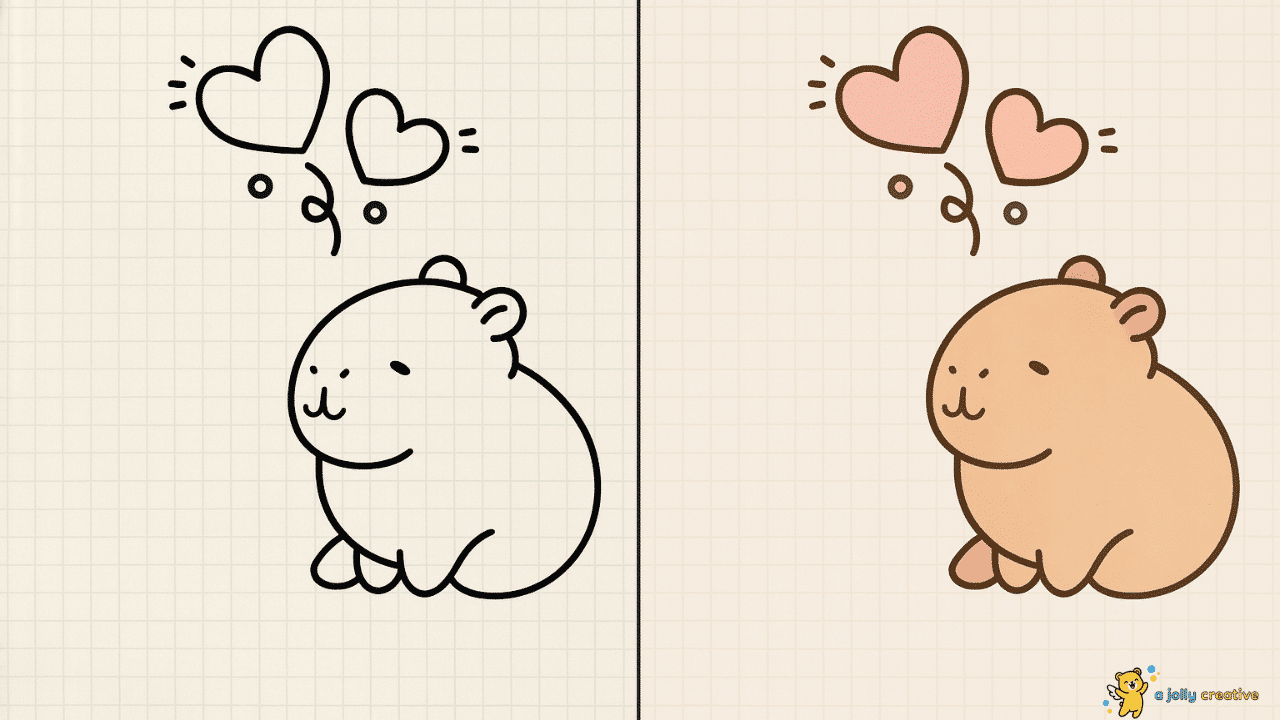
Capybaras start with a large, rounded rectangular body that appears calm and peaceful. The body should look substantial and grounded.
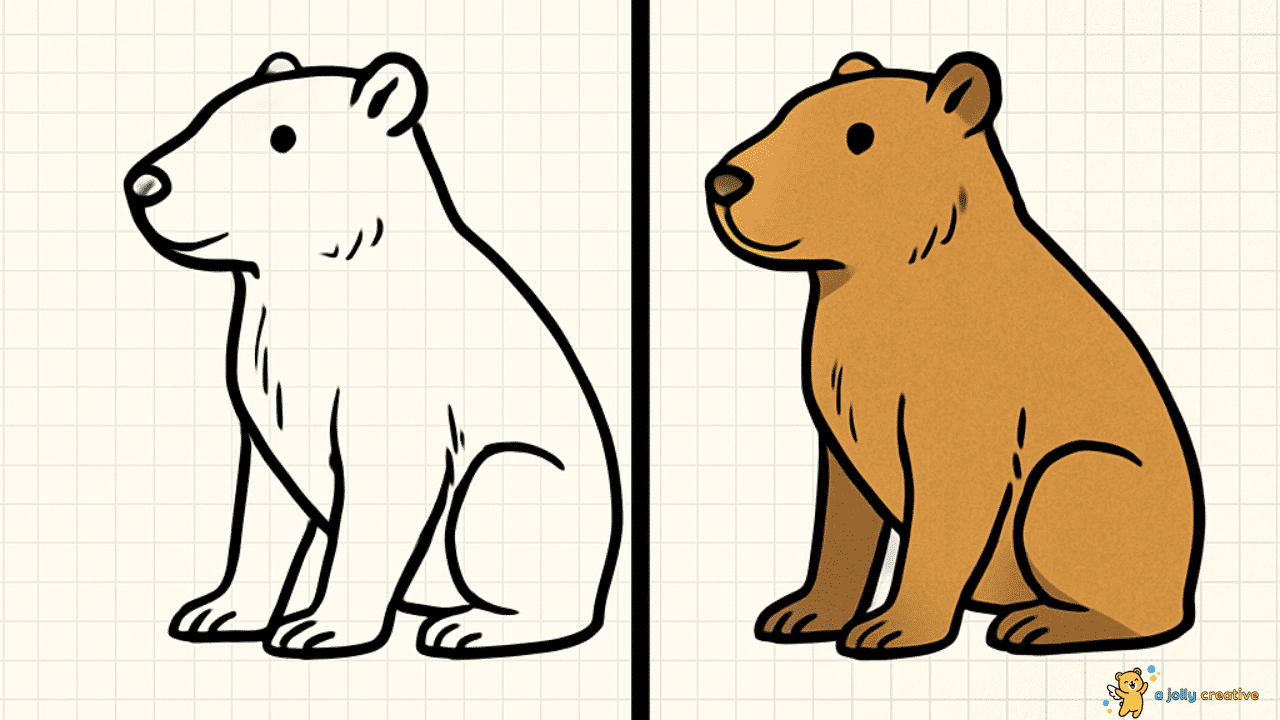
Add a large, square head with small ears positioned on top. Capybara heads are distinctively boxy compared to other rodents.
Farm Cow Drawing
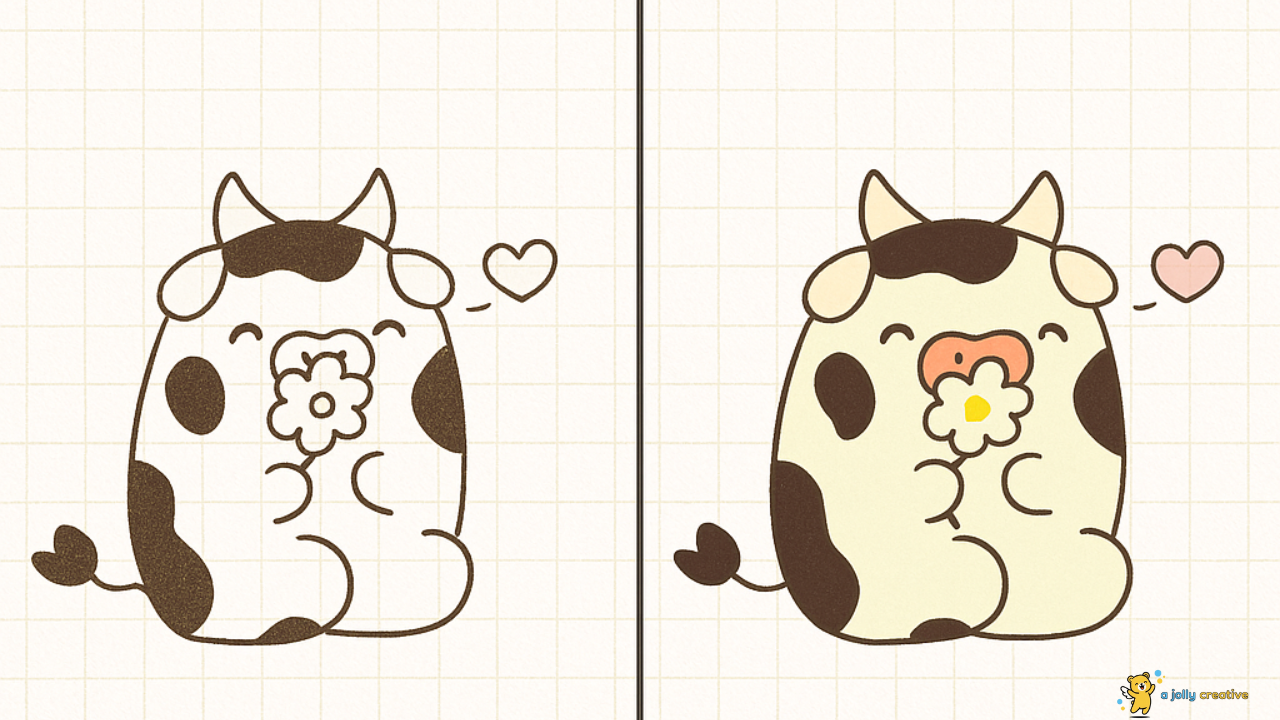
Cows begin with a large rectangular body supported by four sturdy legs. The body should appear solid and well-fed.
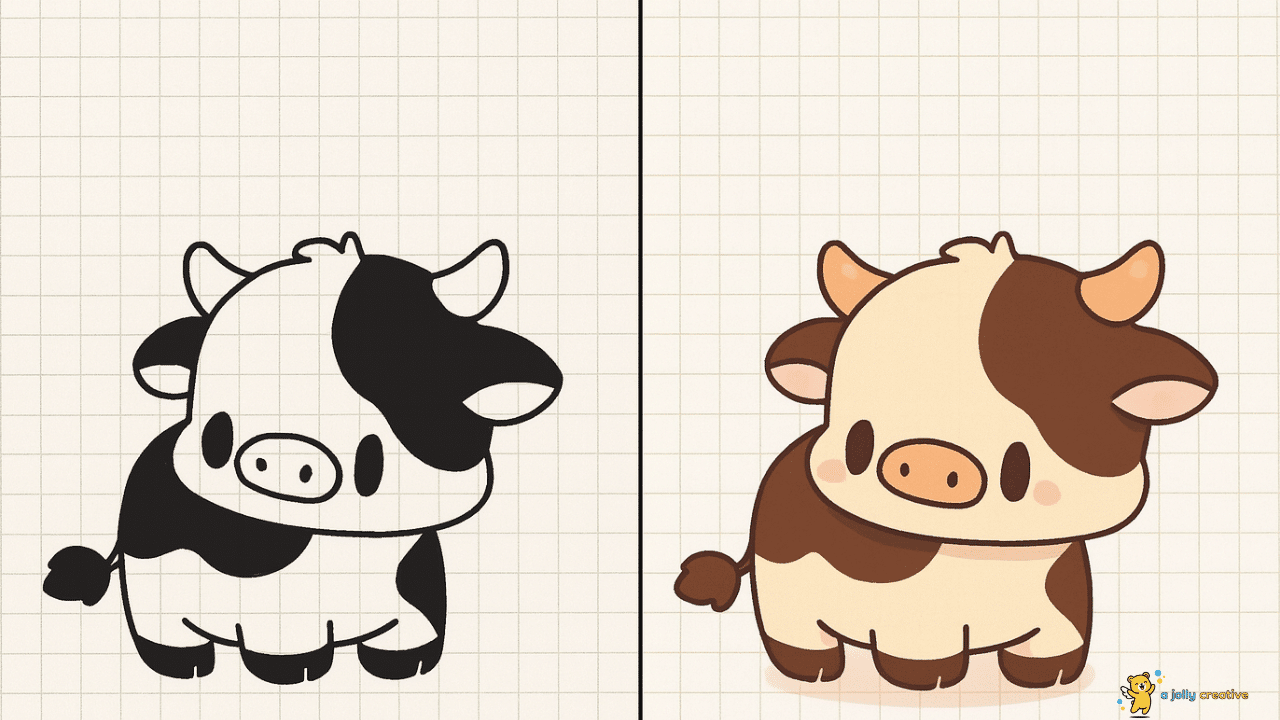
Add distinctive black and white patches across the body surface randomly. Cow markings vary dramatically between individual animals uniquely. Draw an udder beneath female cows for milk production detail. This anatomical feature distinguishes dairy cows from other farm animals.
Prehistoric Dinosaur Drawing
Dinosaurs start with your chosen species body shape, but T-Rex remains most popular. The body should appear prehistoric and powerful.
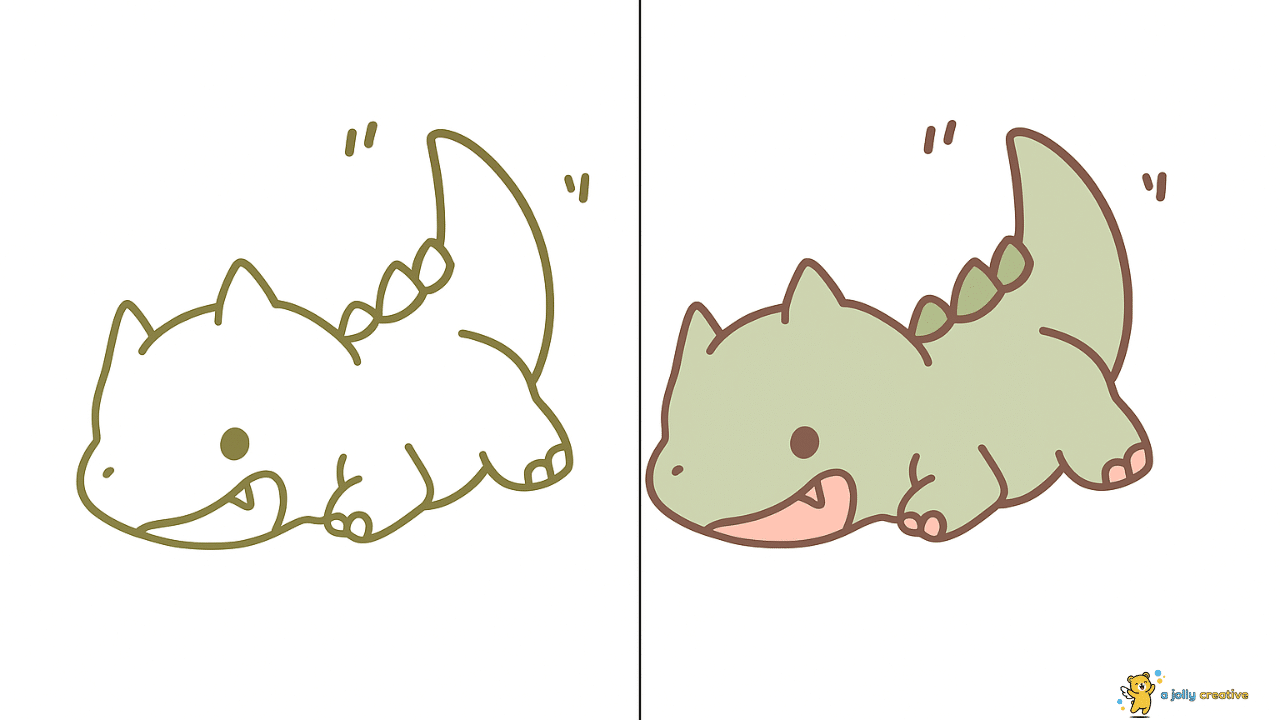
Add massive jaws filled with sharp triangular teeth for carnivorous species. Dinosaur teeth should look capable of tearing tough meat. Draw tiny arms for T-Rex or appropriate limbs for other species.
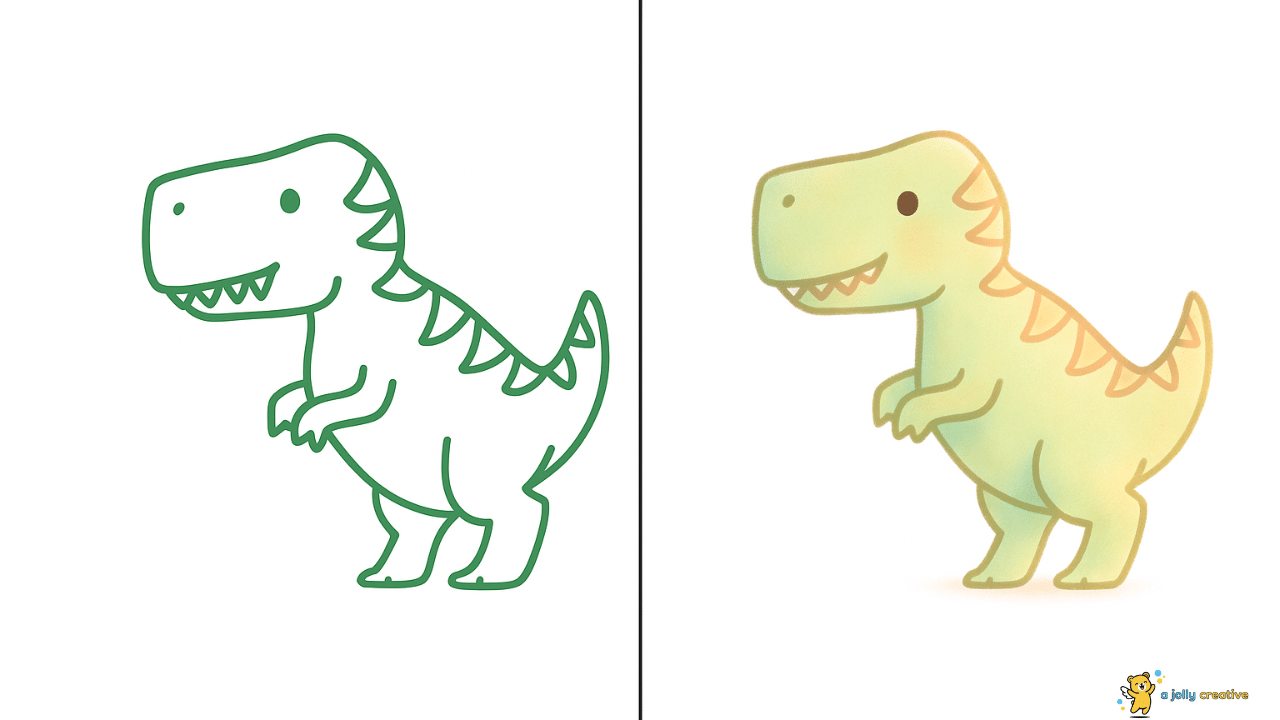
These proportions often appear comical but remain scientifically accurate. Sketch scales or feather textures based on current scientific understanding. Modern research suggests many dinosaurs had feather-like coverings.
Mythical Dragon Drawing
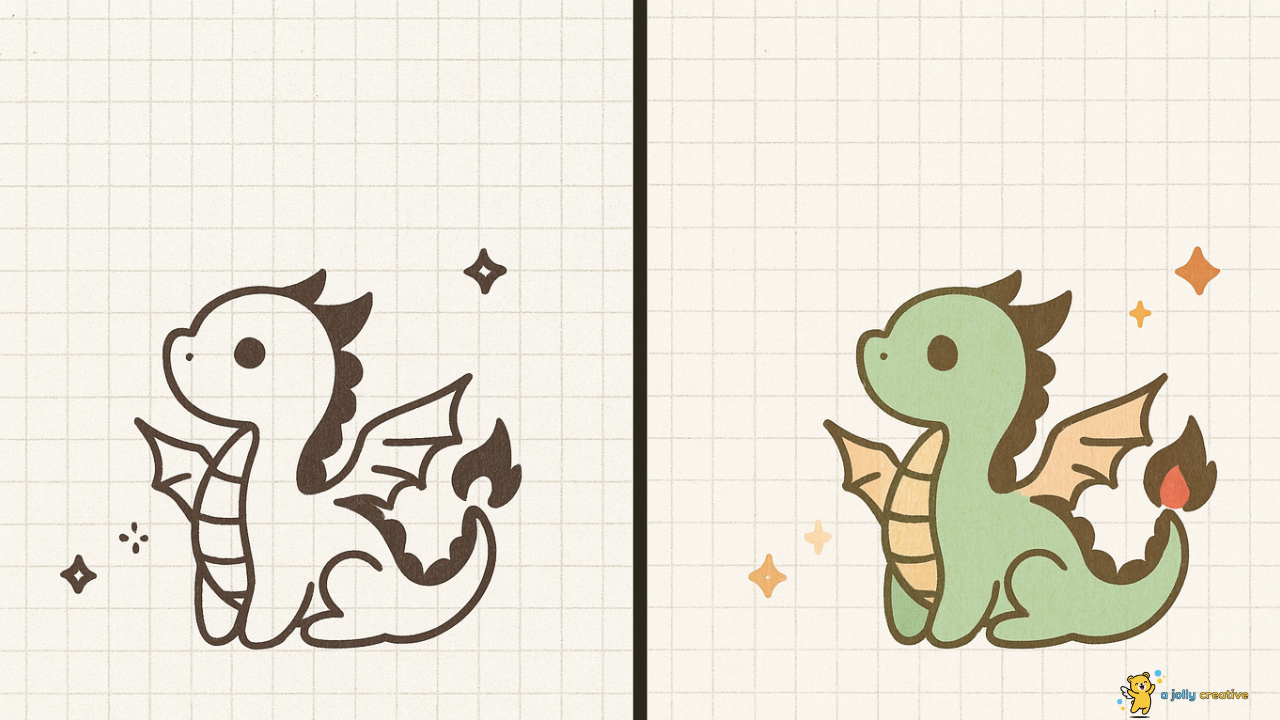
Dragons begin with a serpentine body that combines snake and lizard characteristics. The body should appear mythical and magical.
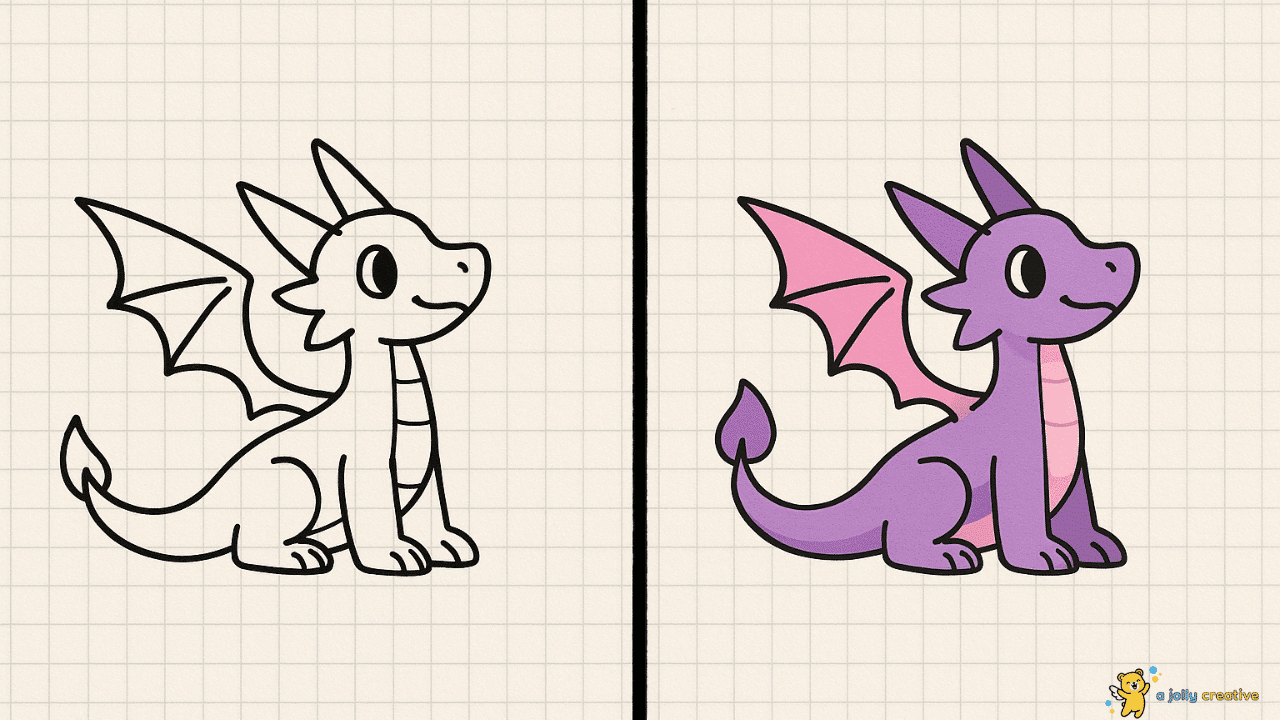
Add large, bat-like wings extending from the back or shoulders. Dragon wings should appear capable of supporting magical flight.
Noble Elk Drawing
Elk start with a large, muscular body similar to horses but more robust. The body should convey strength and wilderness survival.
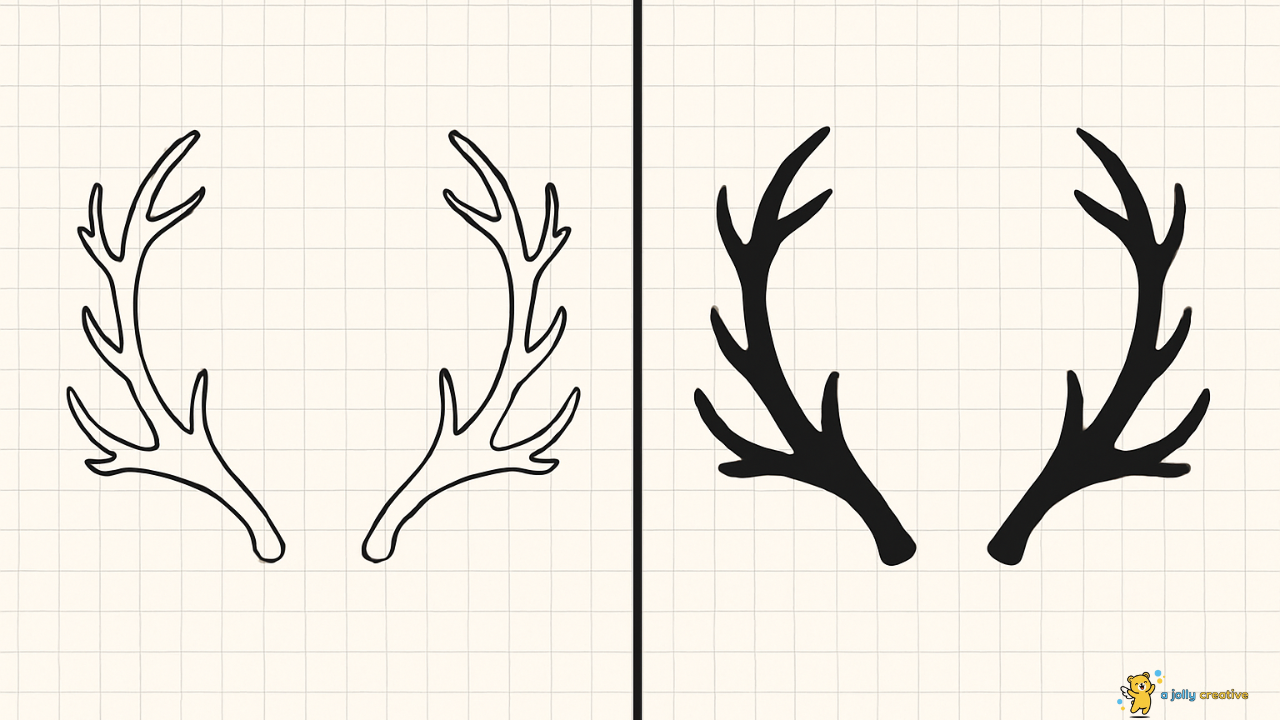
Add magnificent branching antlers extending from the male’s head. Elk antlers are among nature’s most impressive and complex structures.
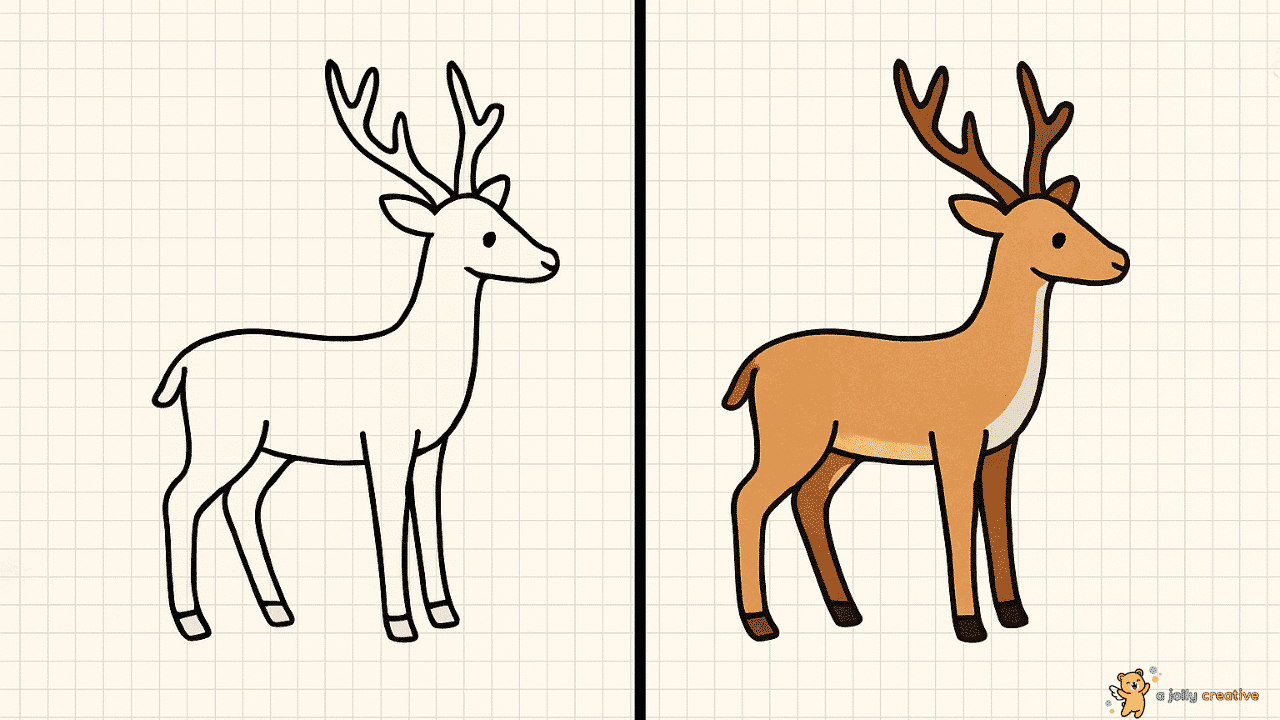
Draw long, powerful legs capable of running through forest terrain. These legs should appear athletic and built for endurance.
Striped Zebra Drawing
Zebras begin with a horse-like body but covered in distinctive stripe patterns. The body should appear athletic and alert.
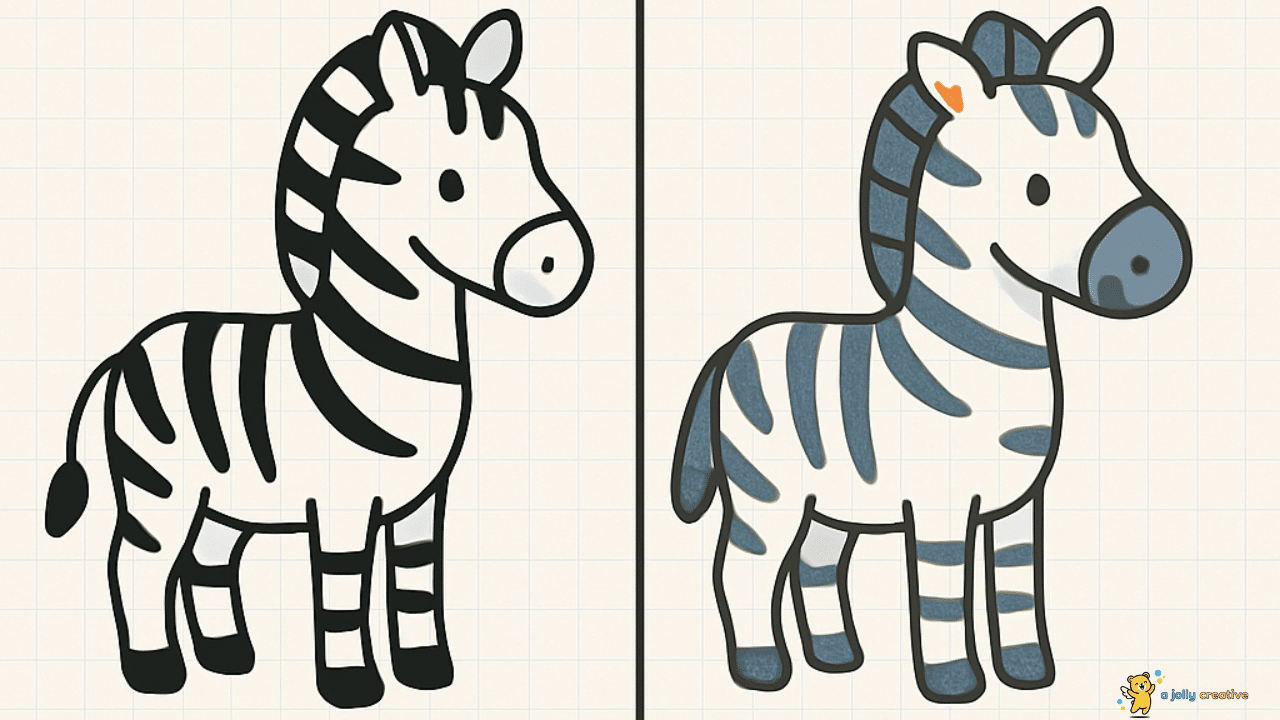
Add bold black and white stripes running across the entire body surface. Zebra stripes are unique to each individual like human fingerprints.
Intelligent Octopus Drawing
Octopuses begin with a rounded head that contains their brain and organs. The head should appear intelligent and substantial.
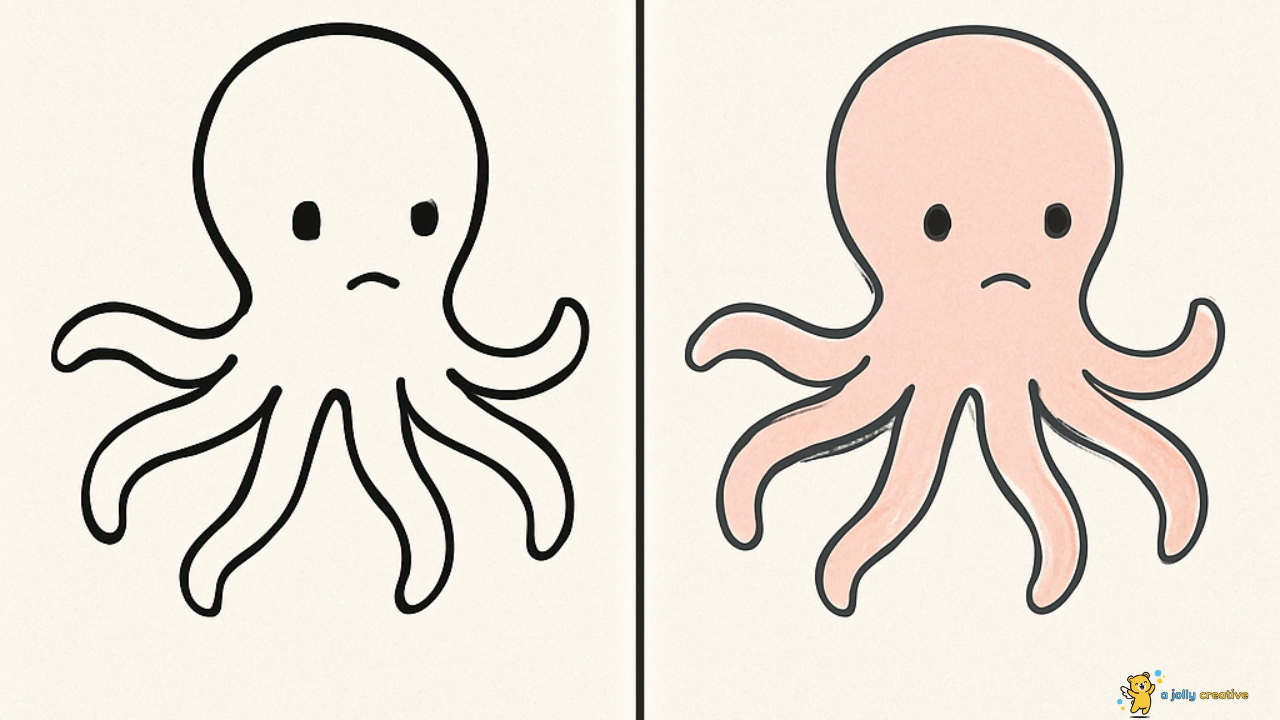
Add eight tentacles extending in different directions from the head base. Octopus tentacles should appear flexible and independently controlled.
Your Artistic Journey Continues
These 40 easy animal drawing ideas provide endless entertainment and skill-building opportunities. Each creature teaches different techniques and challenges.
Remember that every professional artist started with simple shapes and basic techniques. Your animal drawing skills will improve with dedicated practice.
Don’t compare your artwork to others; focus on your personal progress instead. Easy animal art should bring joy rather than stress or competition.
Keep drawing regularly, even if only for five minutes daily. Consistent practice yields better results than occasional marathon drawing sessions.
Your artistic journey has just begun with these simple animal drawings. Embrace the process, enjoy the creativity, and watch your skills flourish naturally.
Hi, I’m Hazel Finch, a creativity enthusiast and writer at ajollycreative.com. I share easy drawing ideas, cozy gaming tips, and inspiration for creative hobbies. With a love for all things jolly and relaxing, I aim to help others discover the joy of creating in their own unique way. Follow my journey as I explore the world of art and play, one cozy activity at a time.

